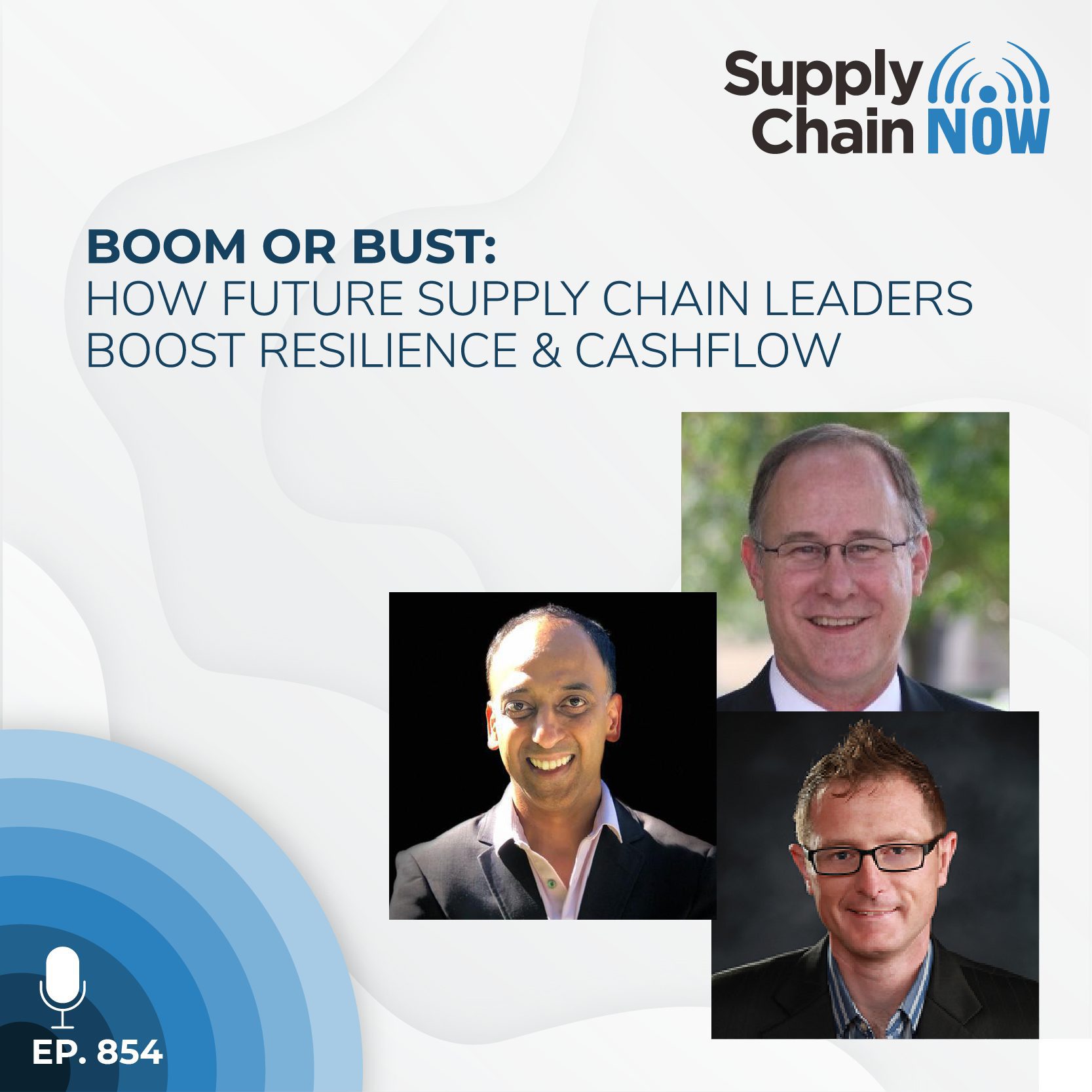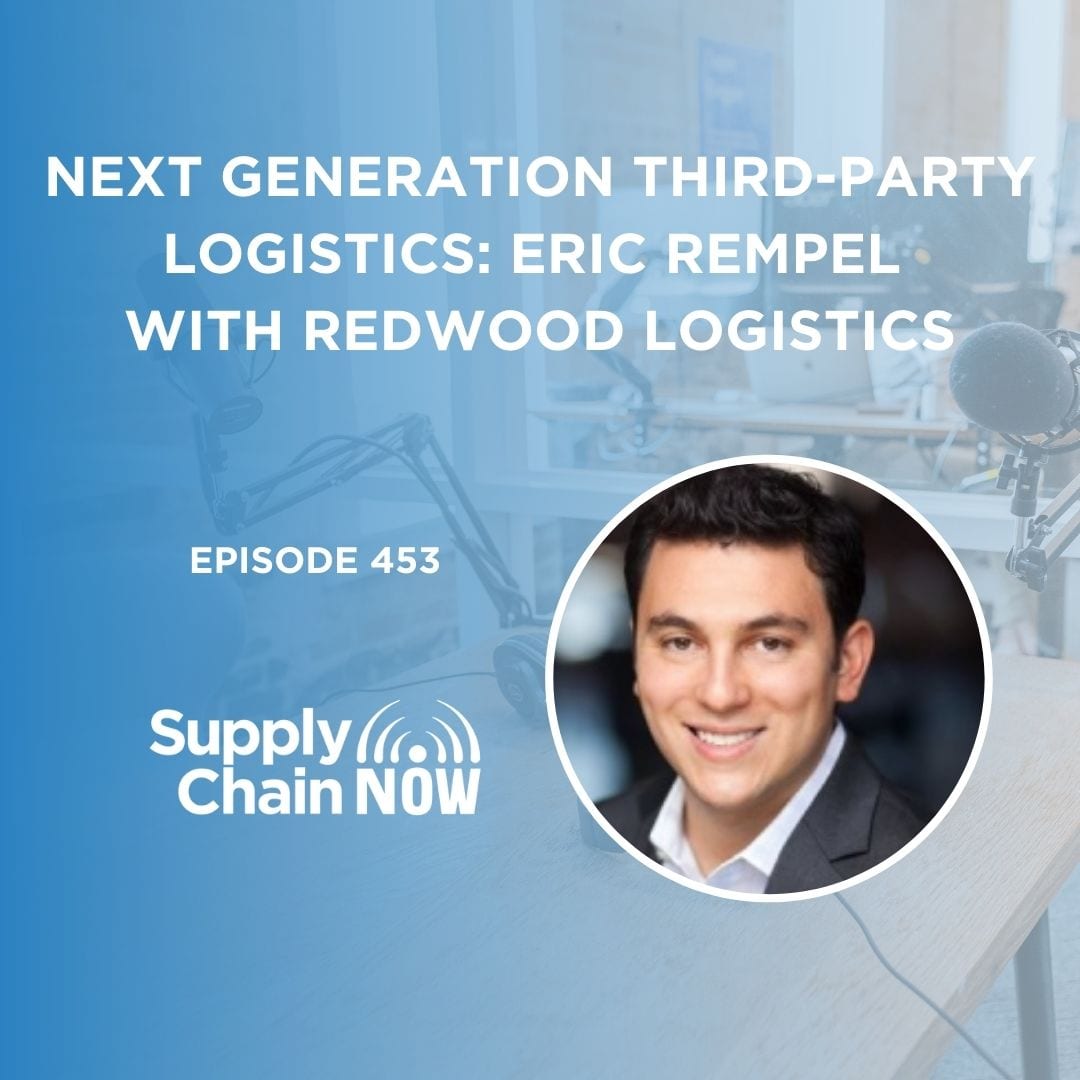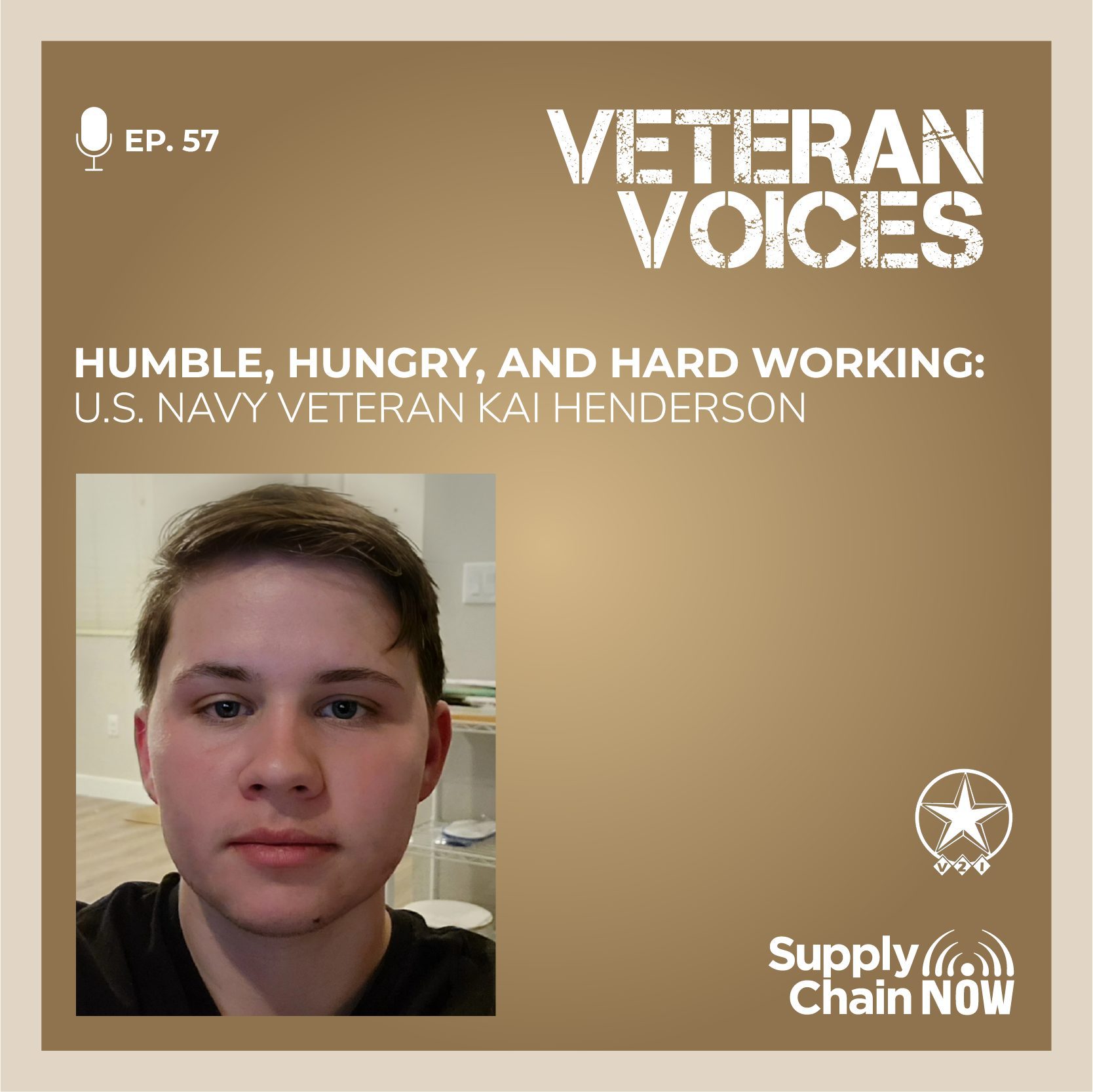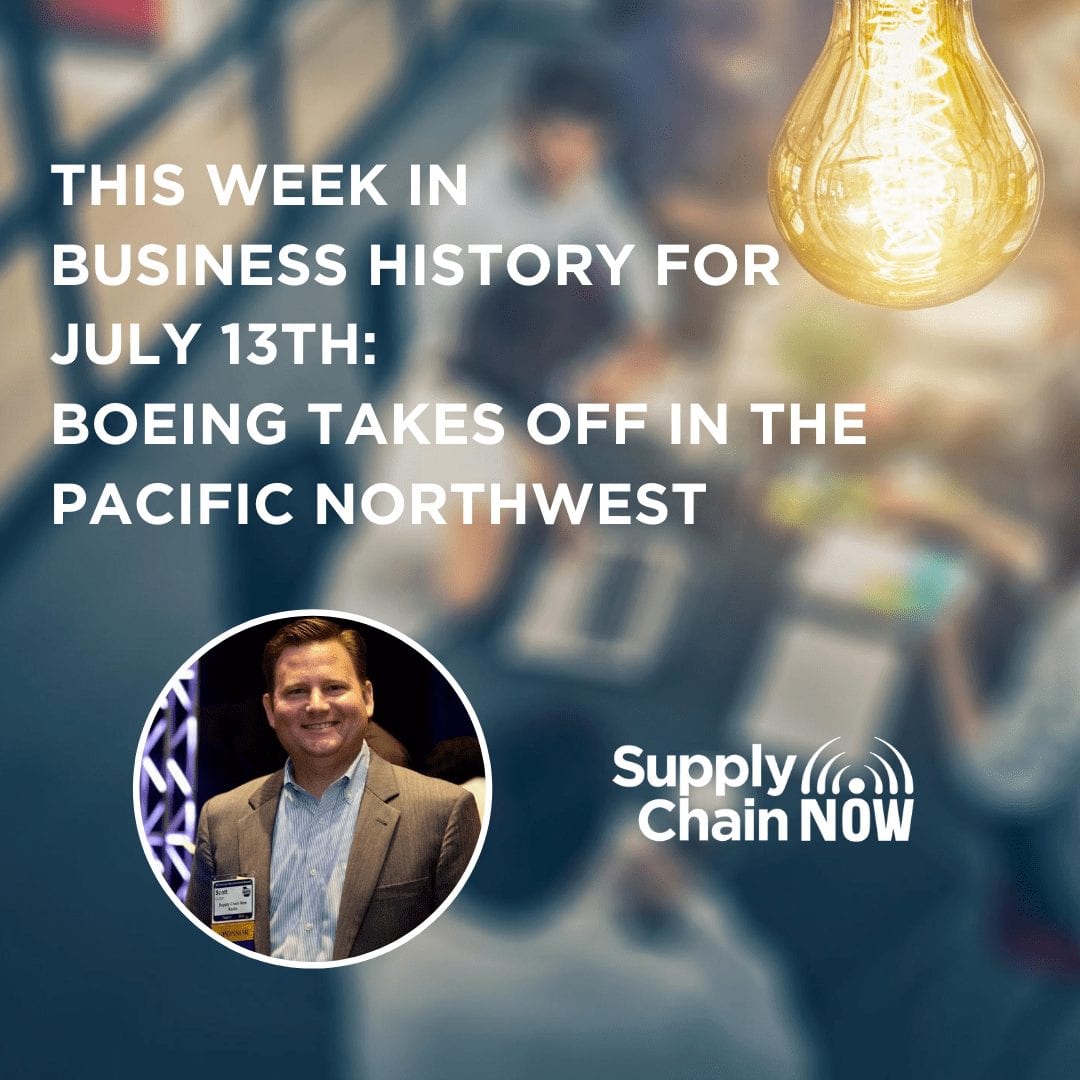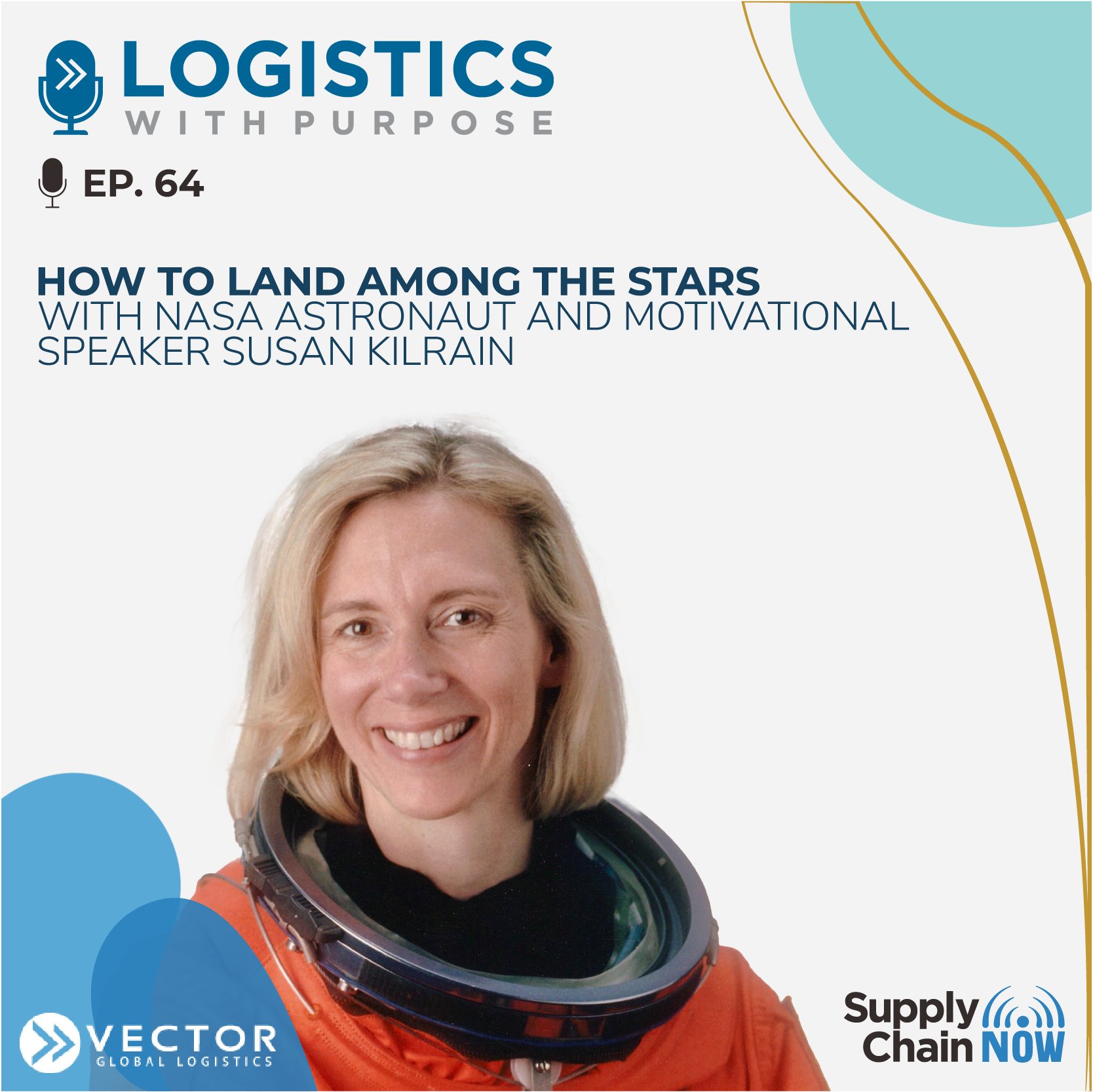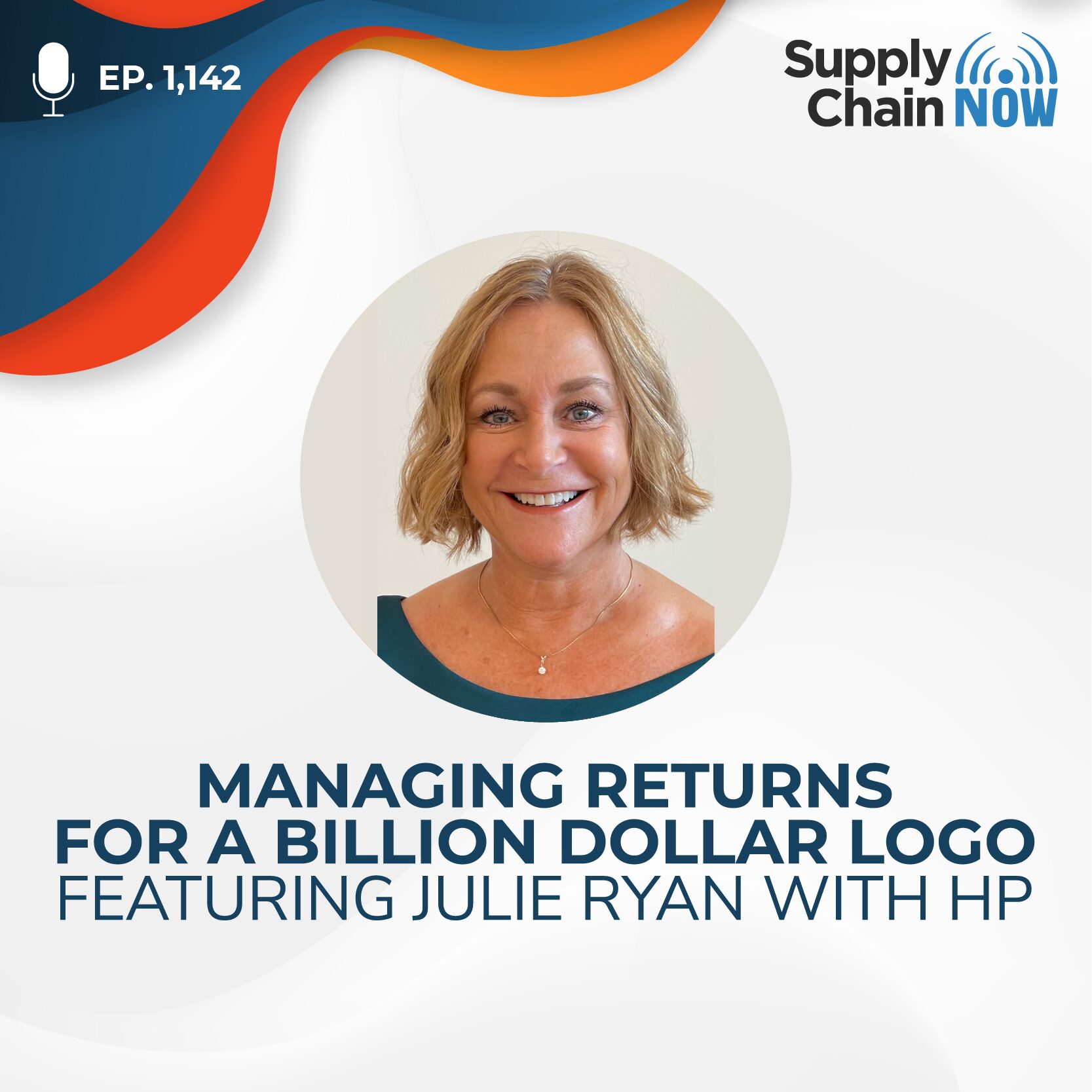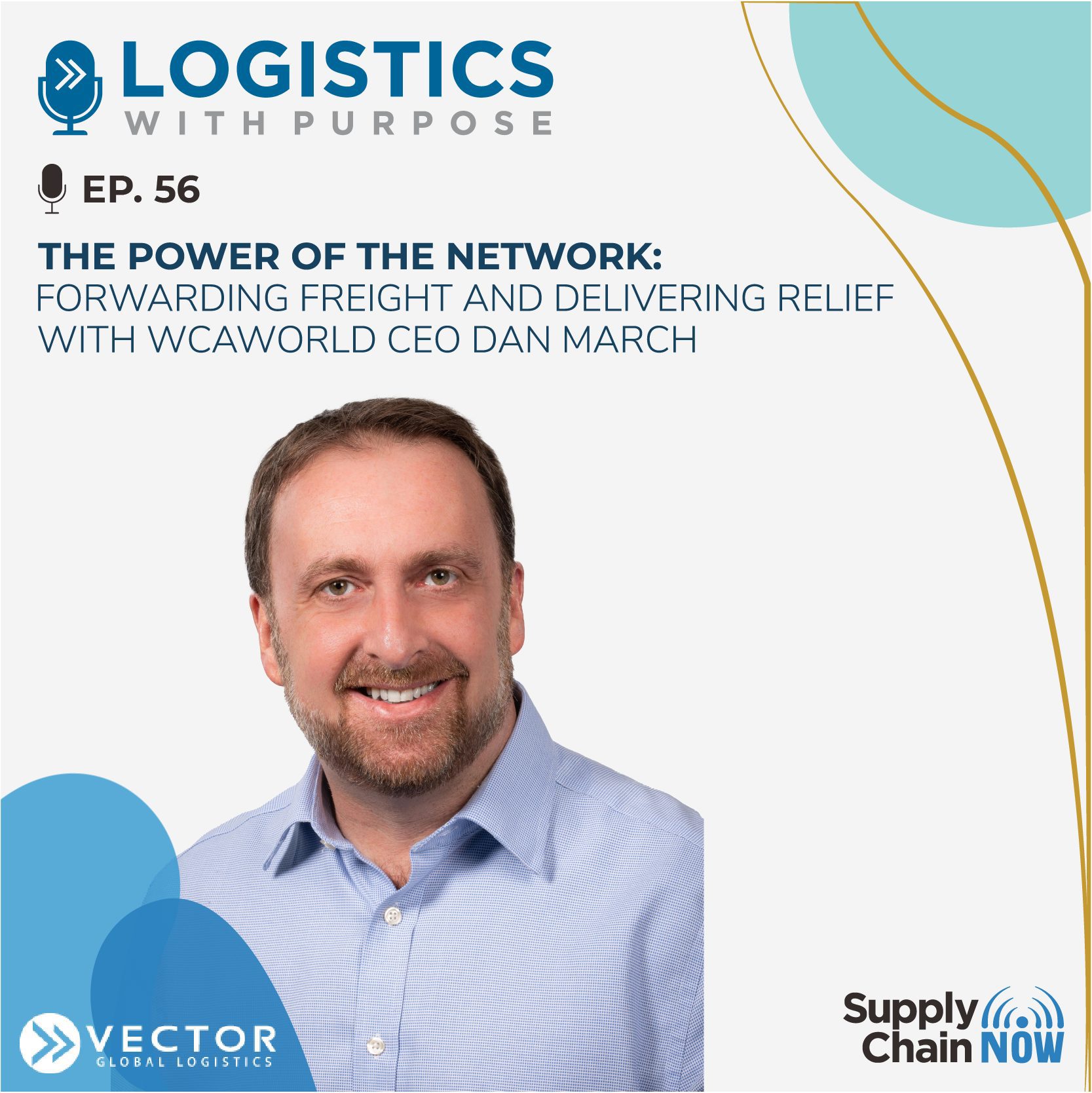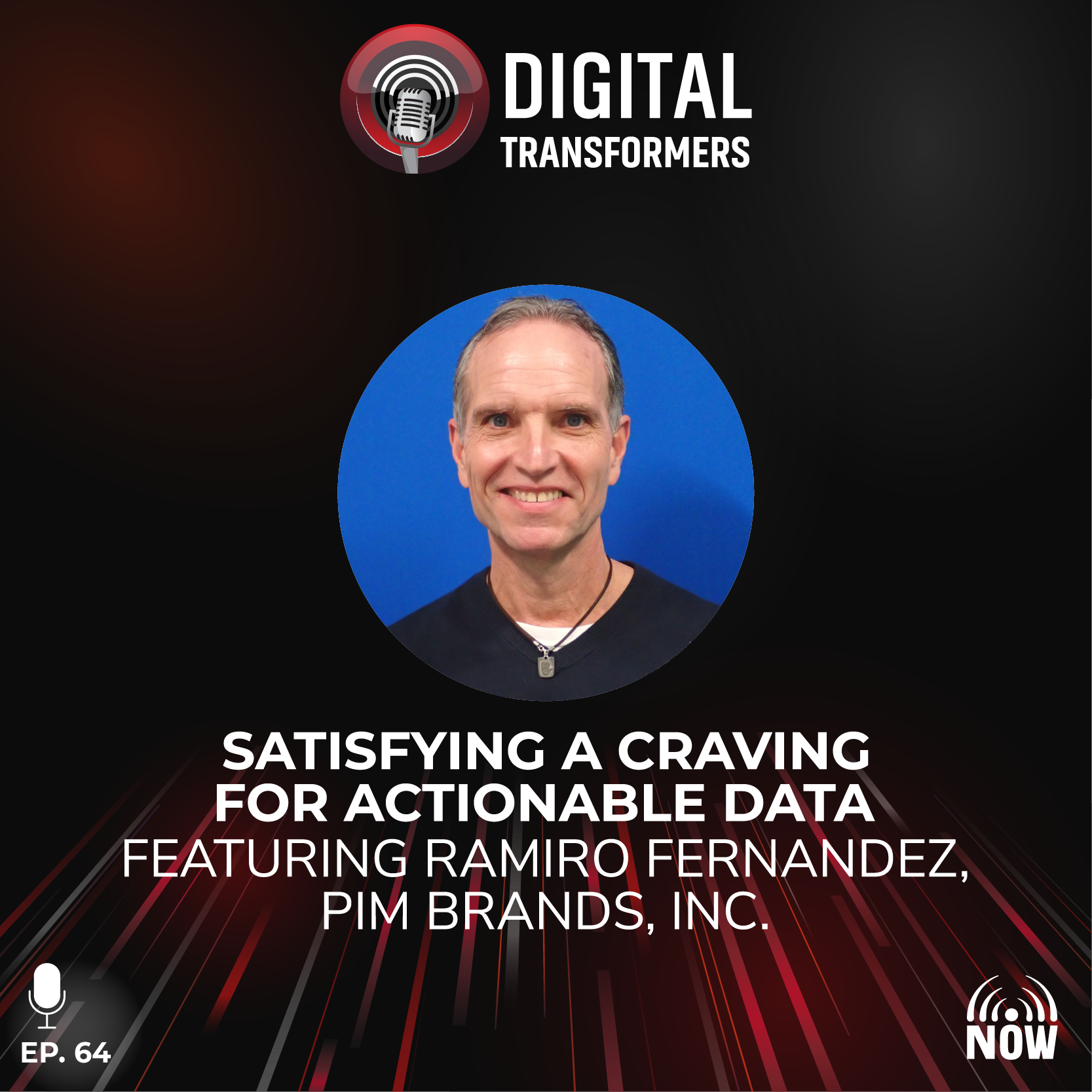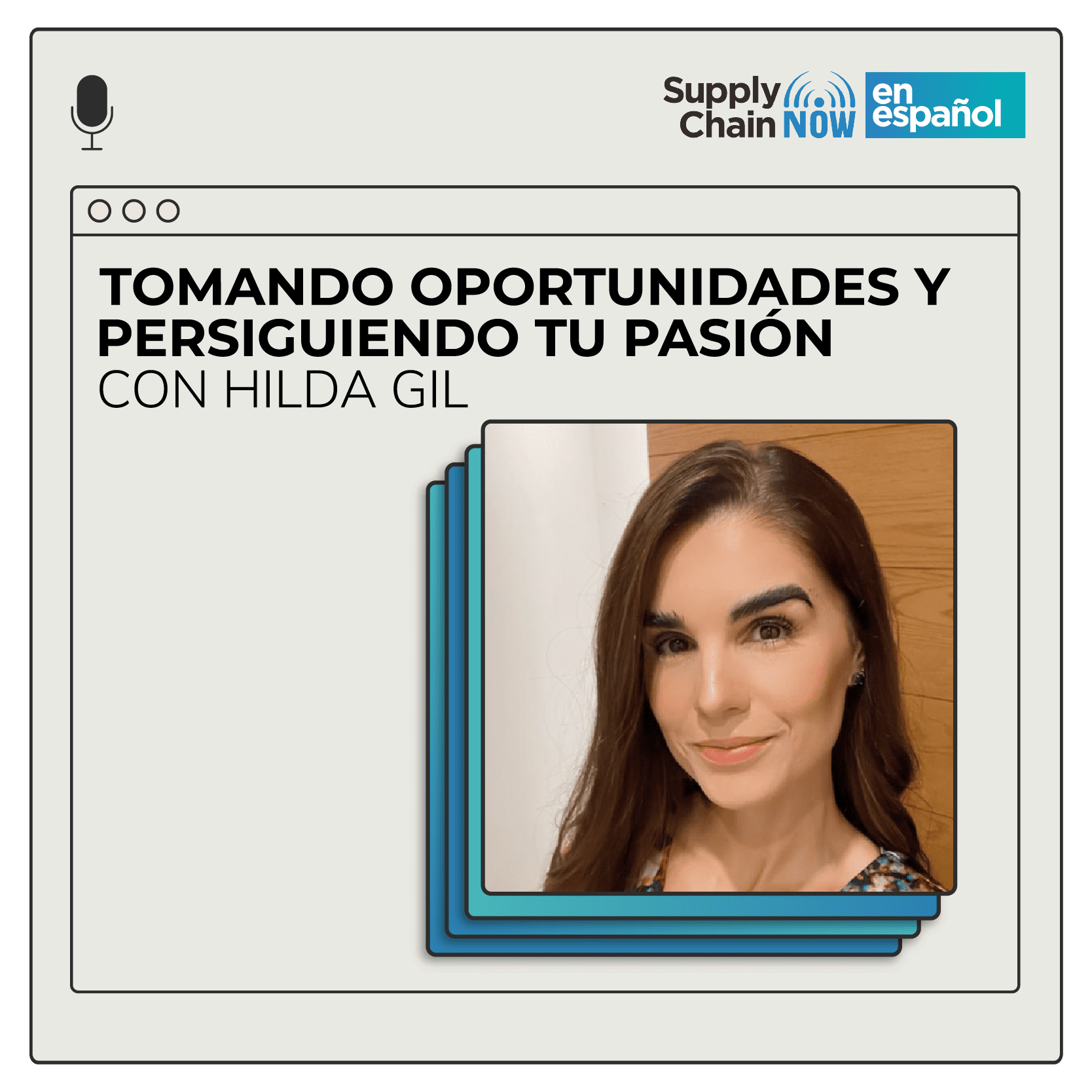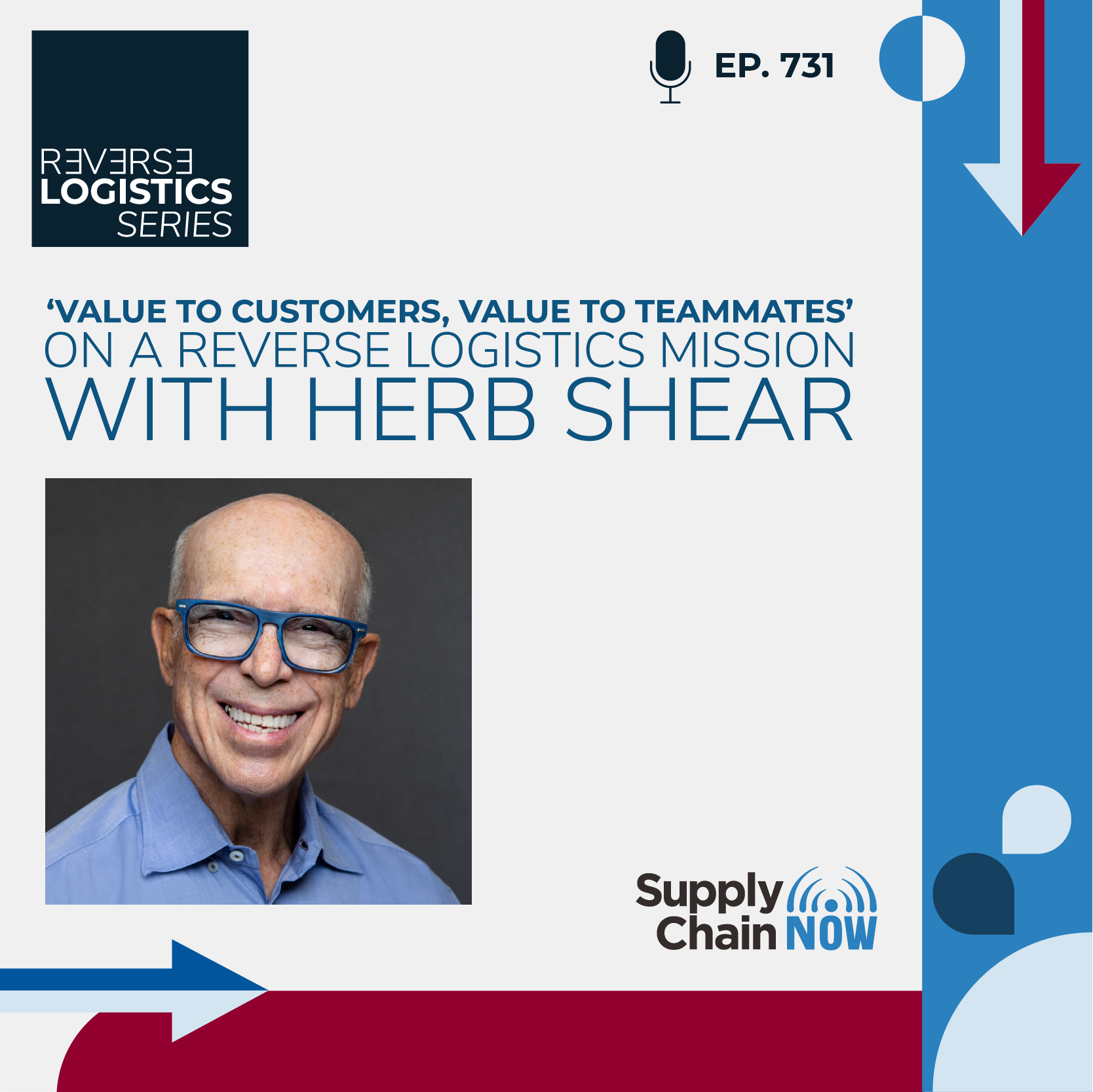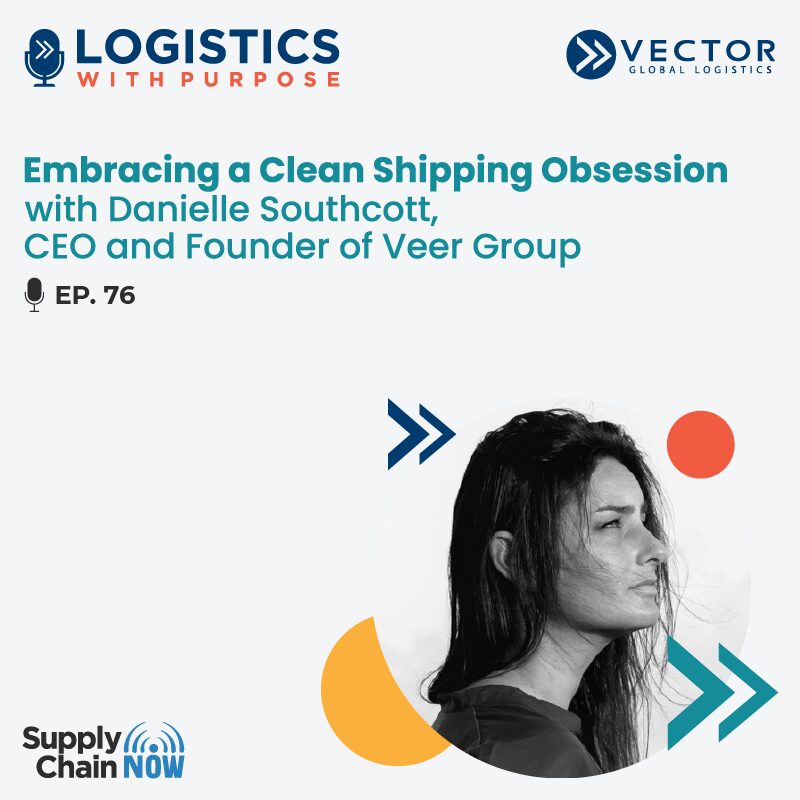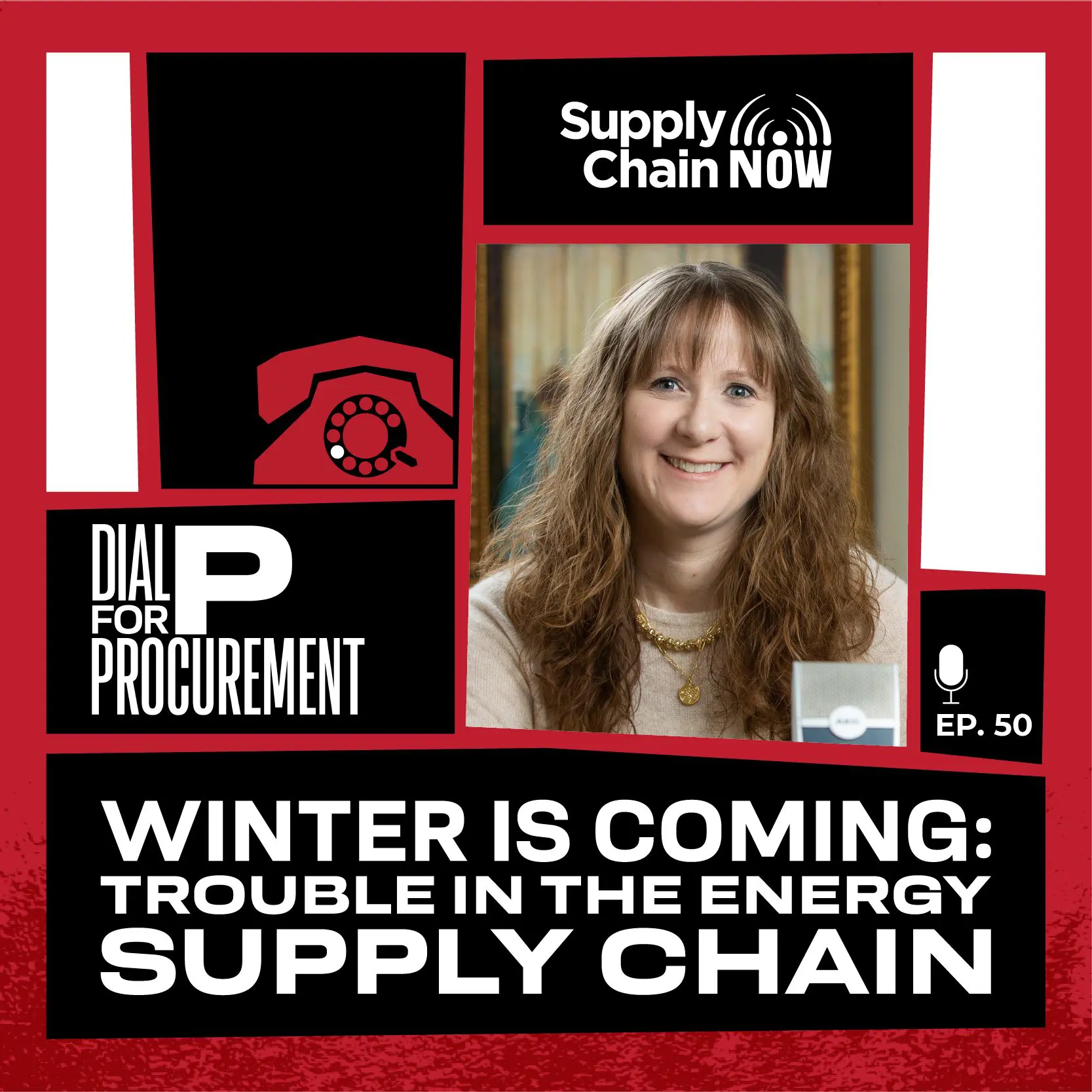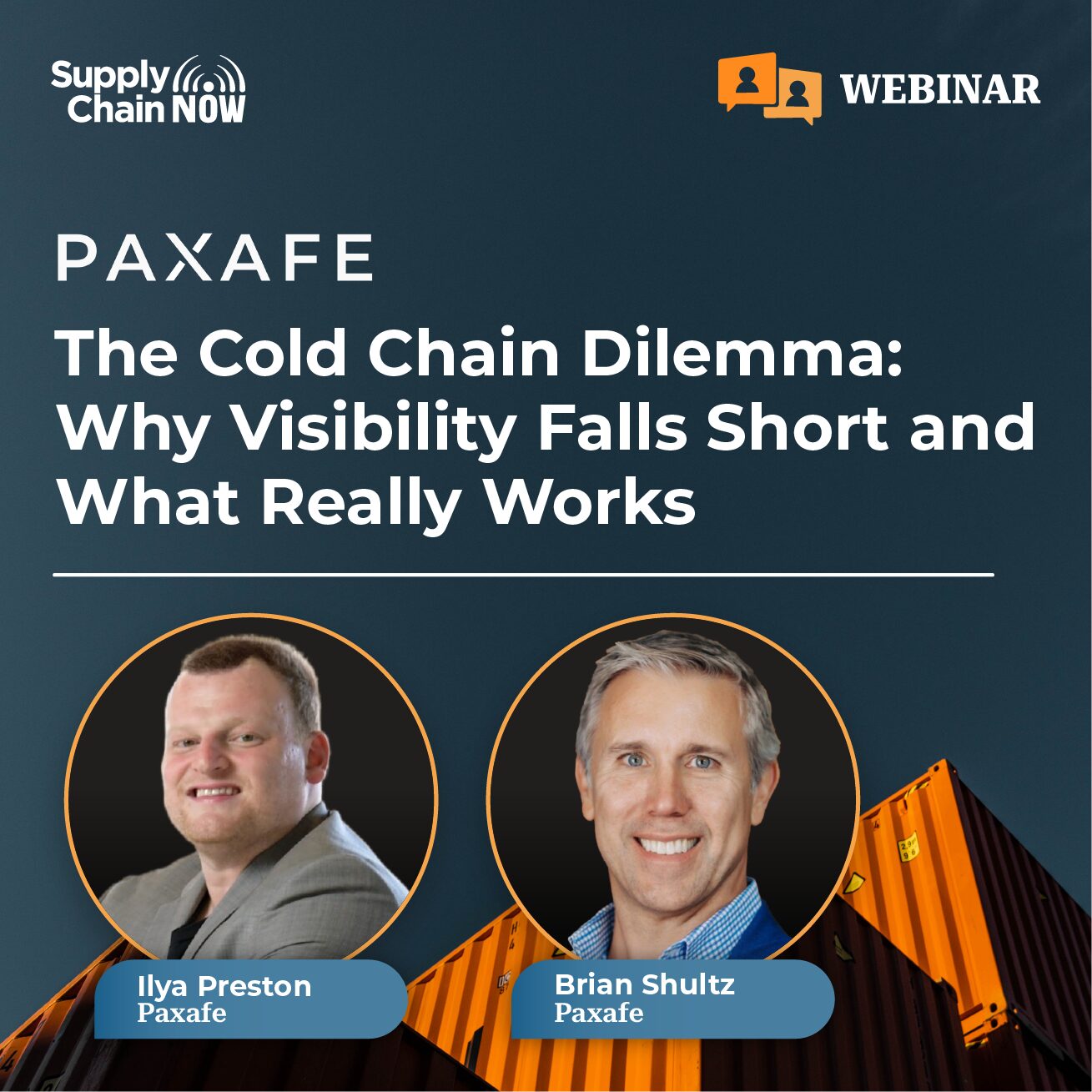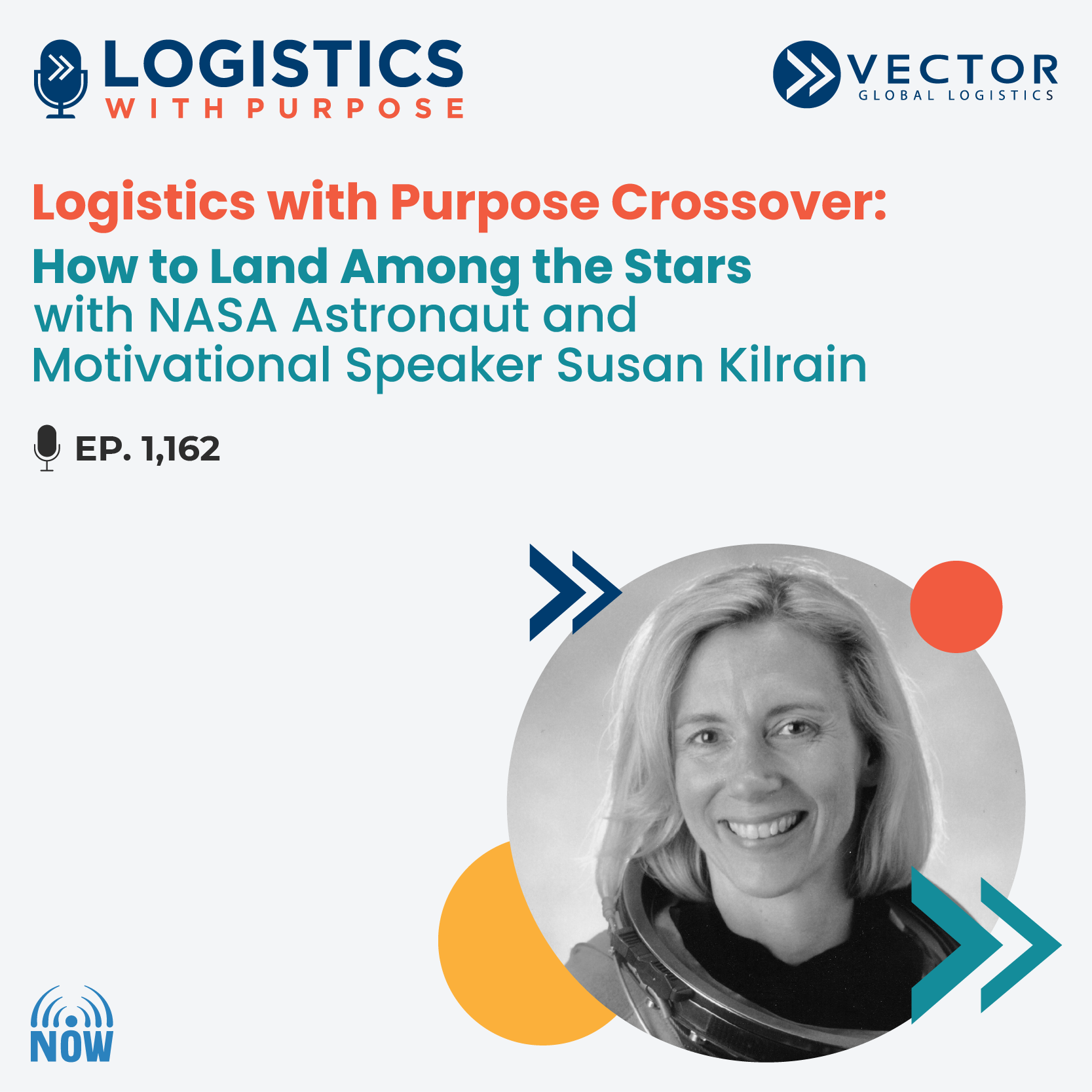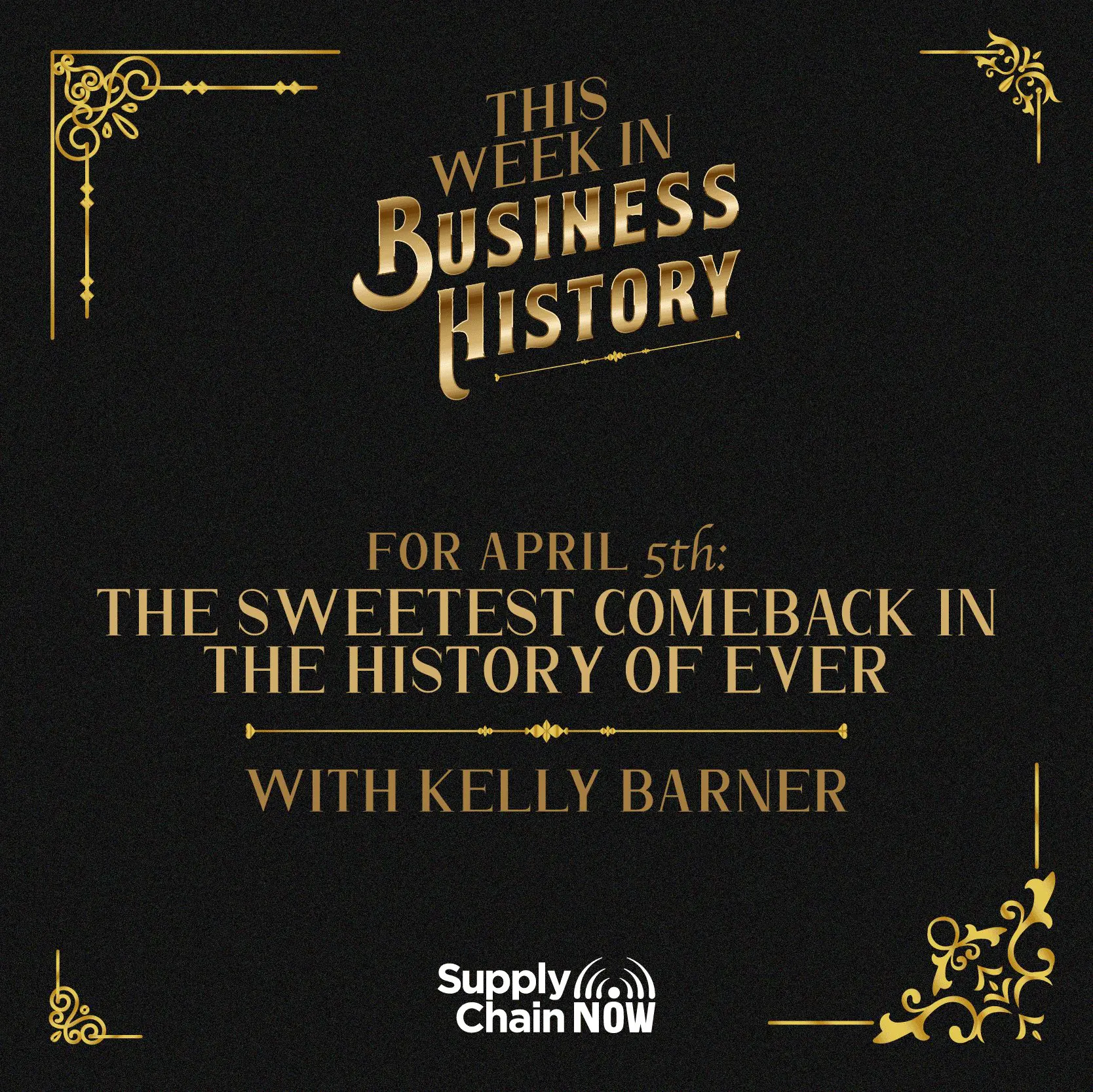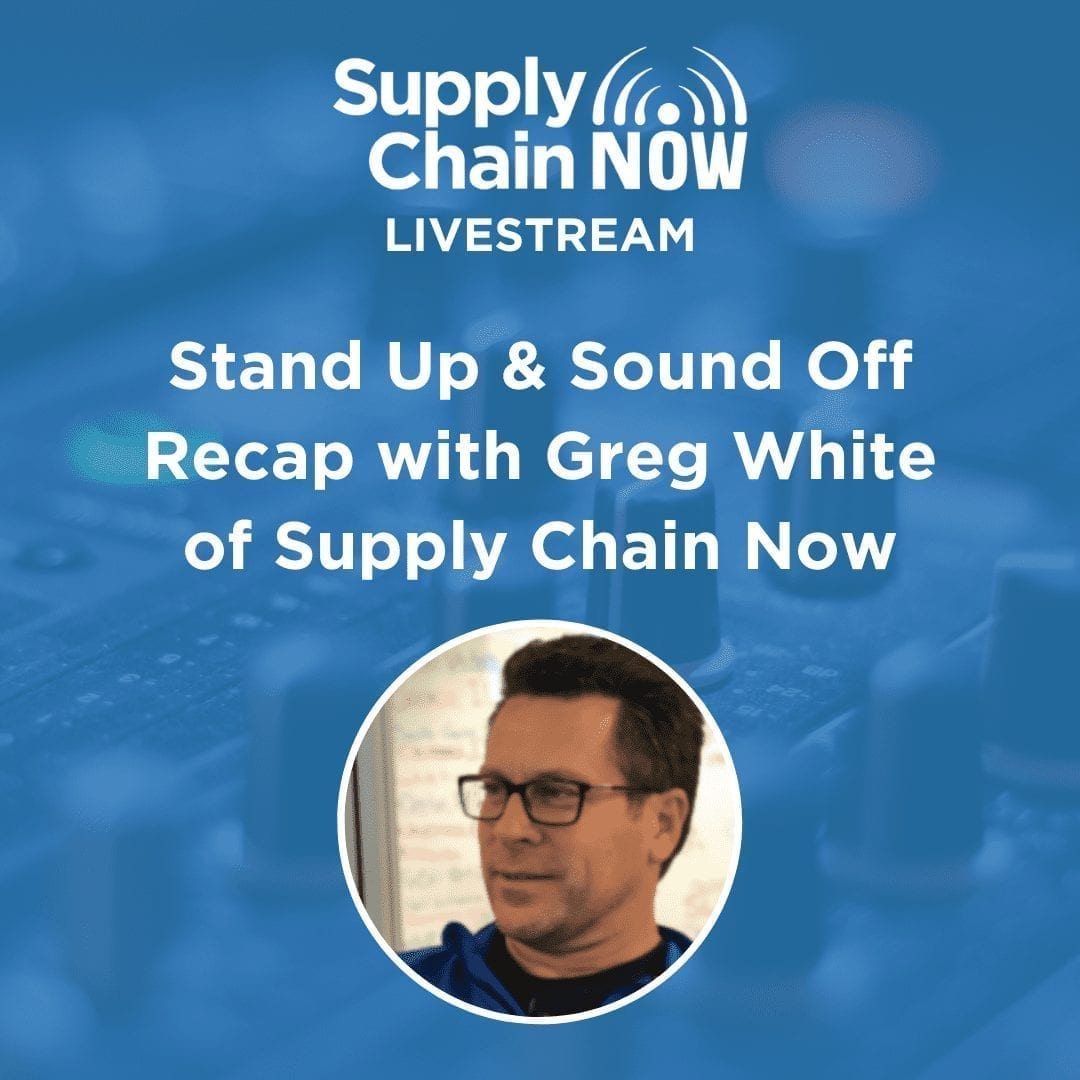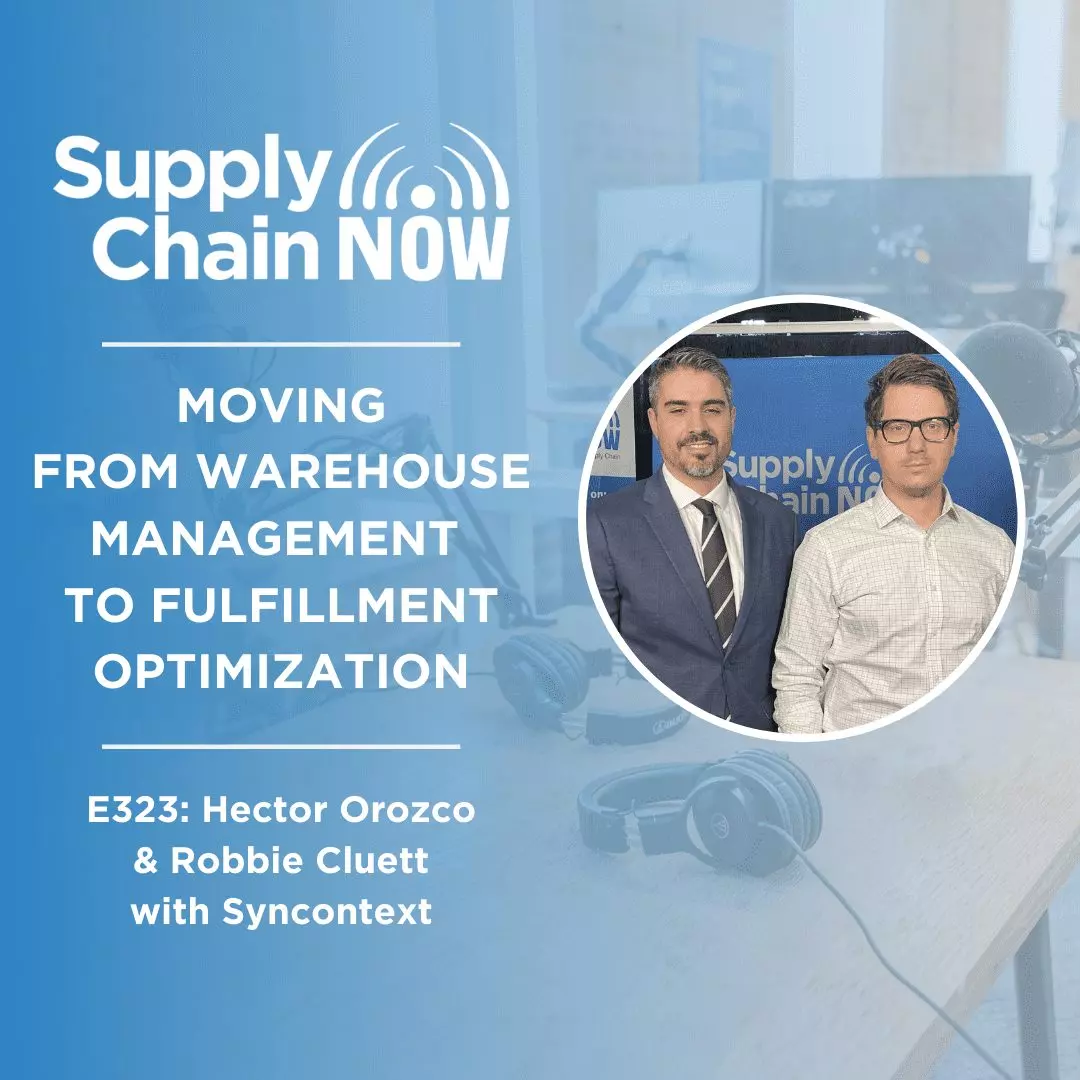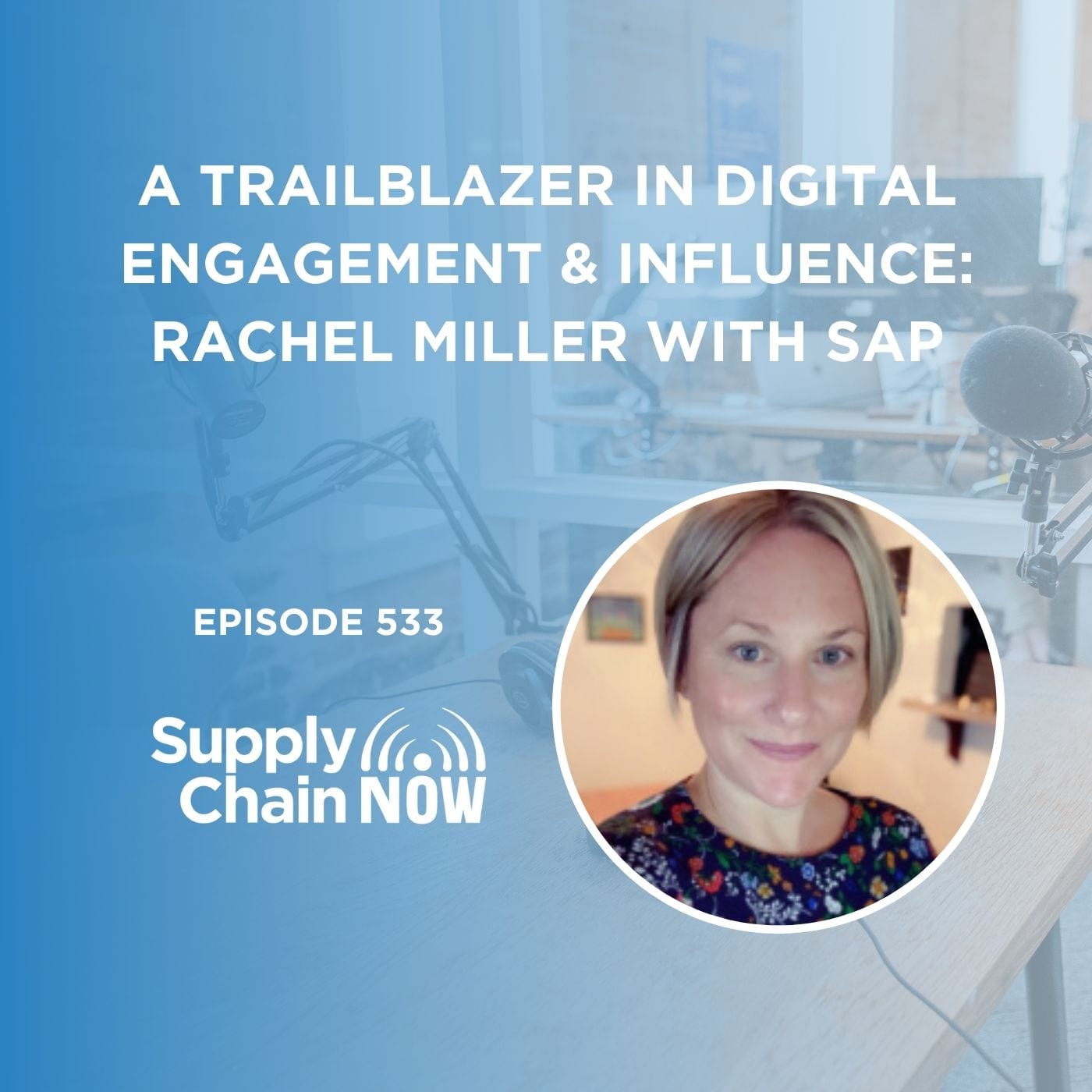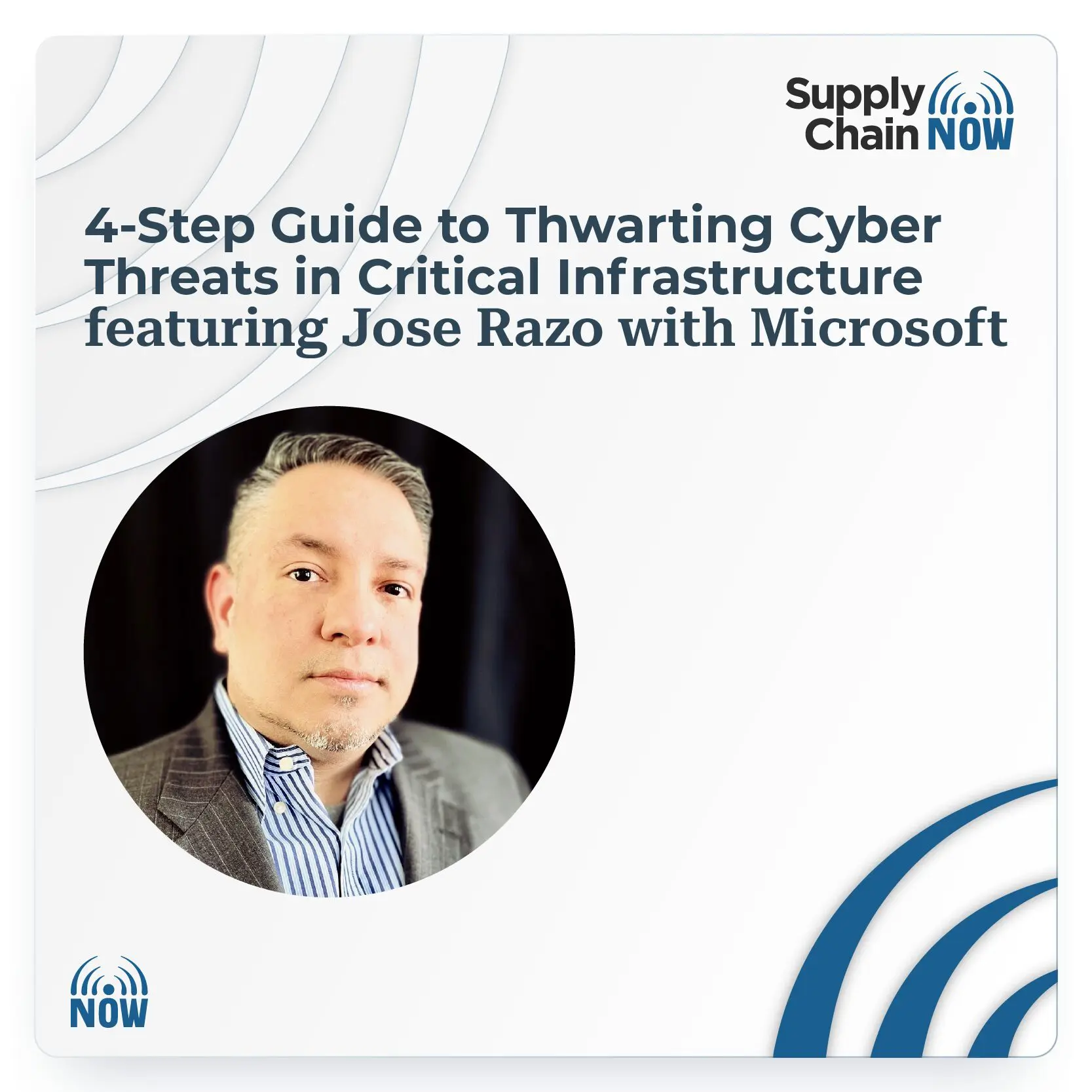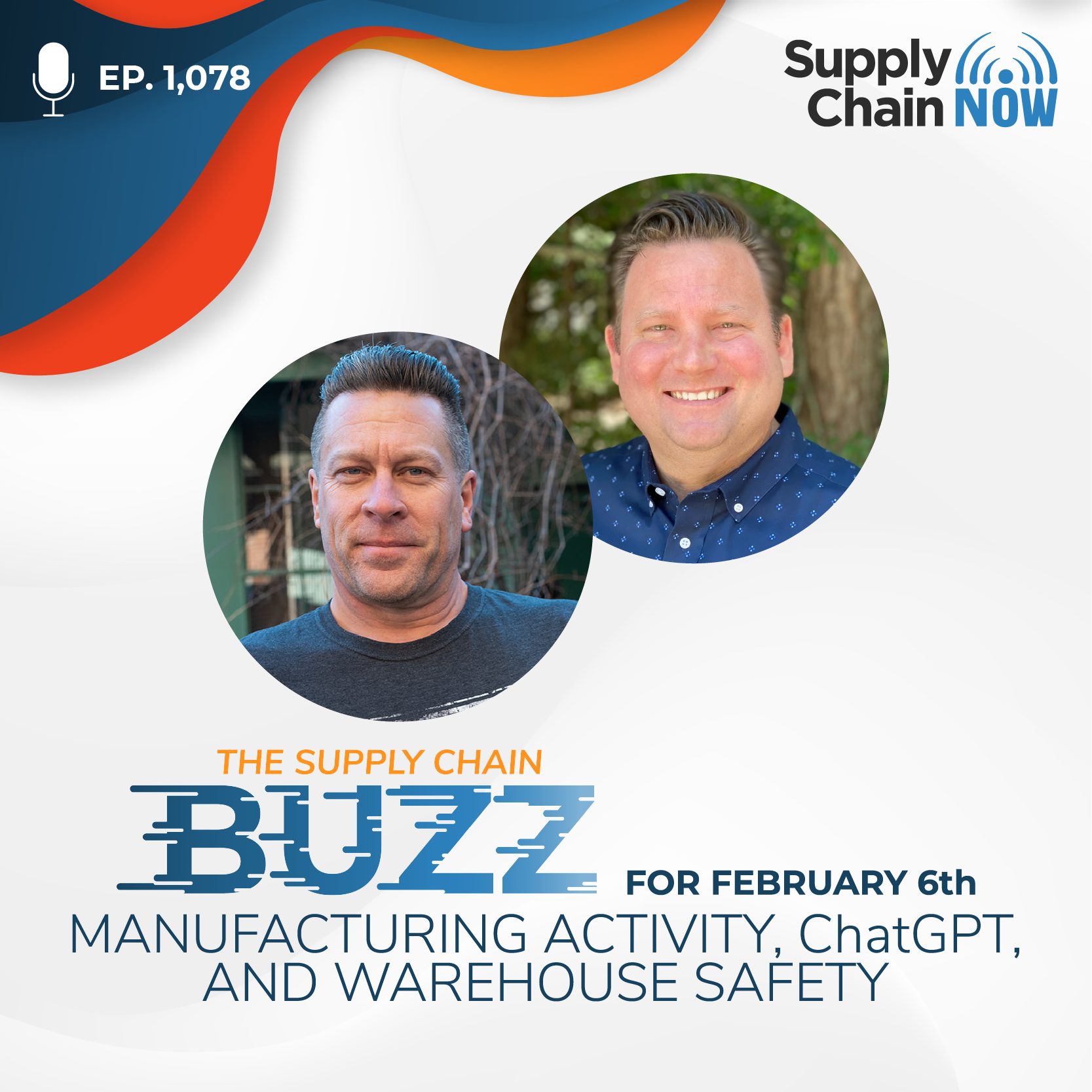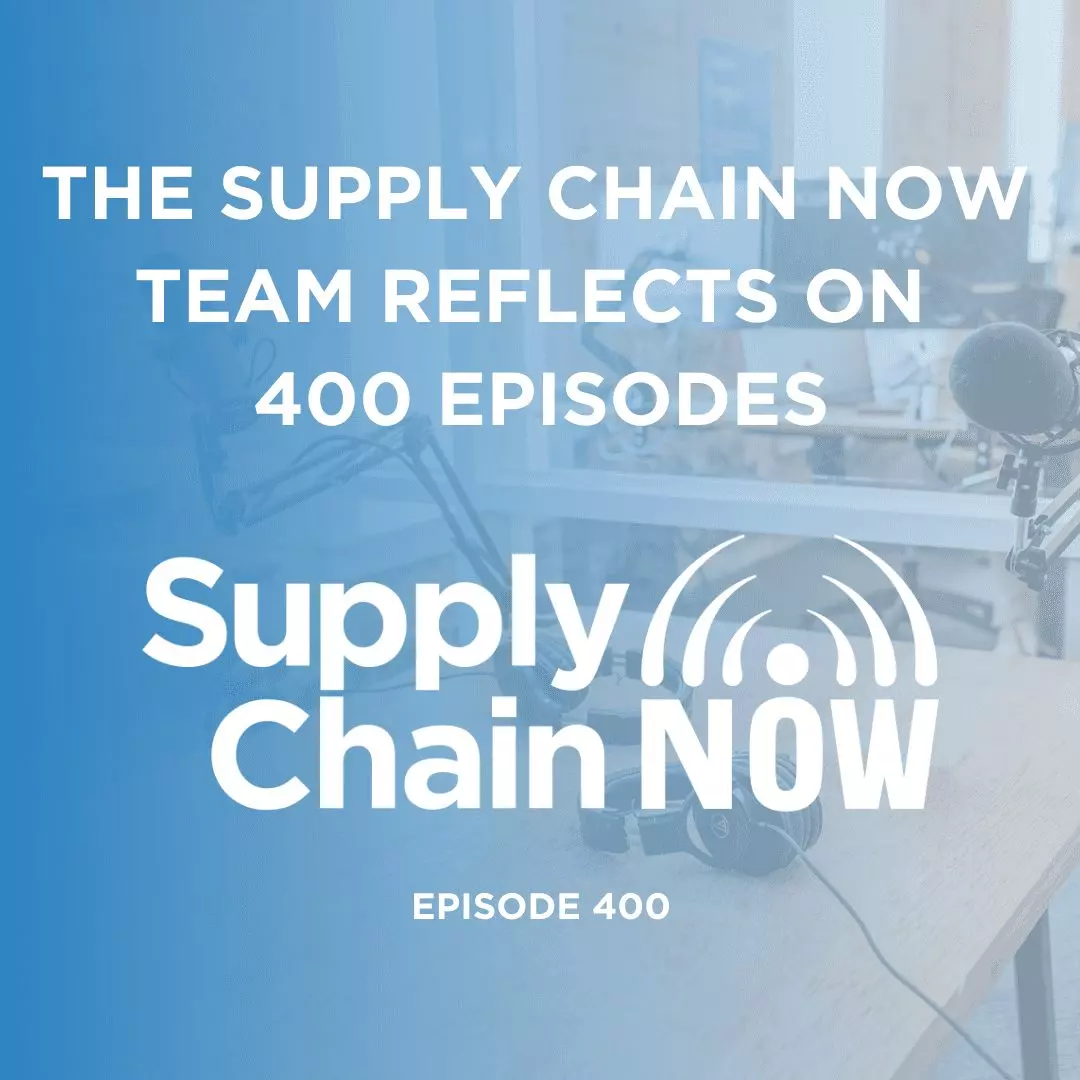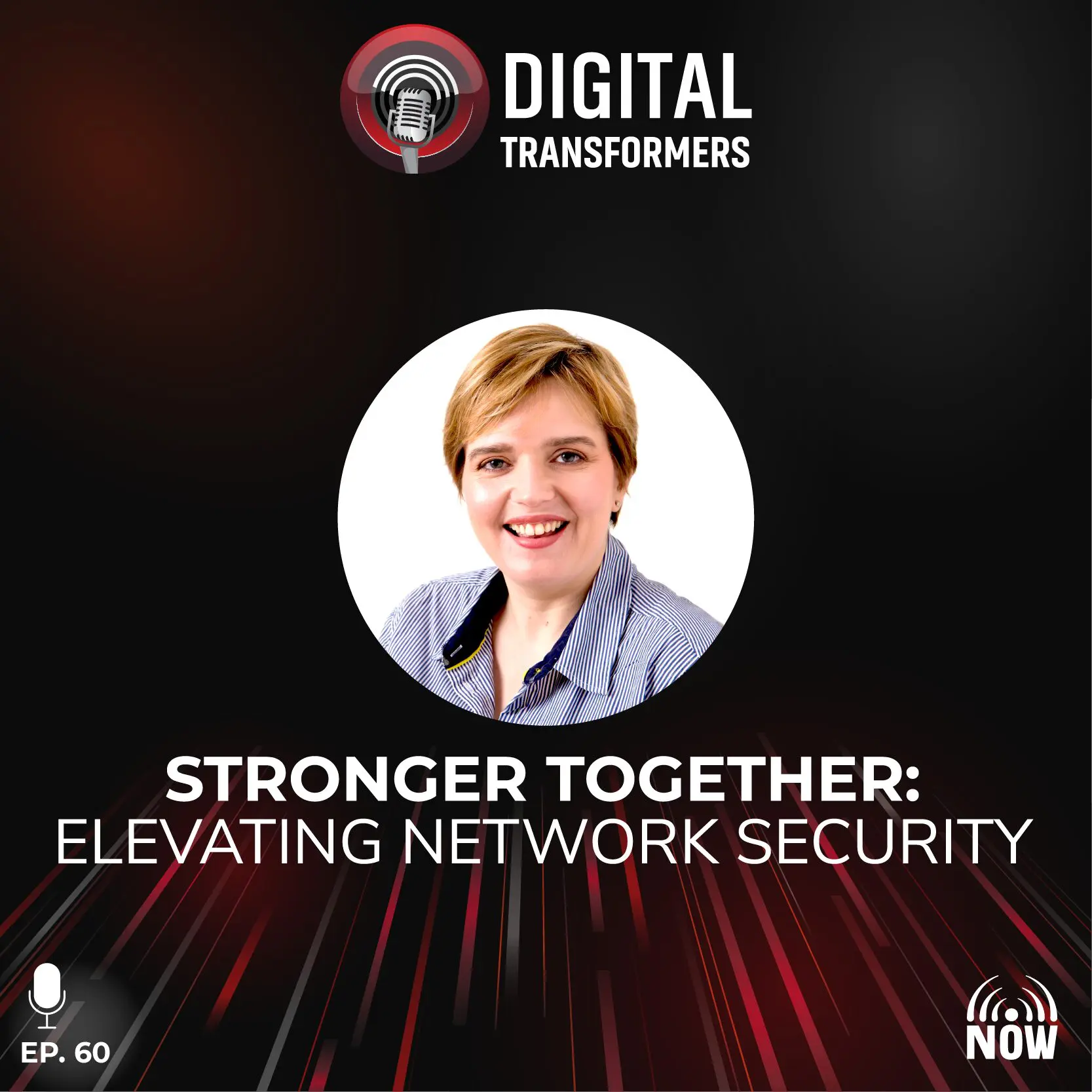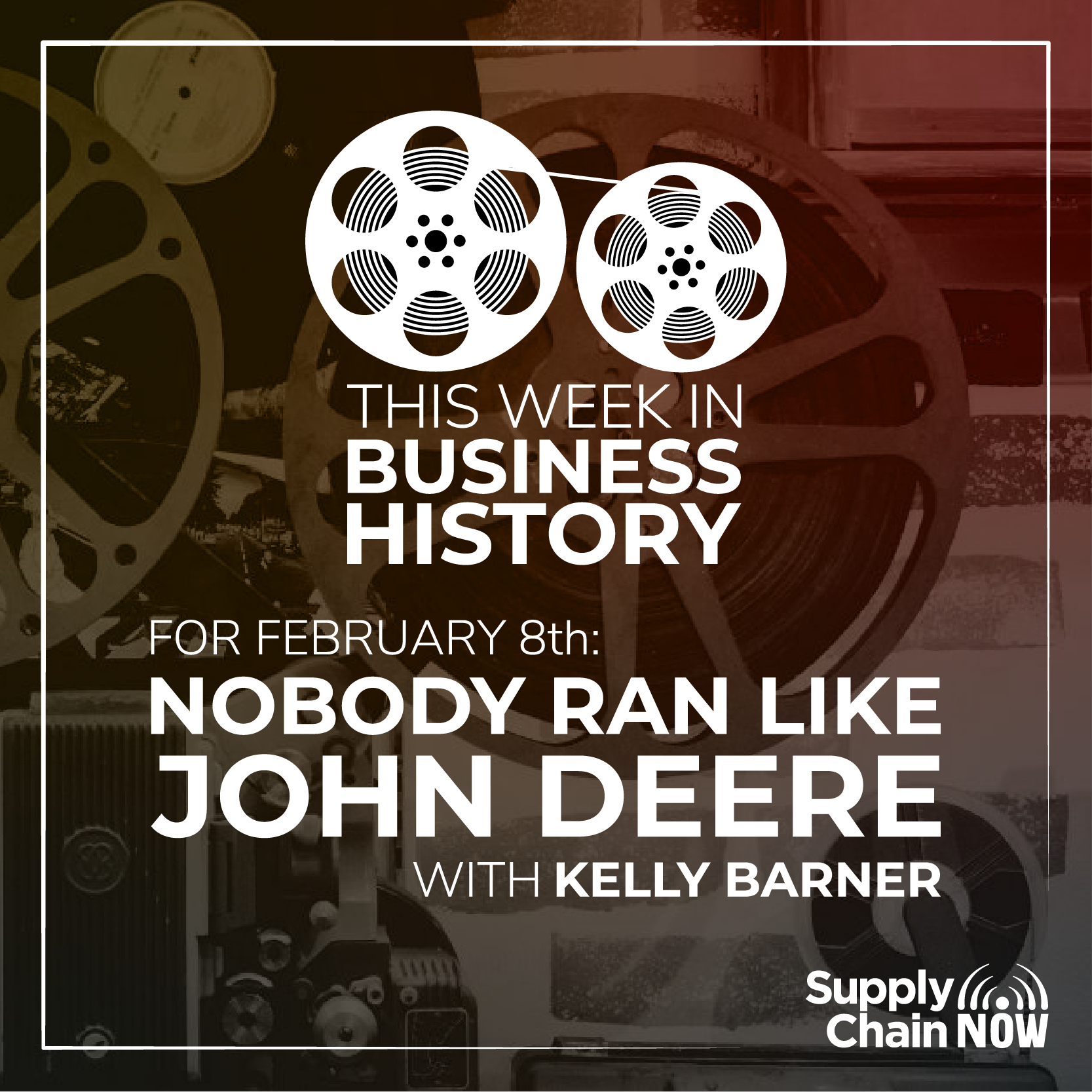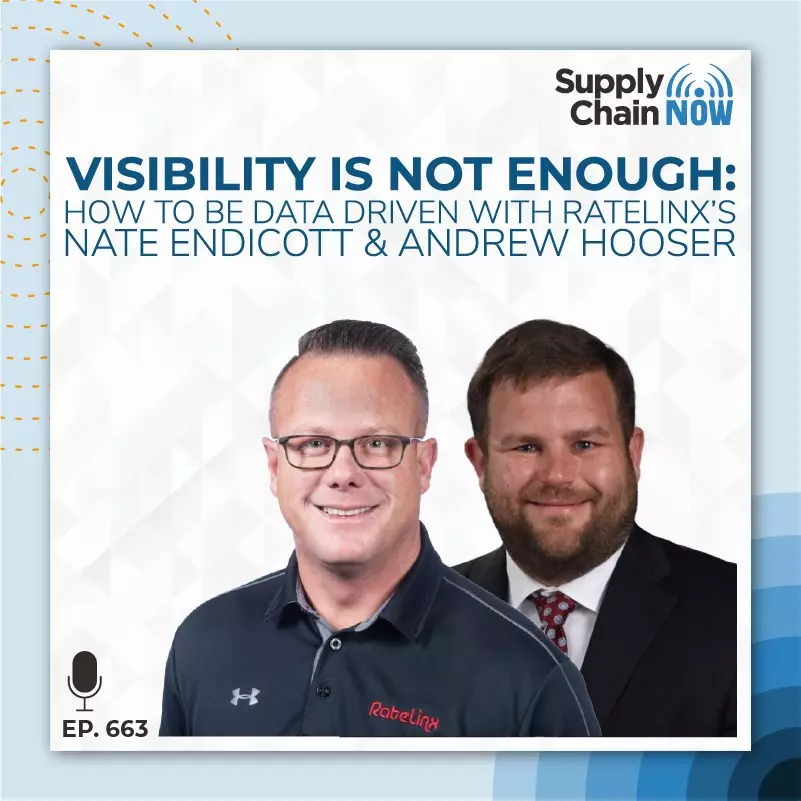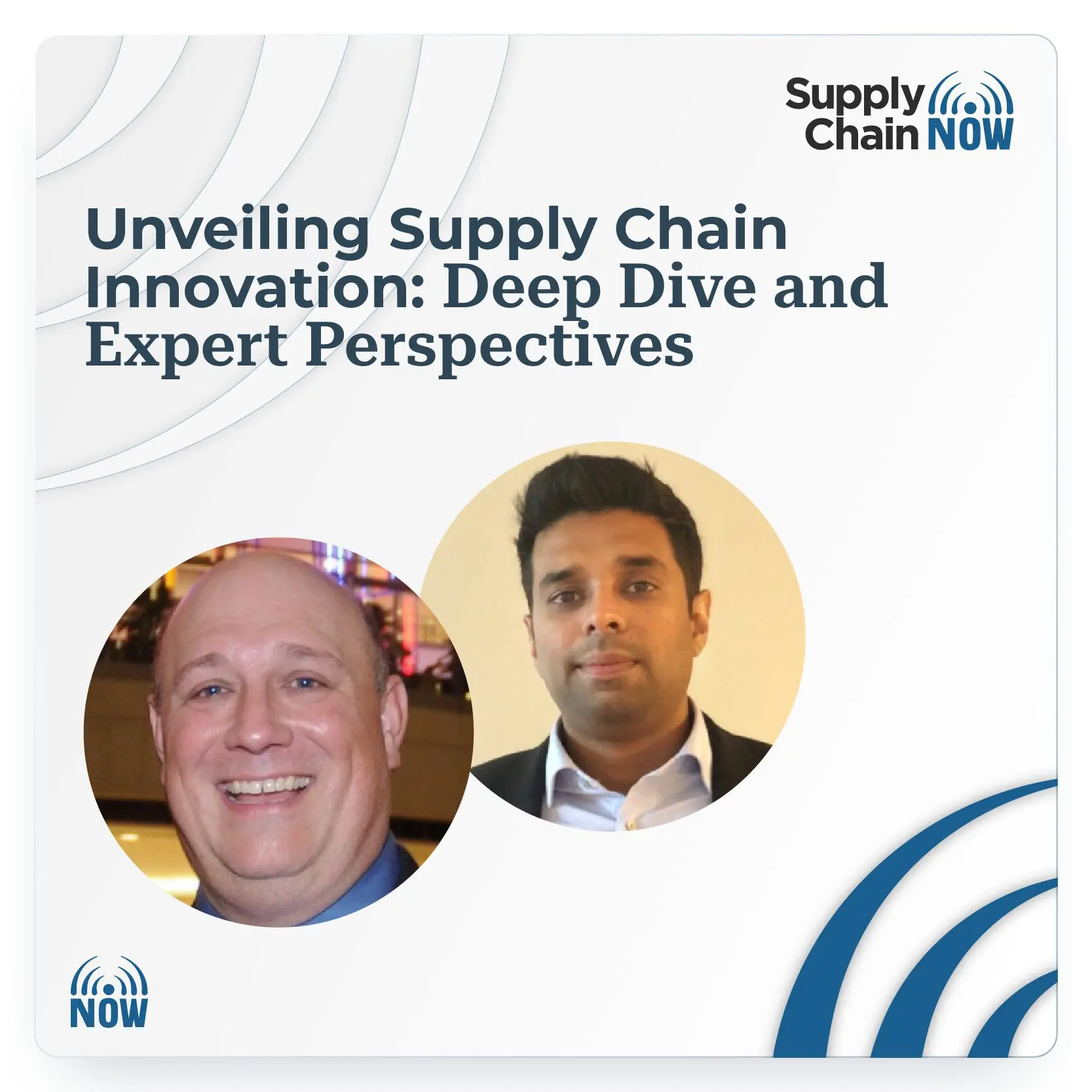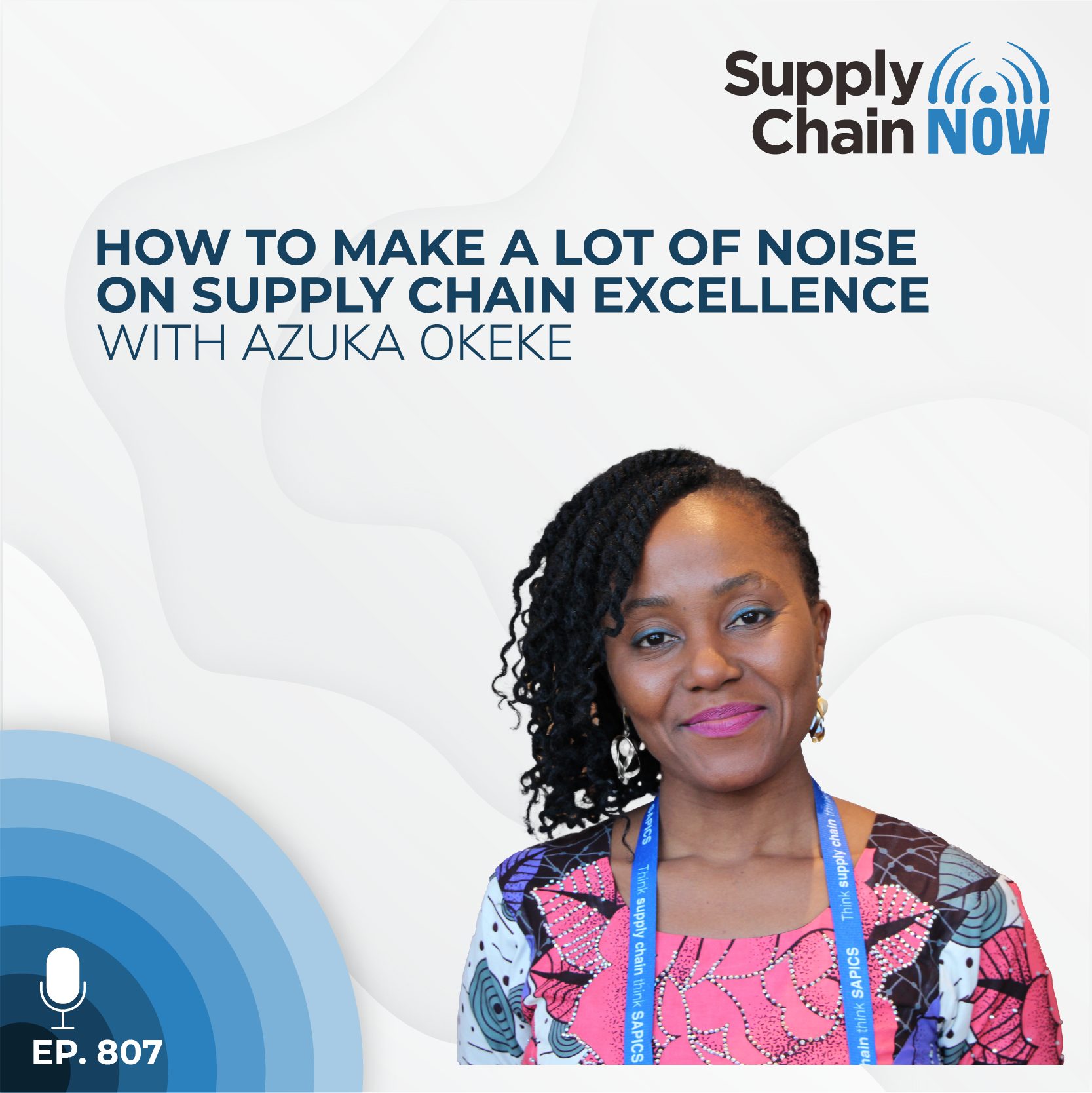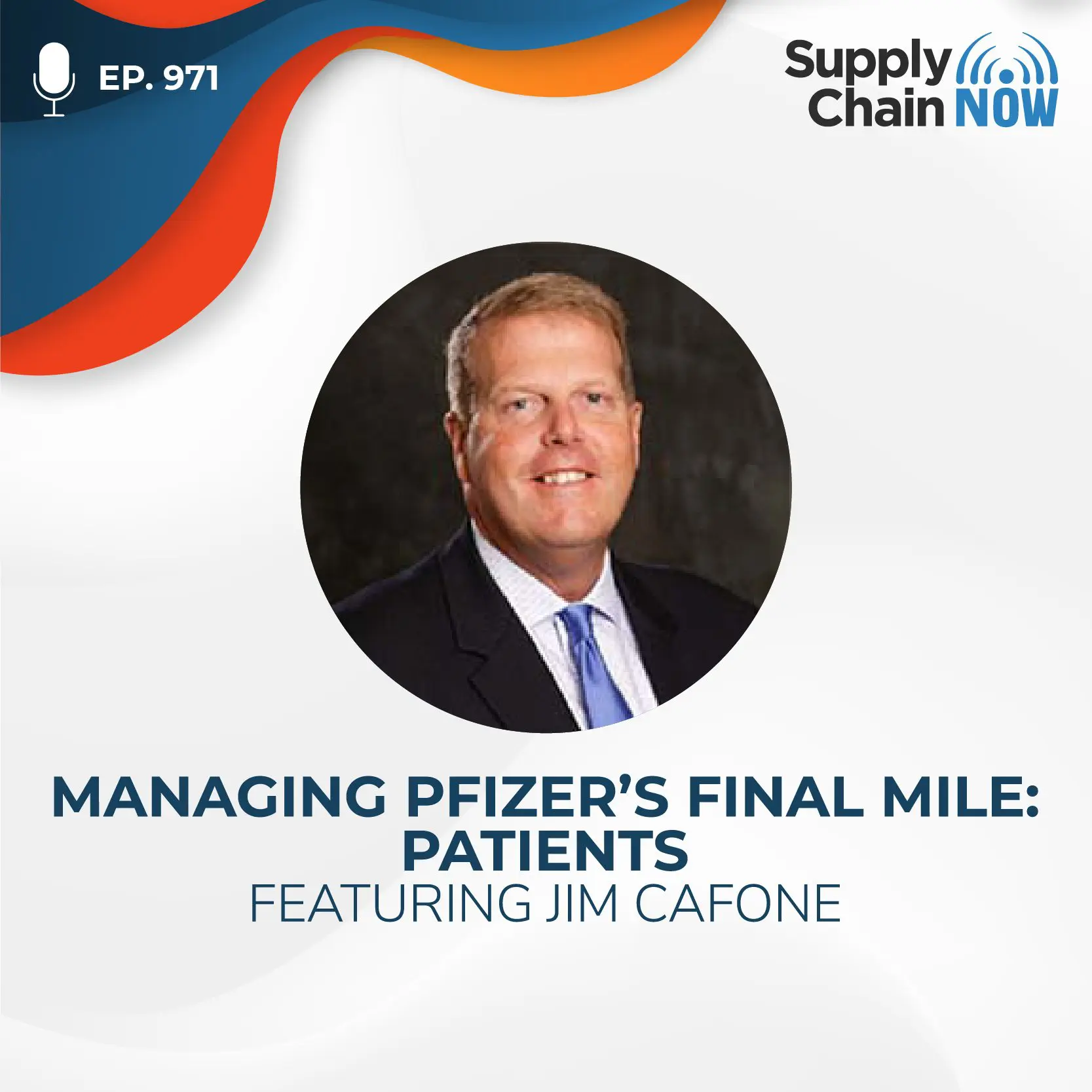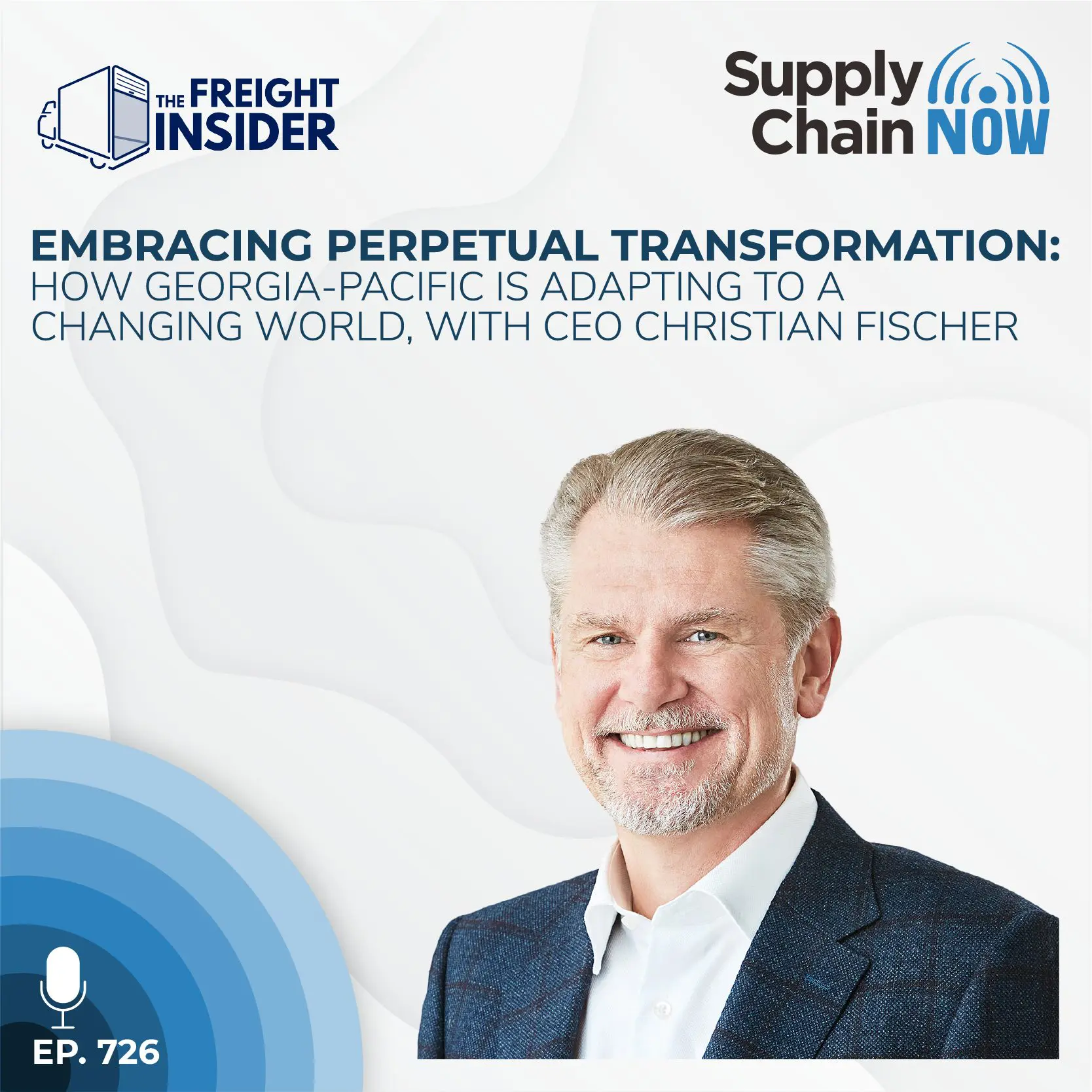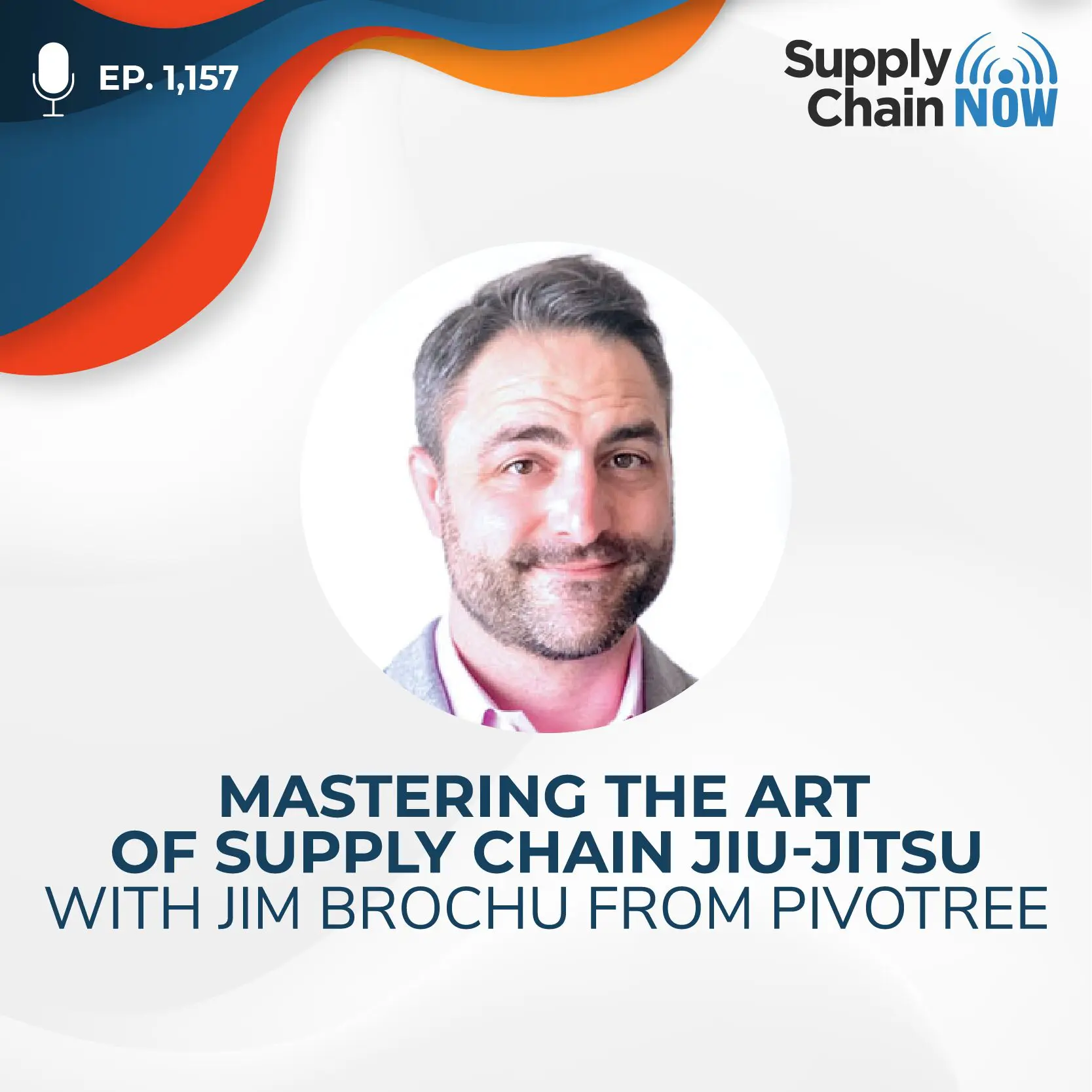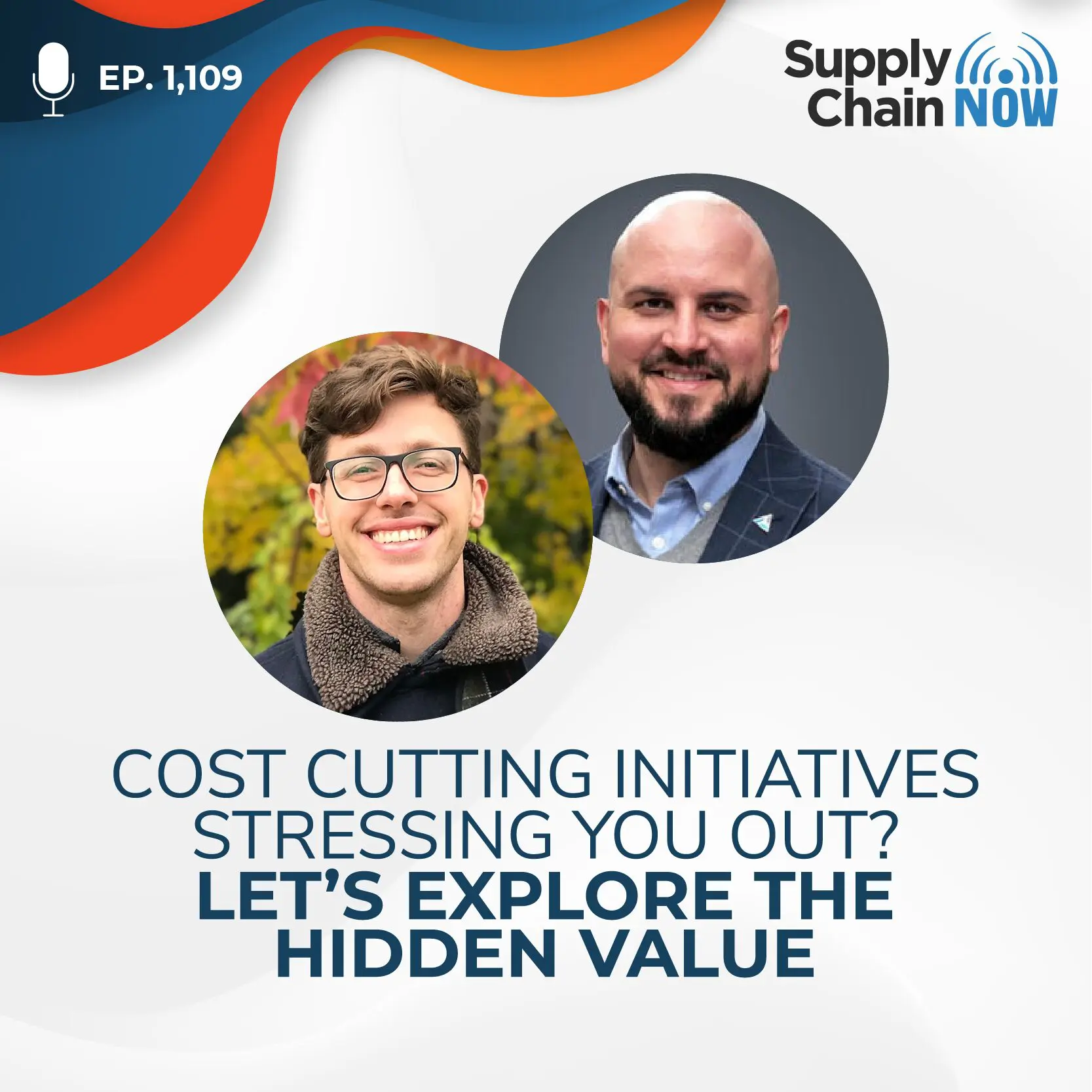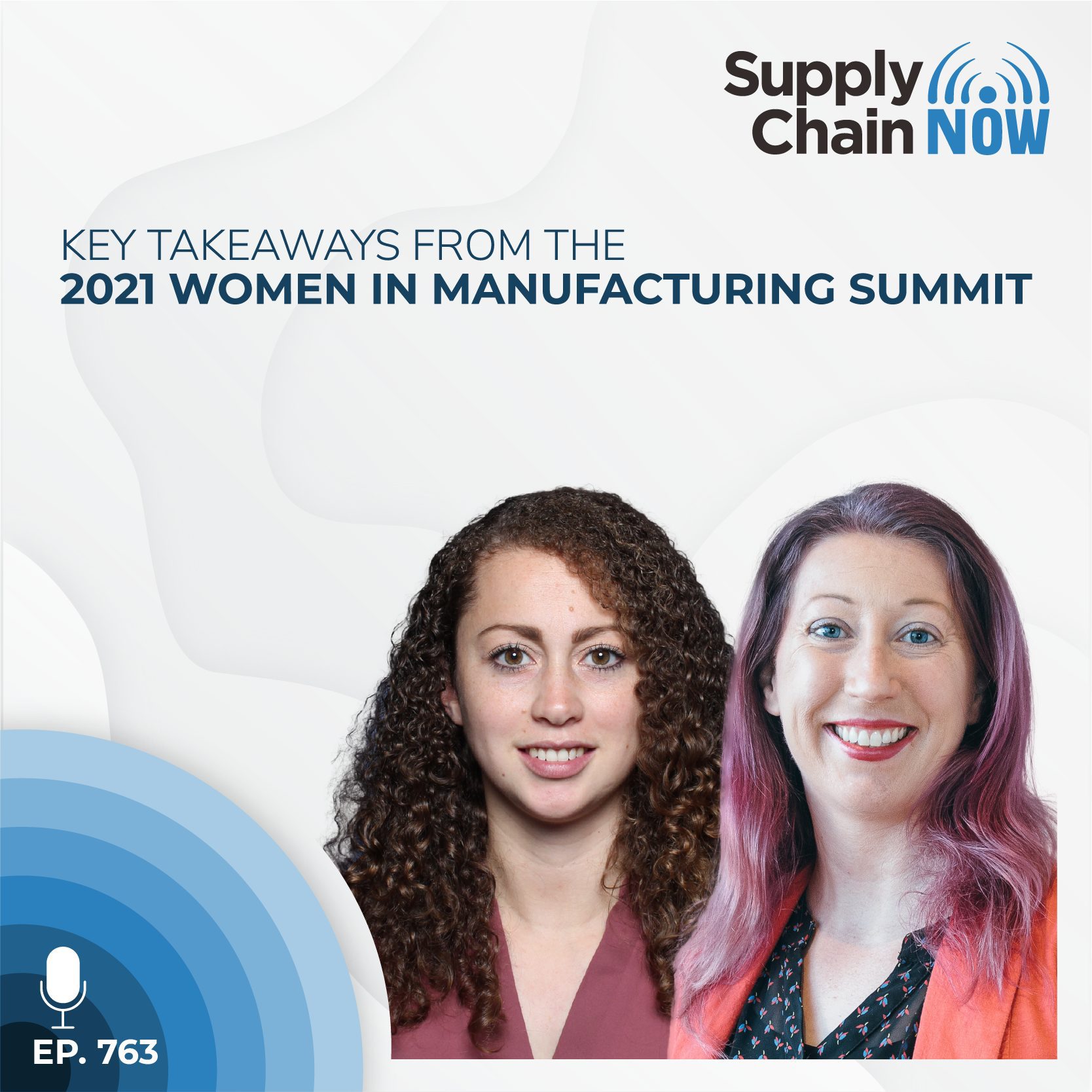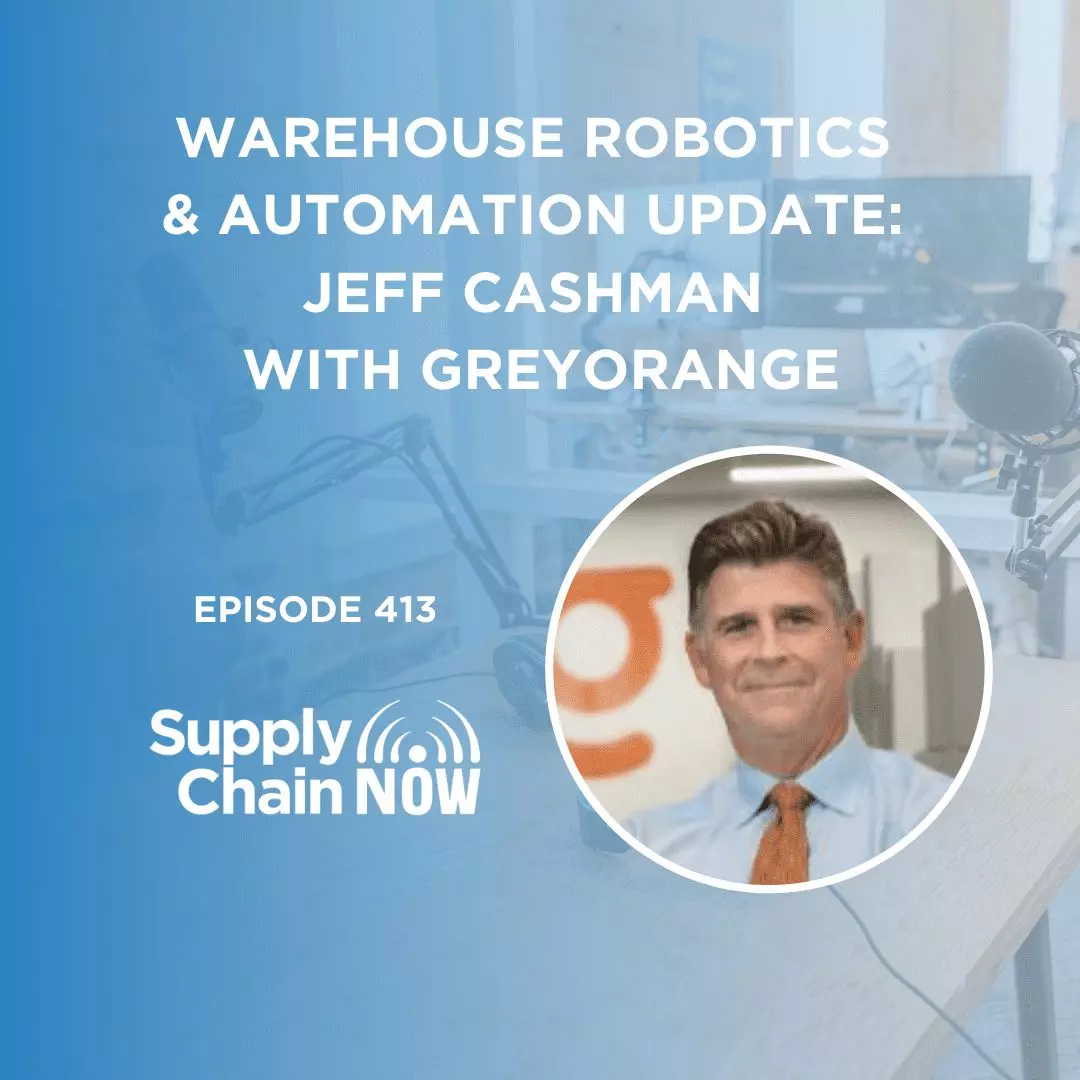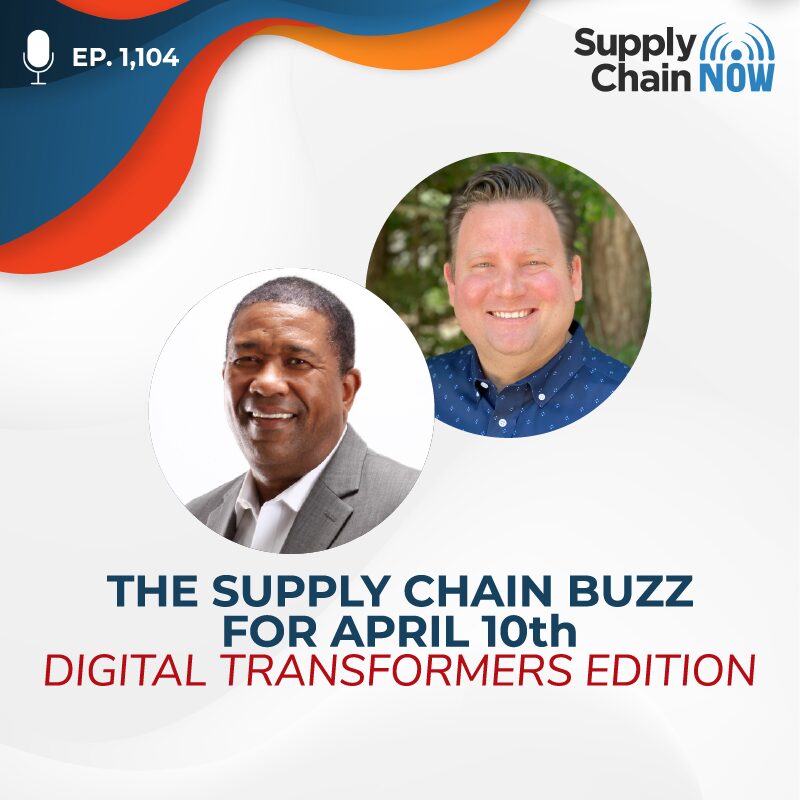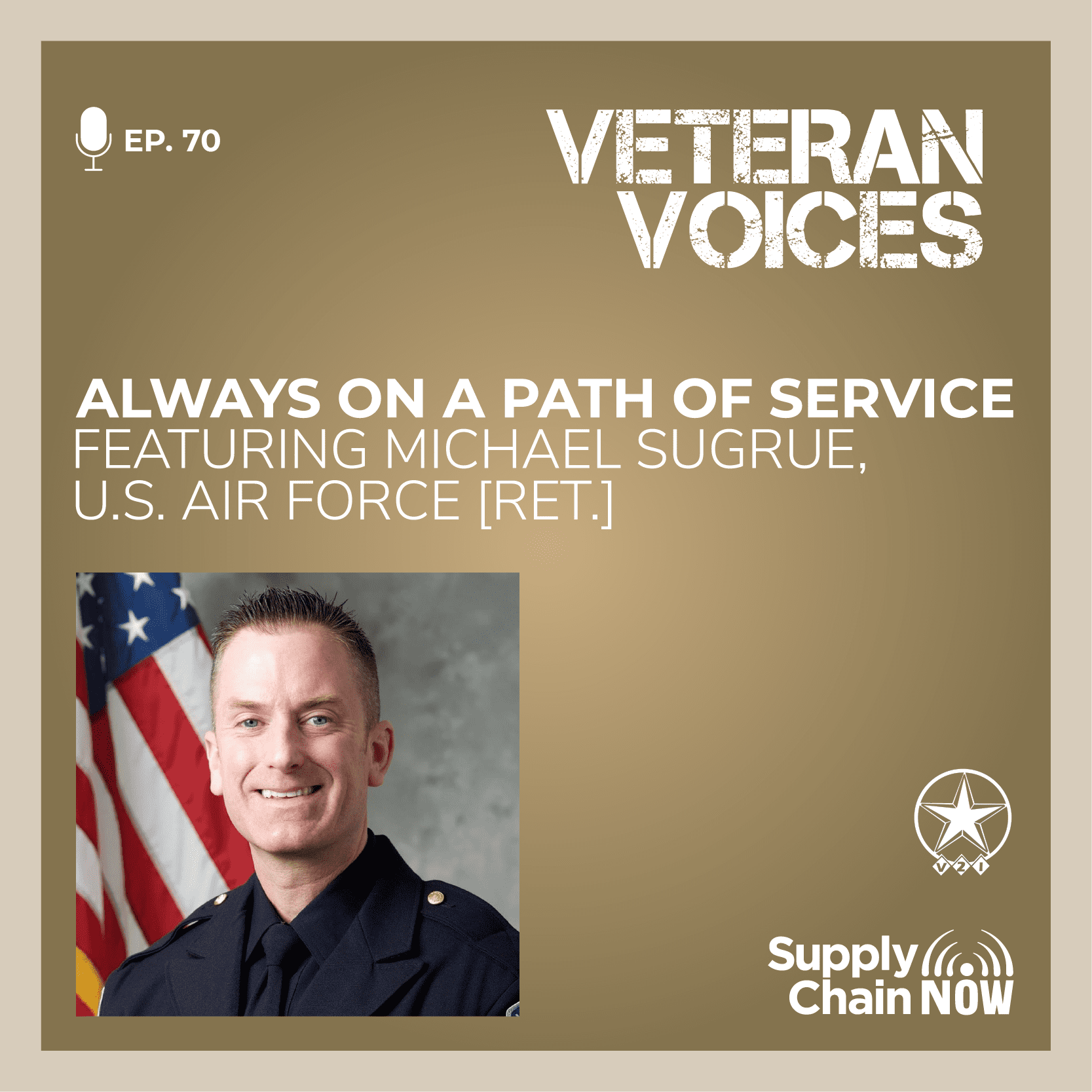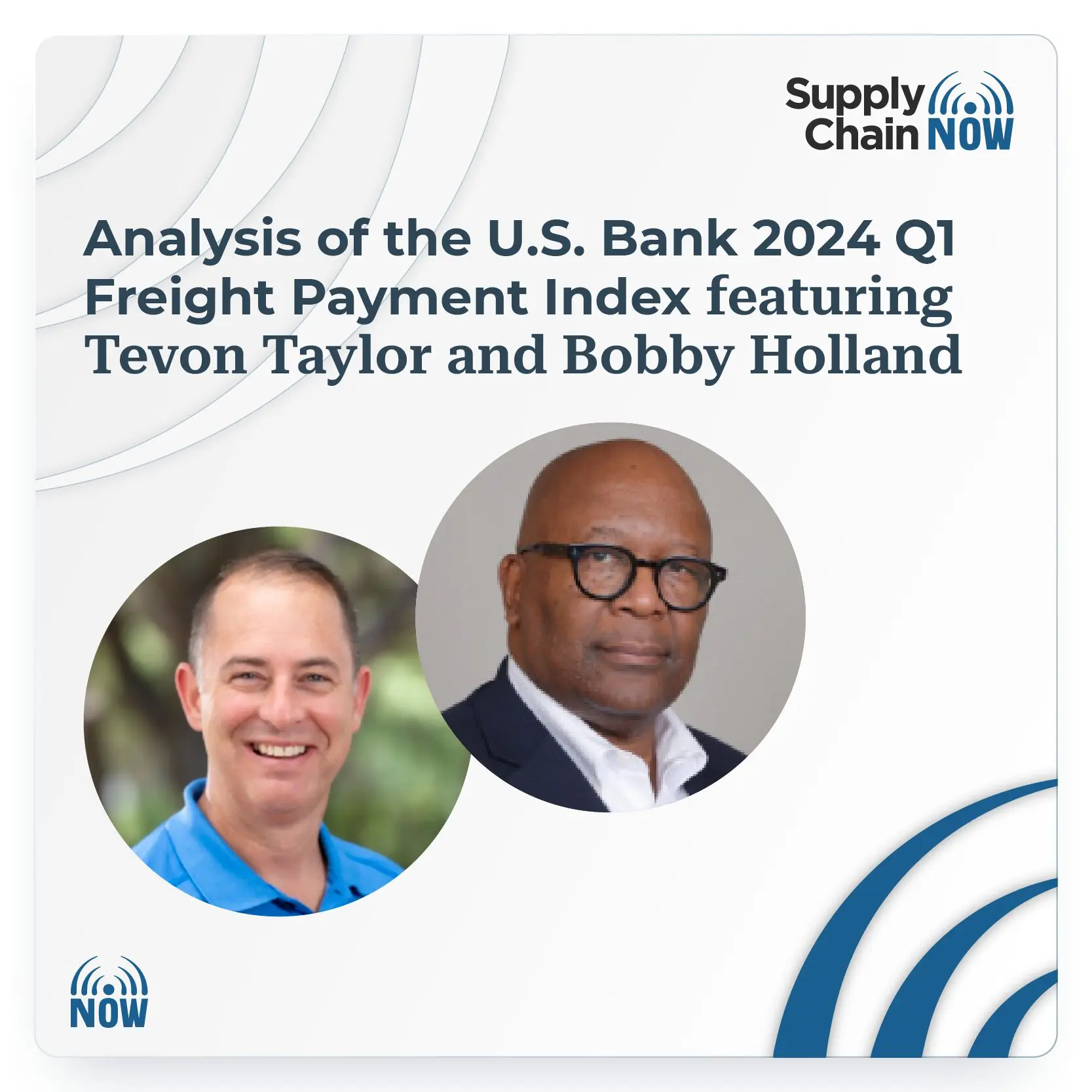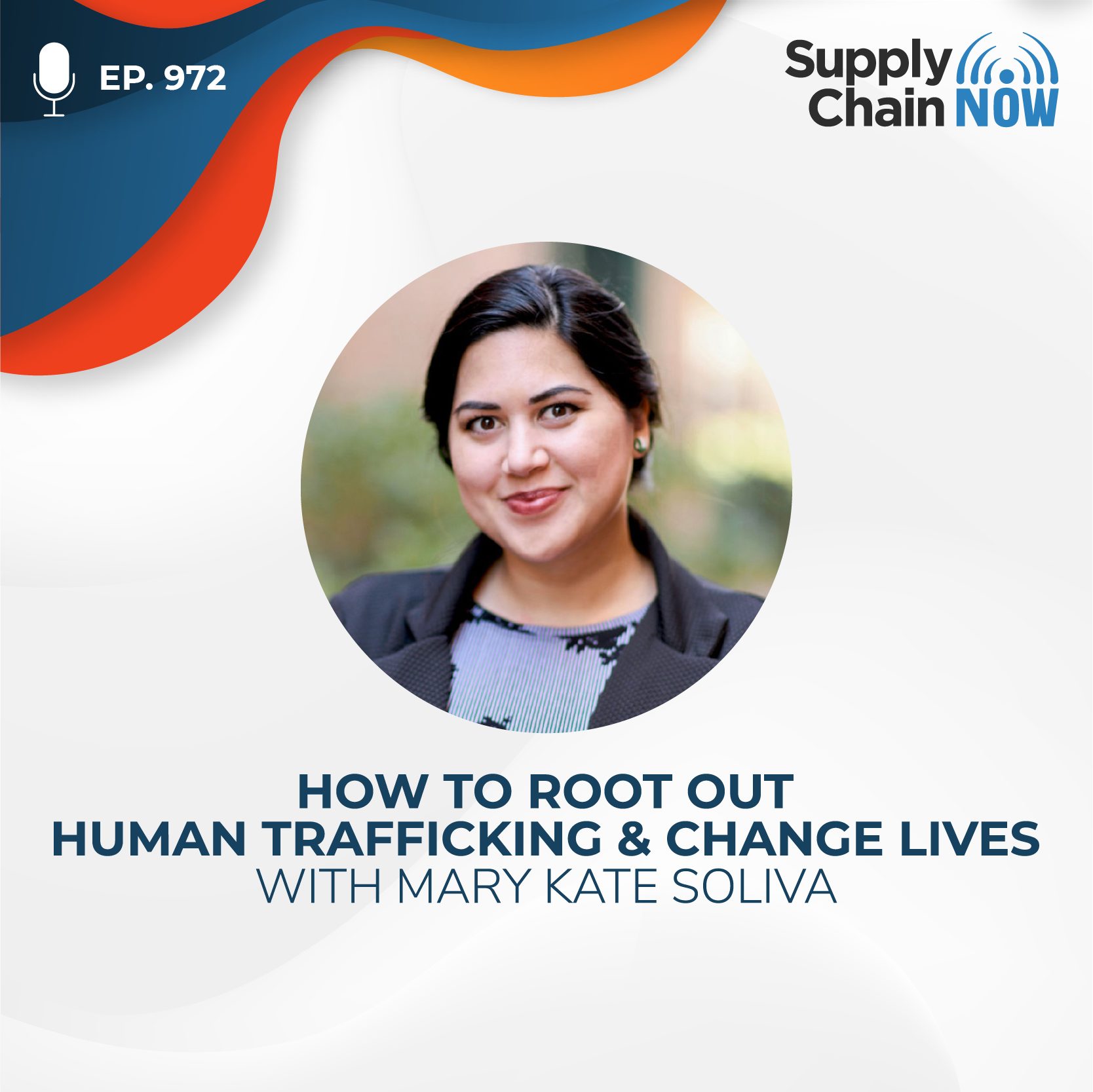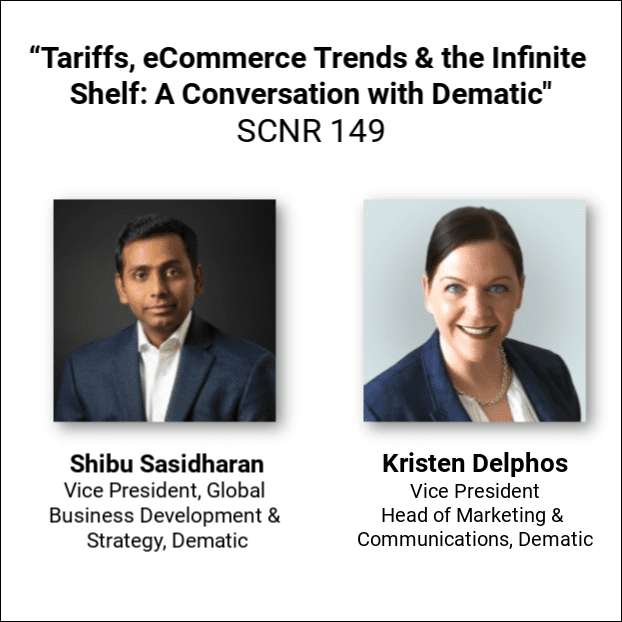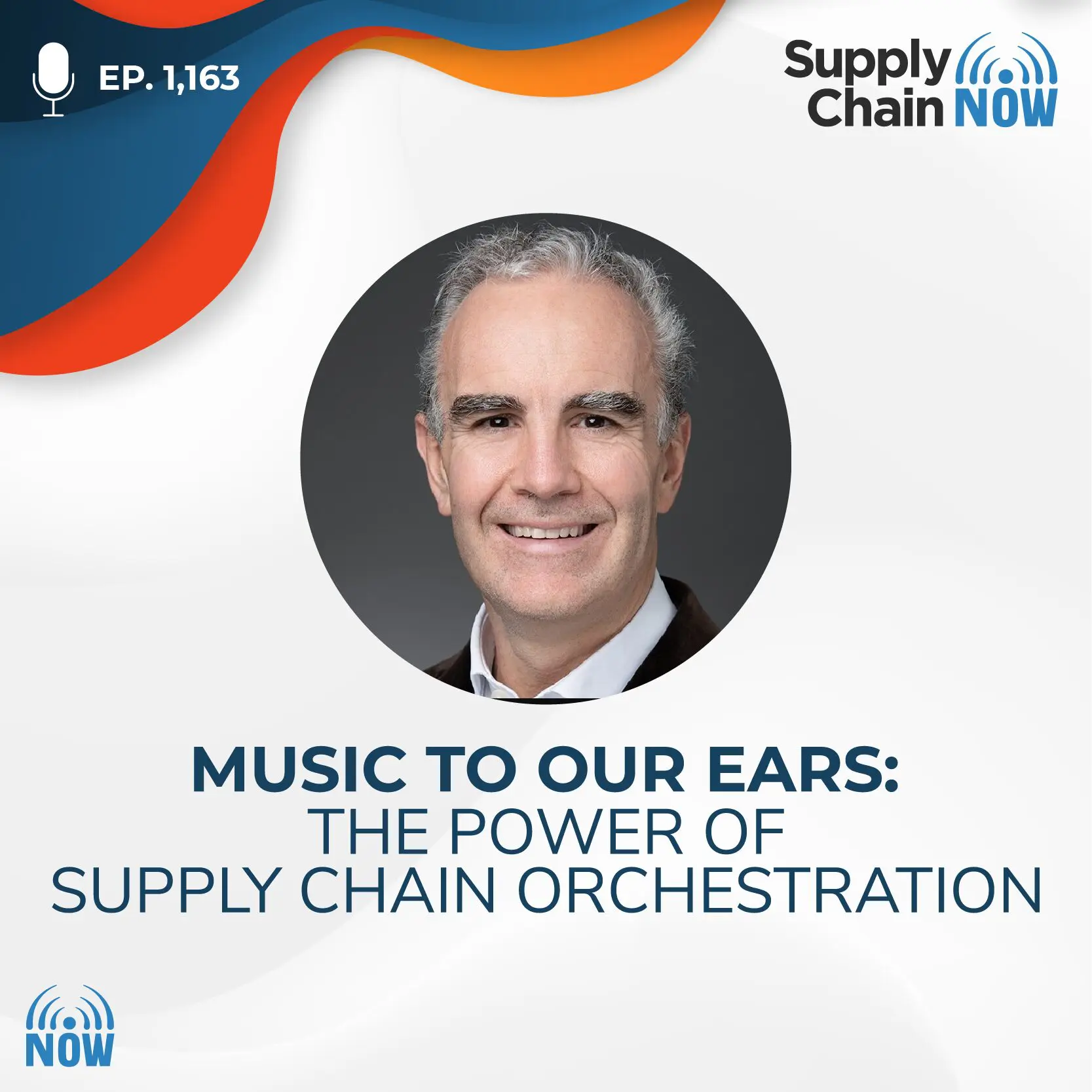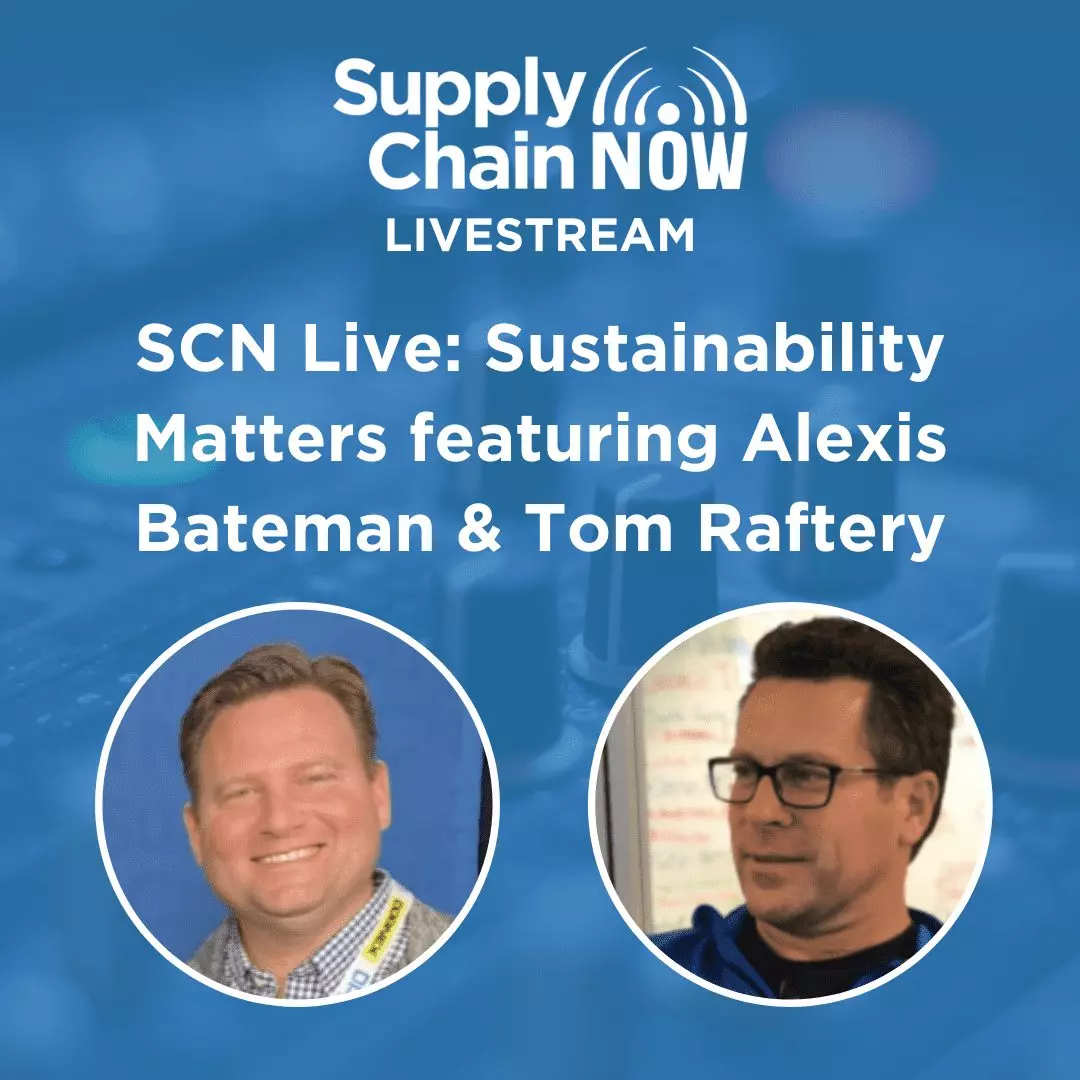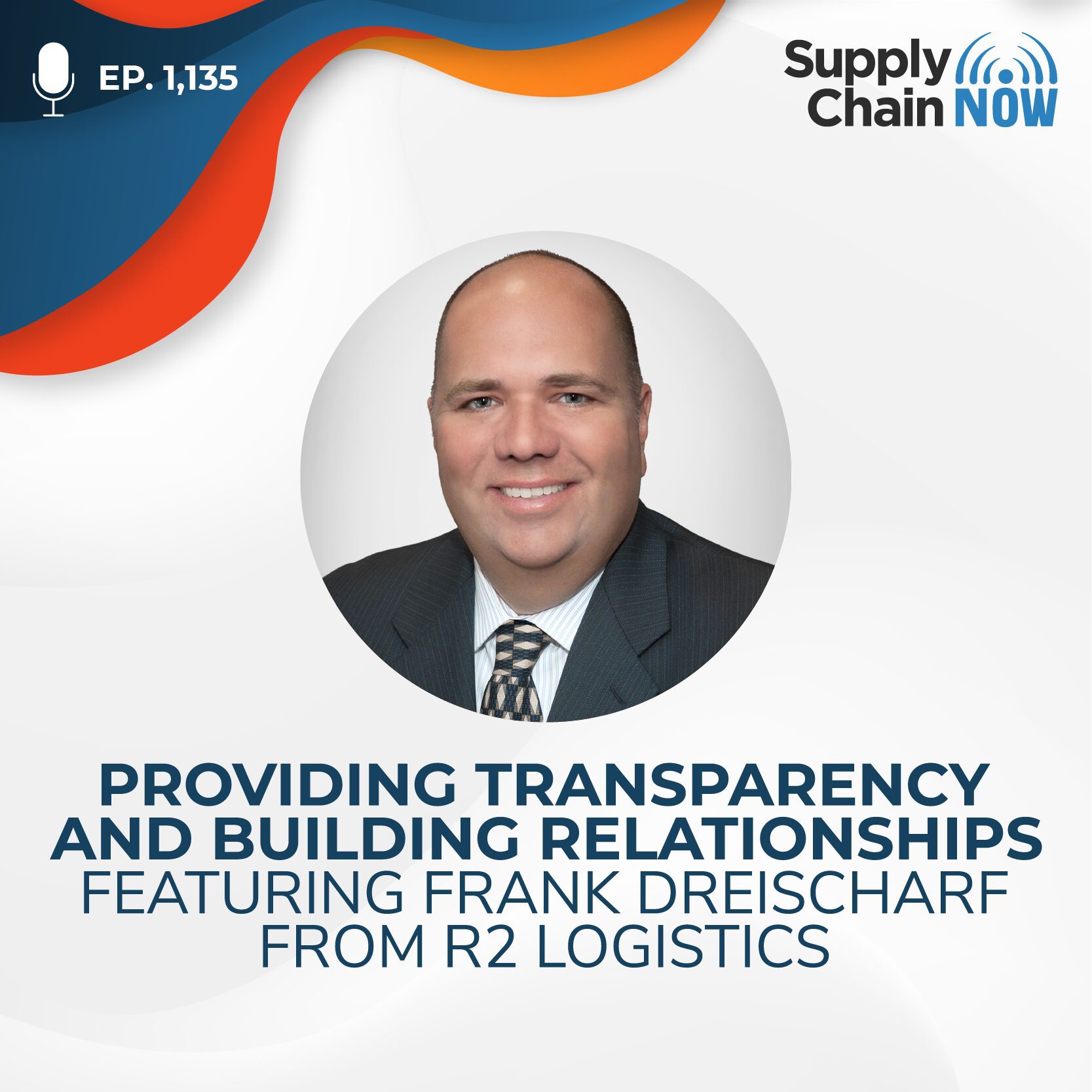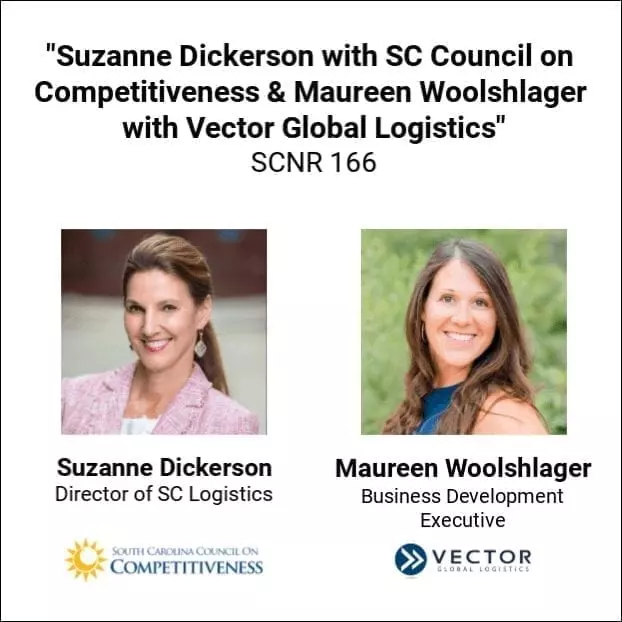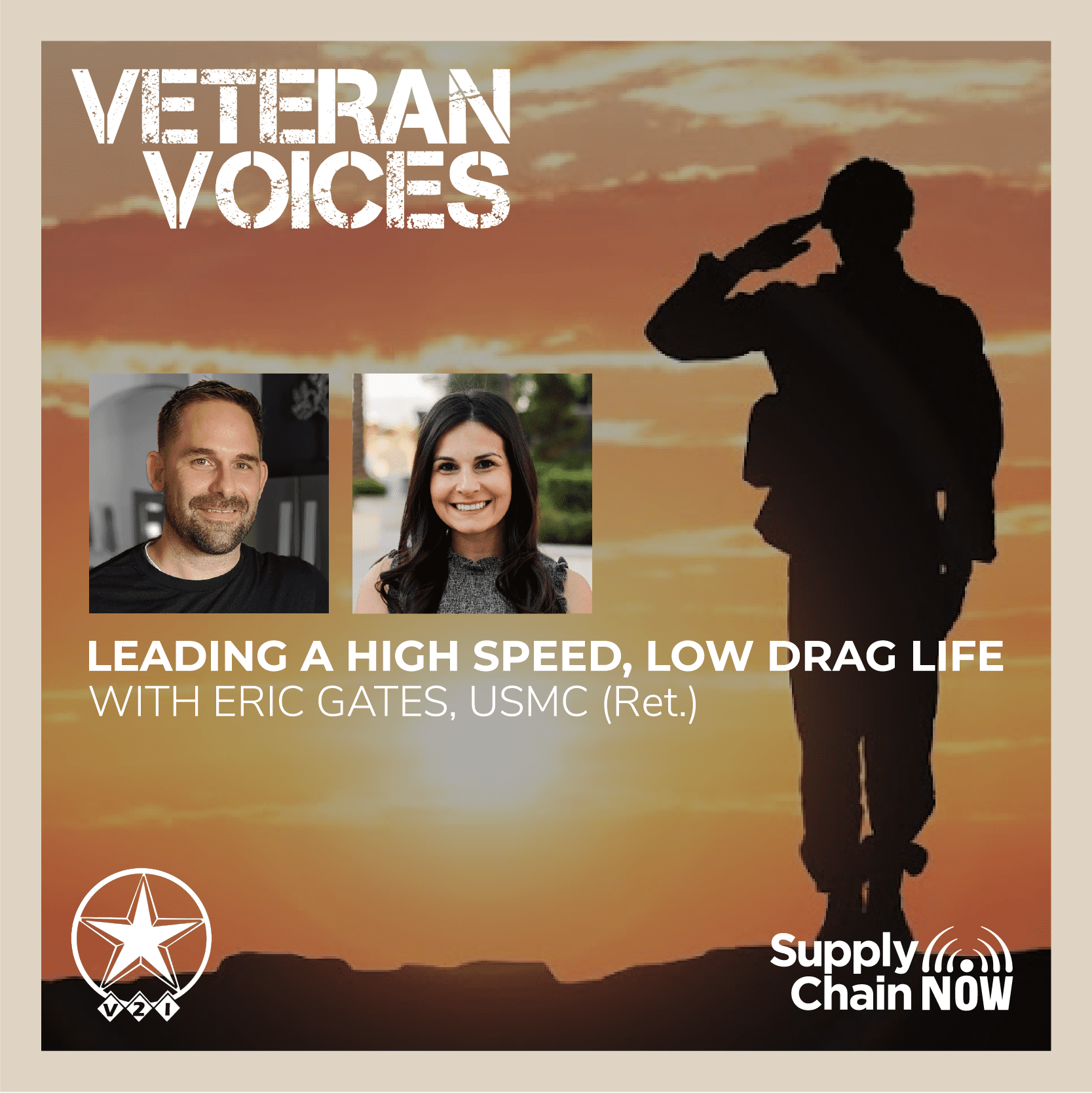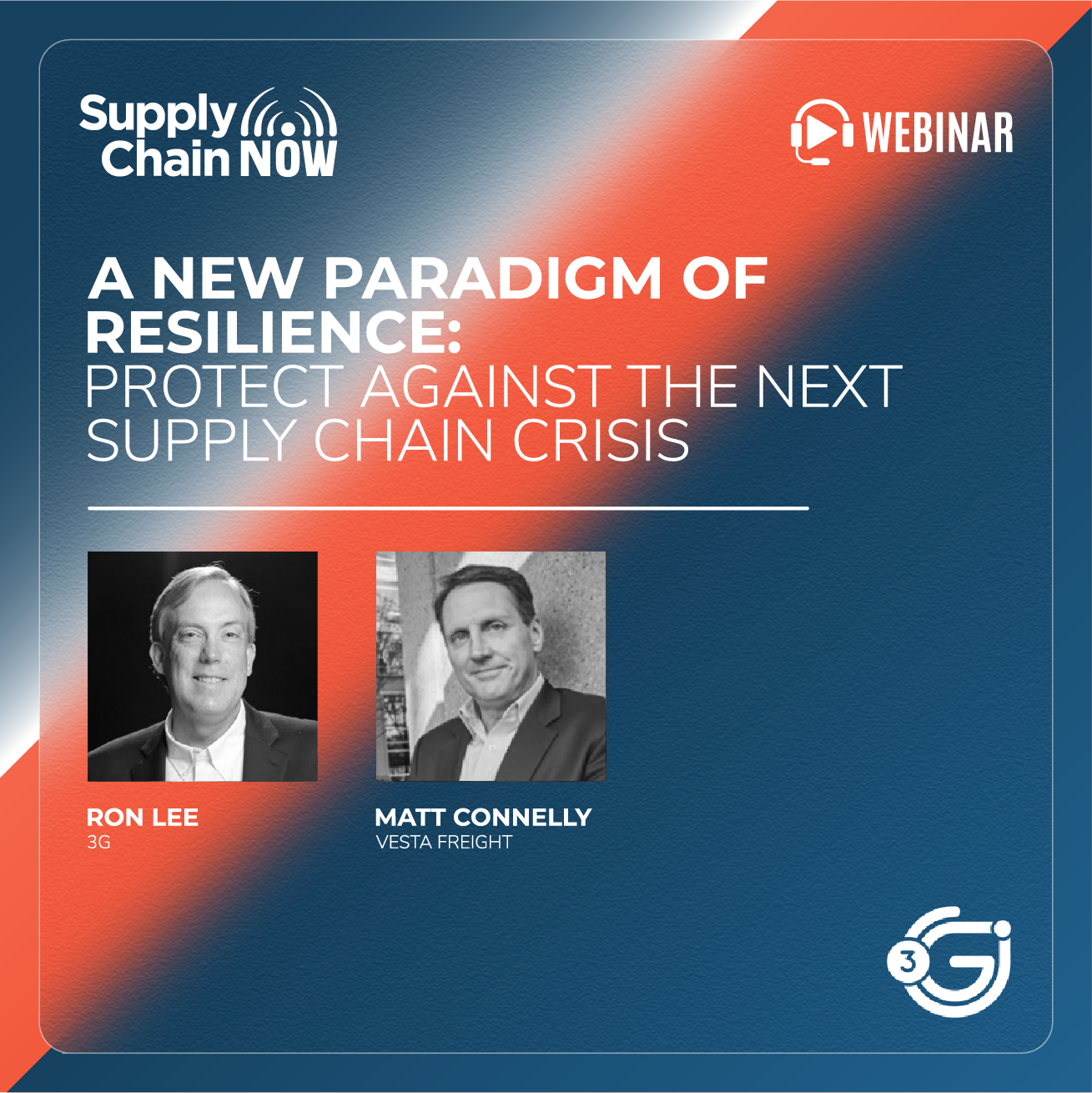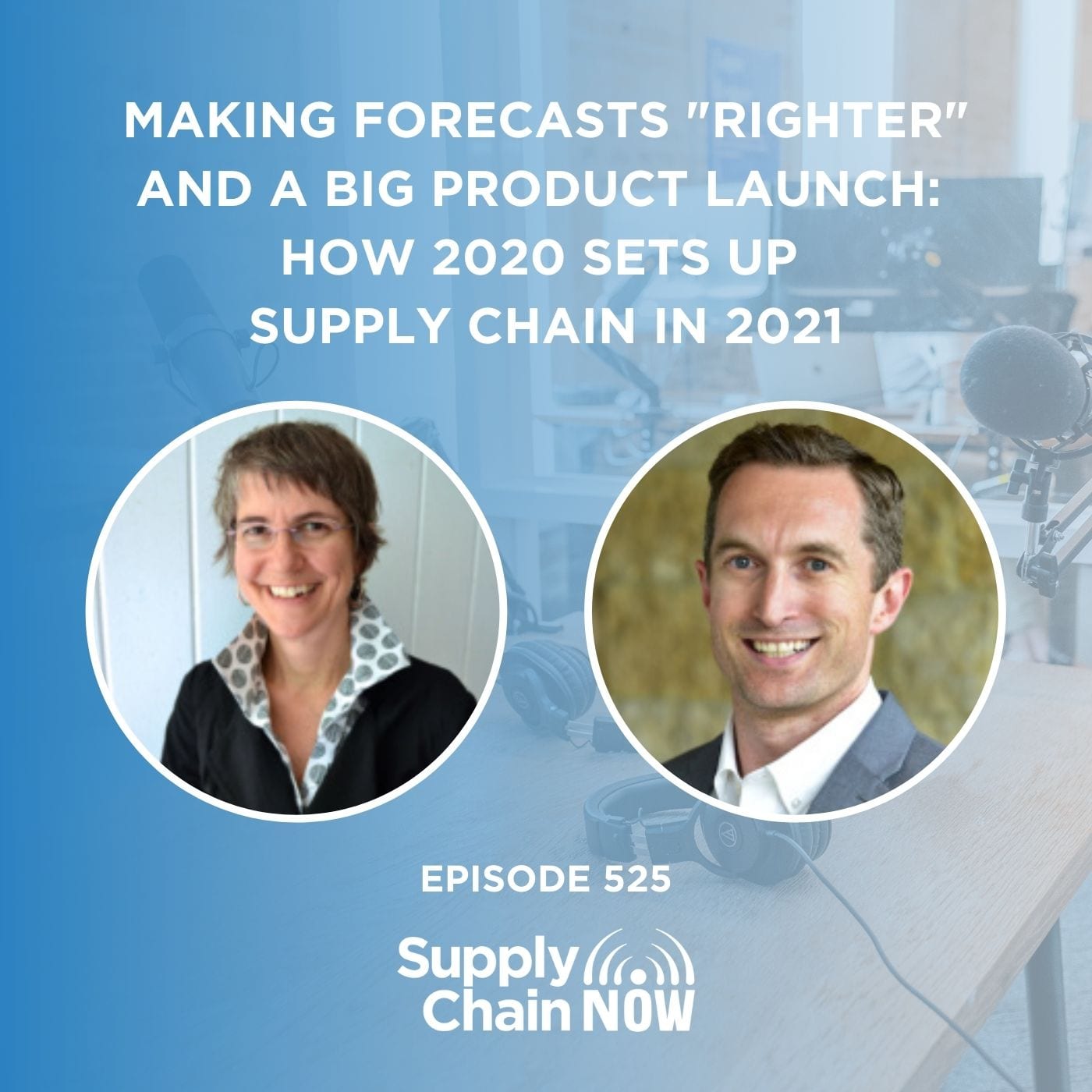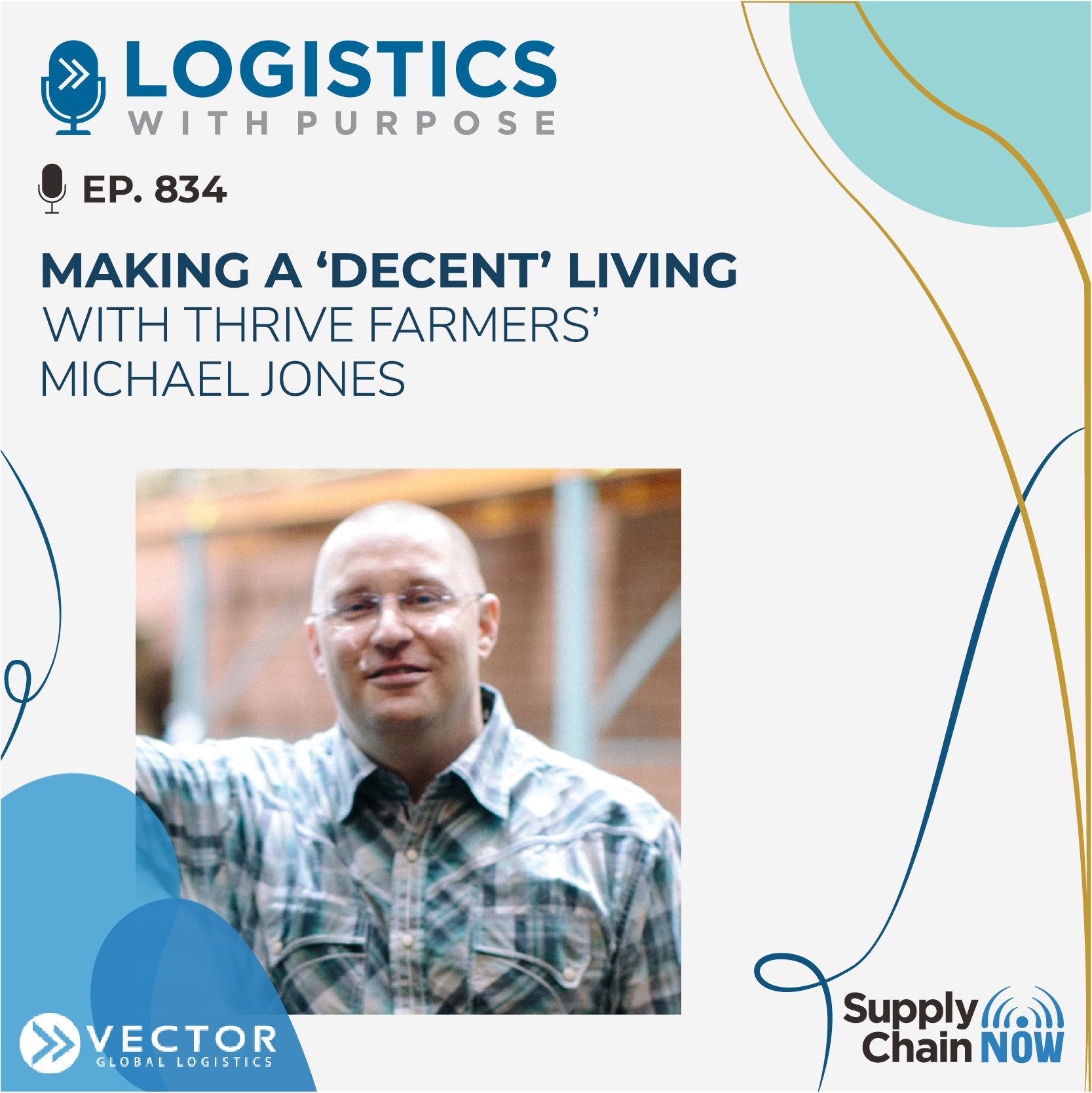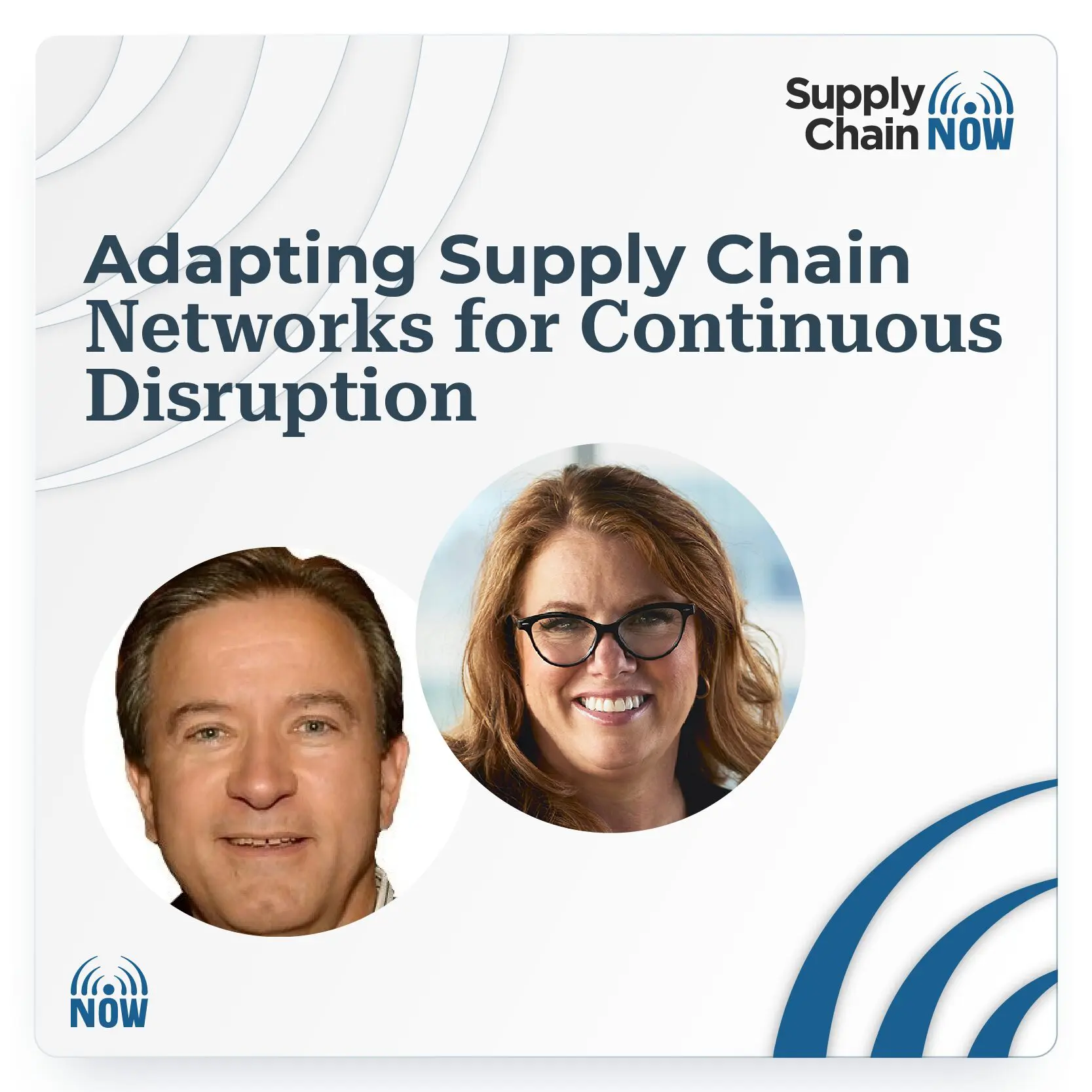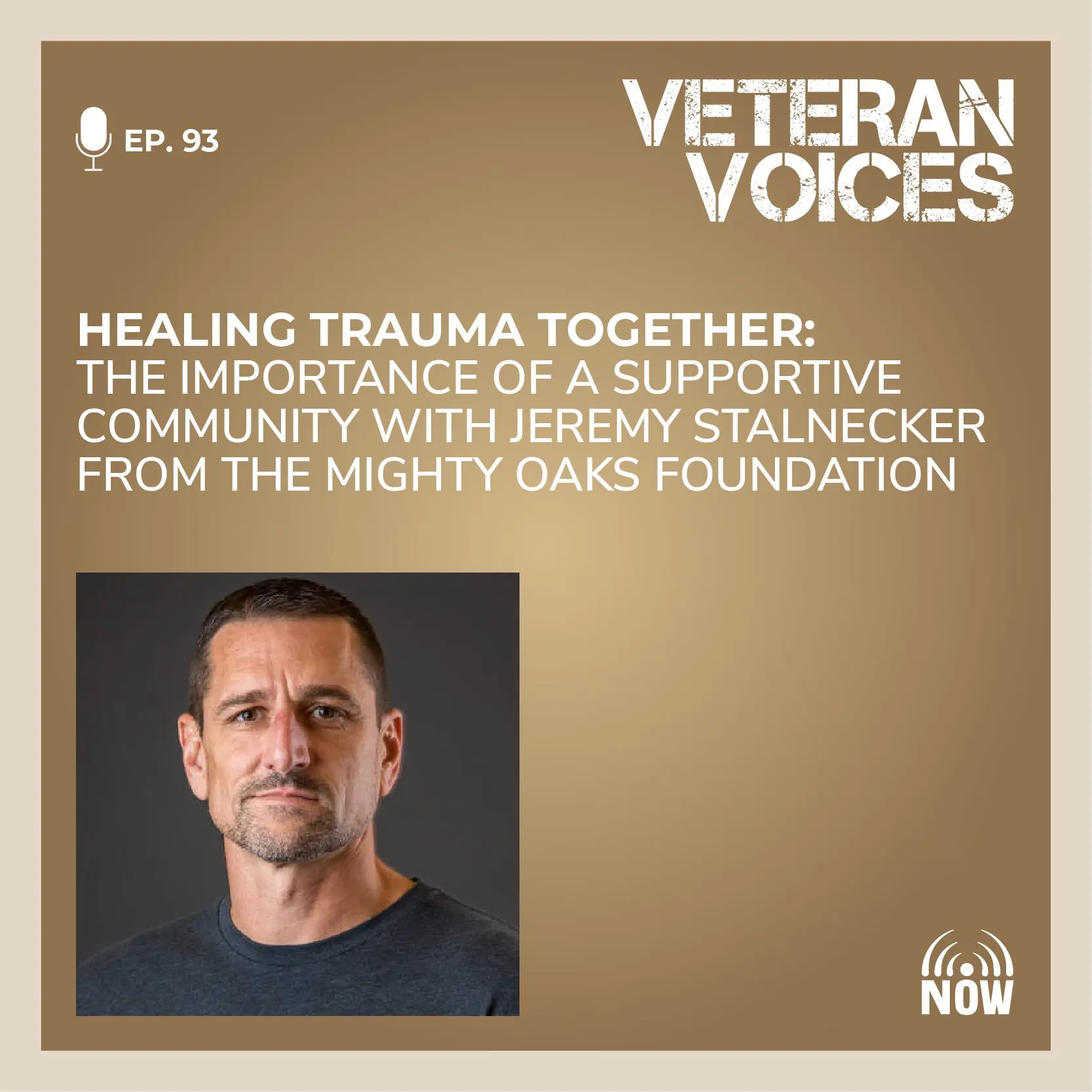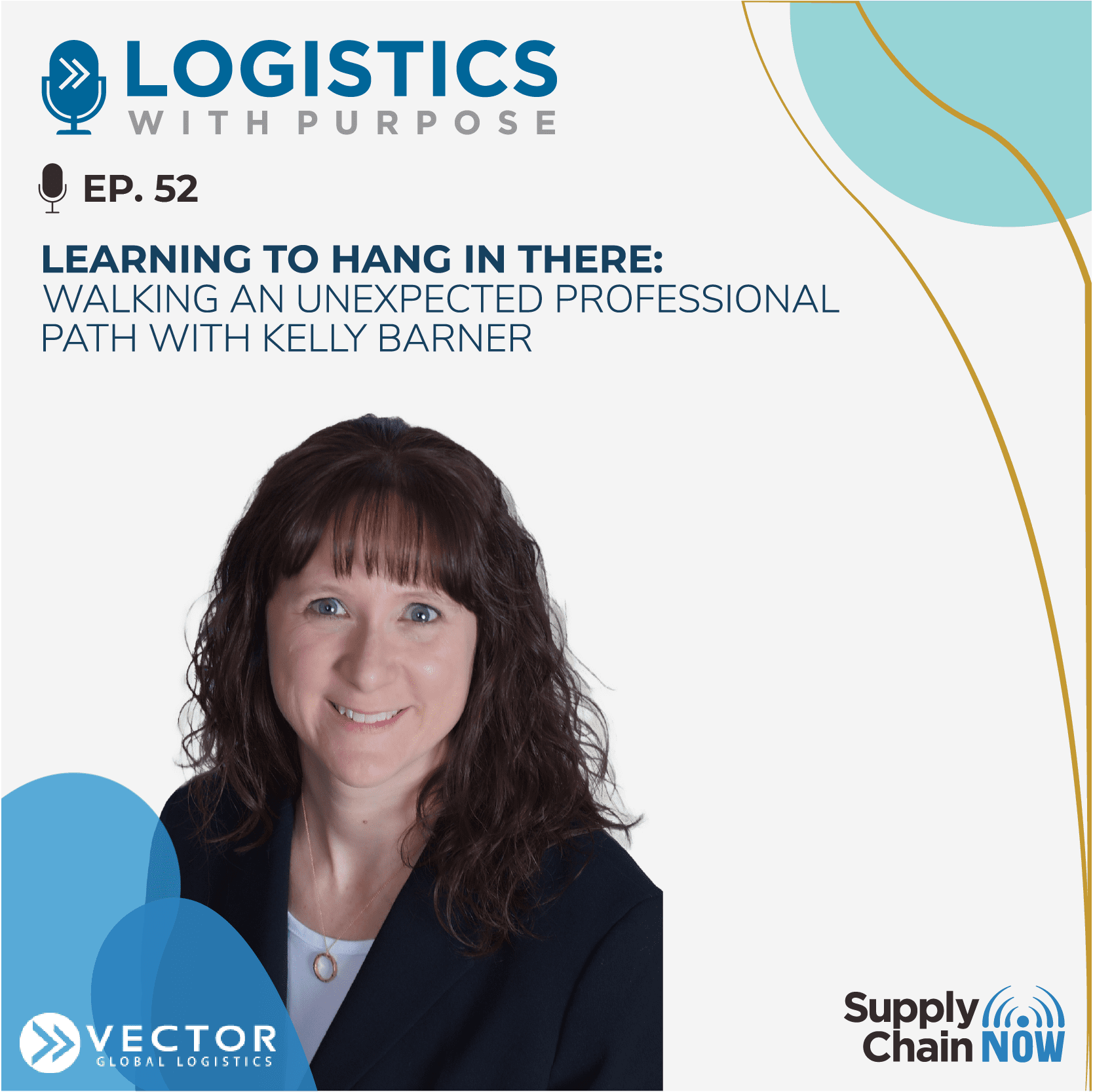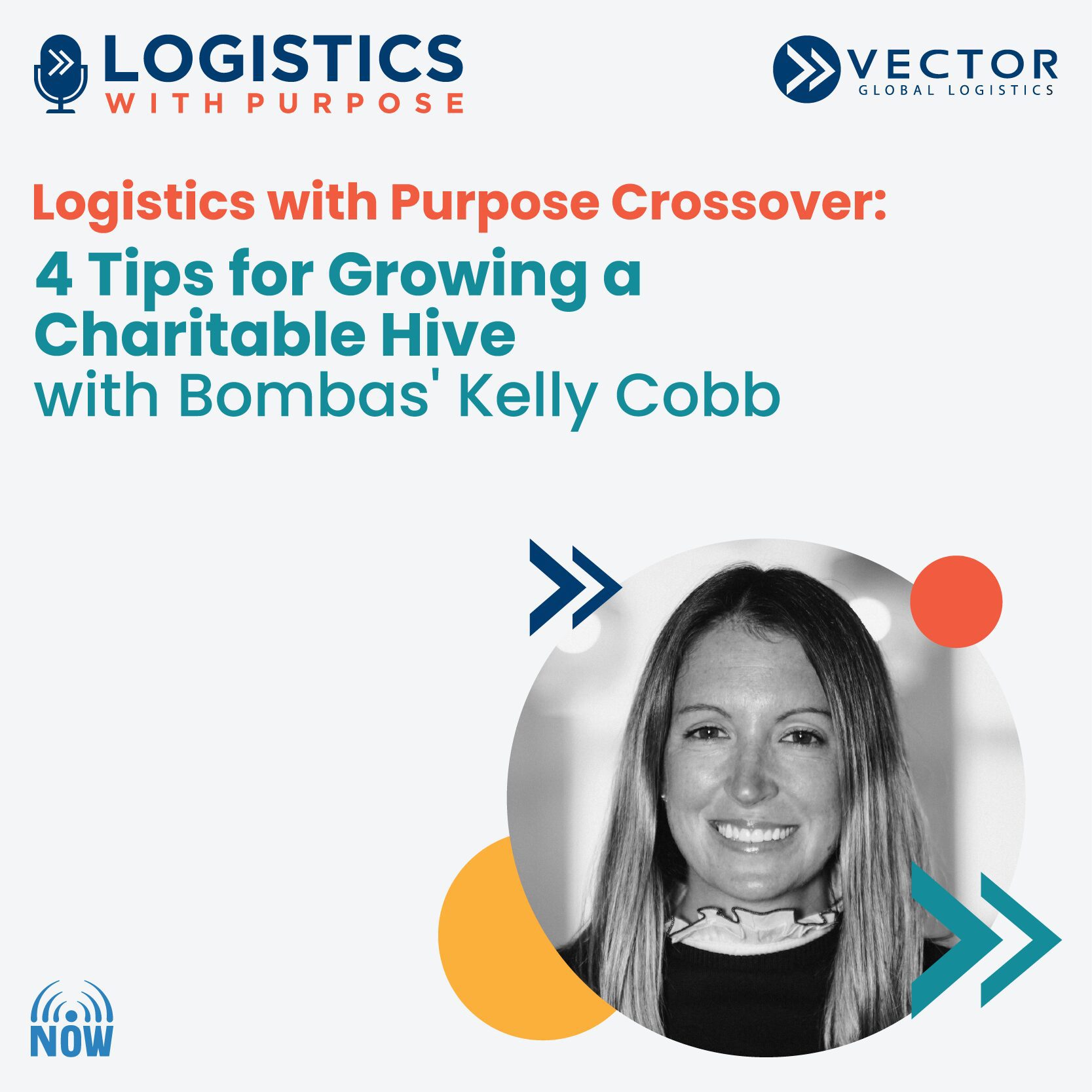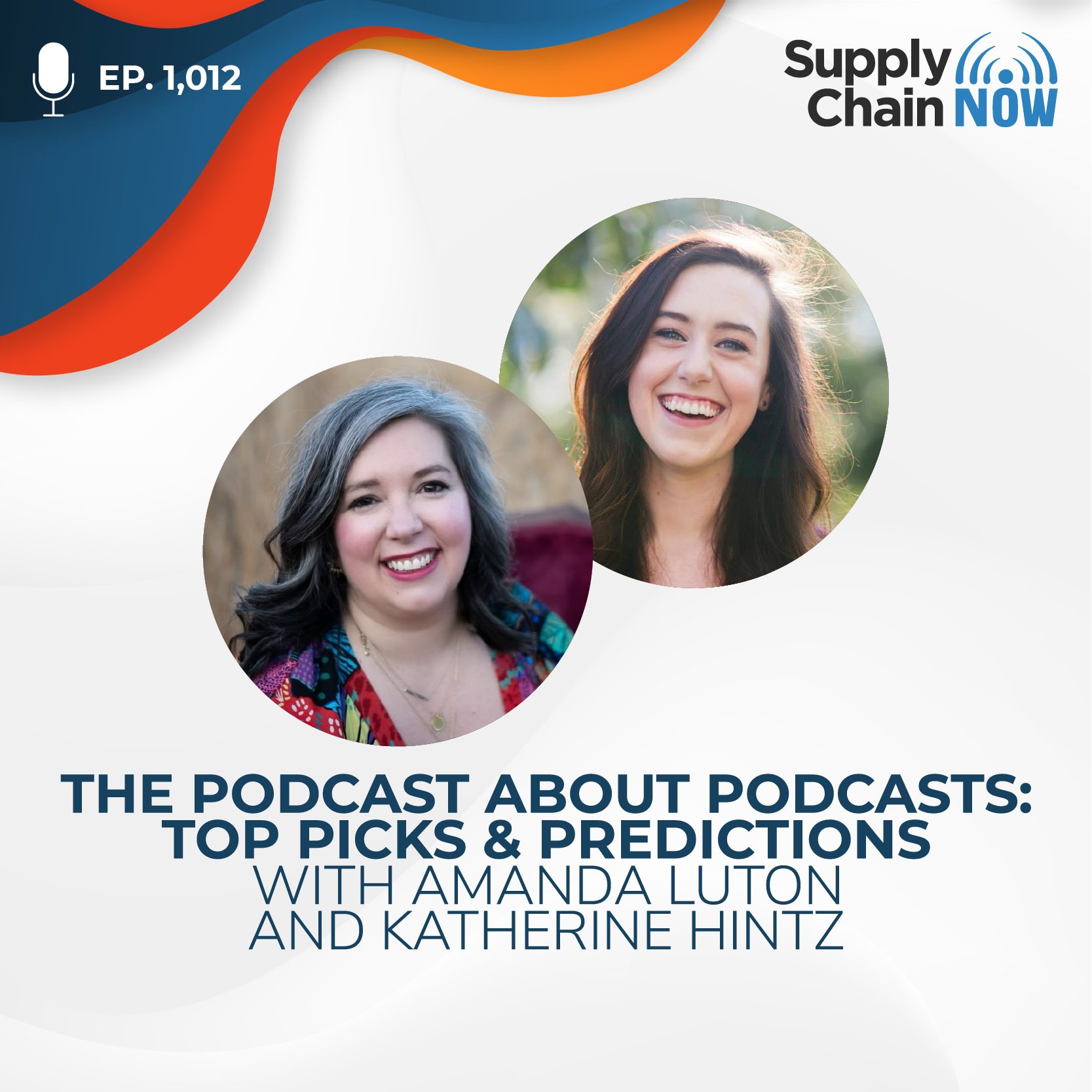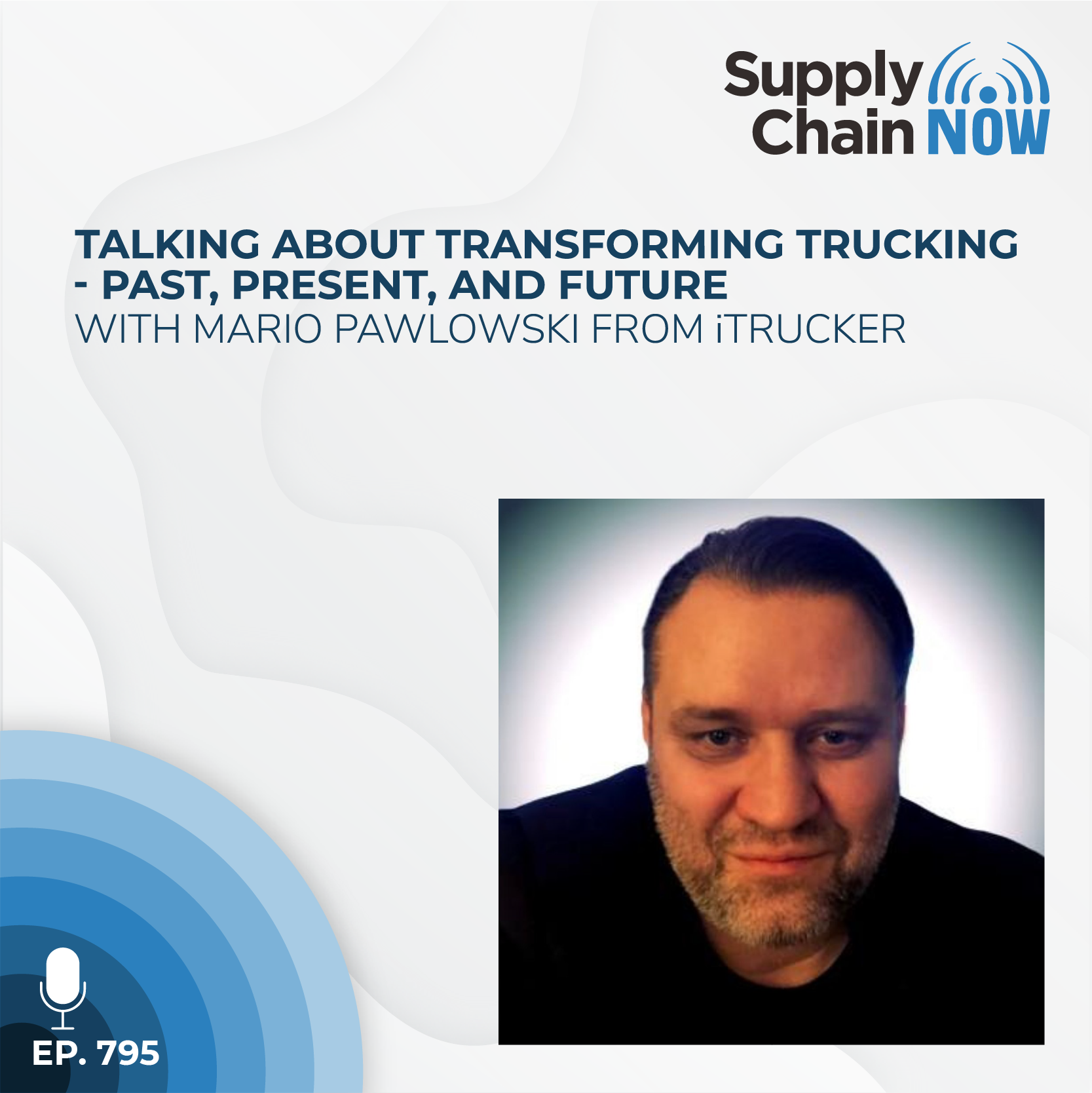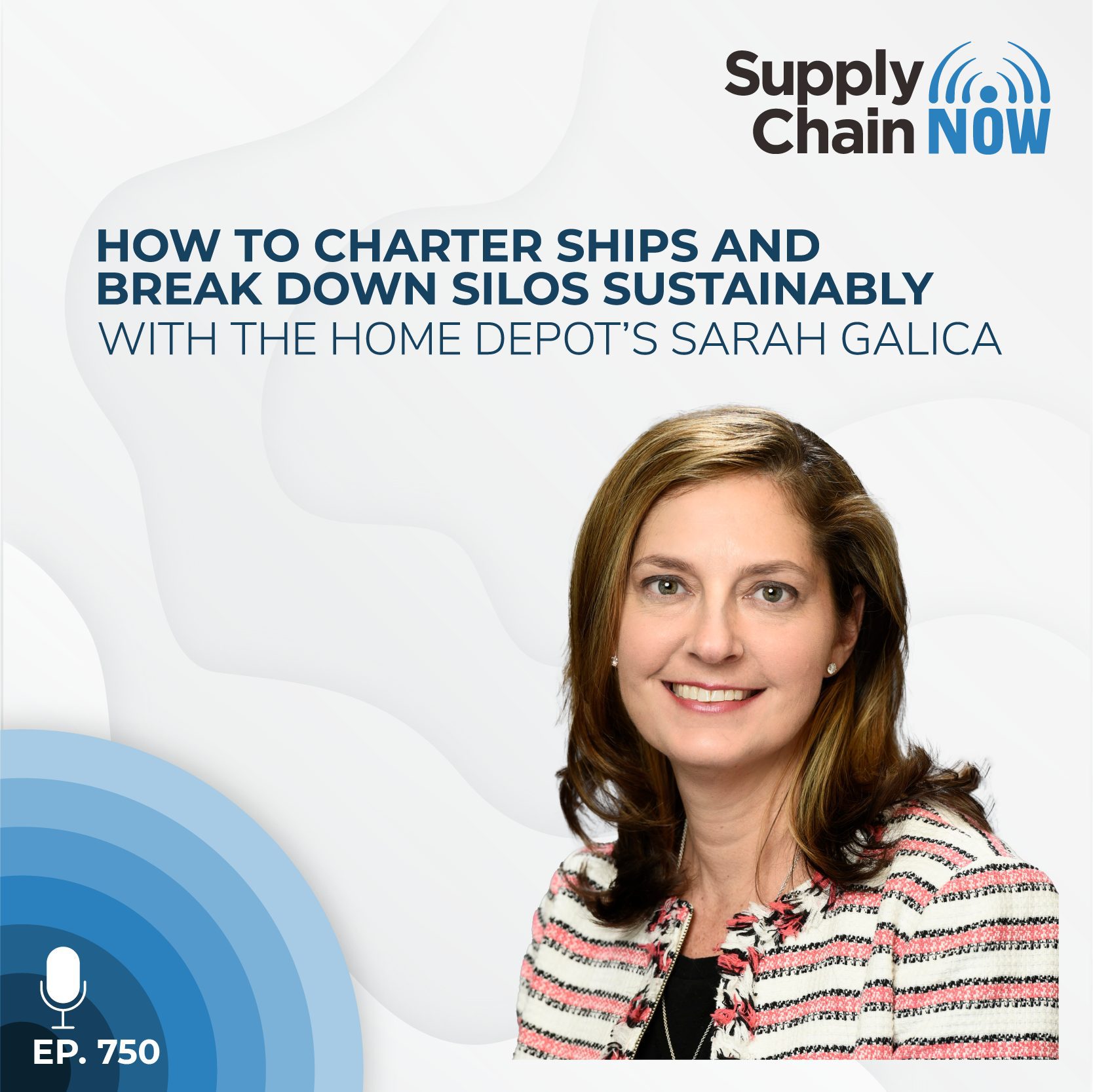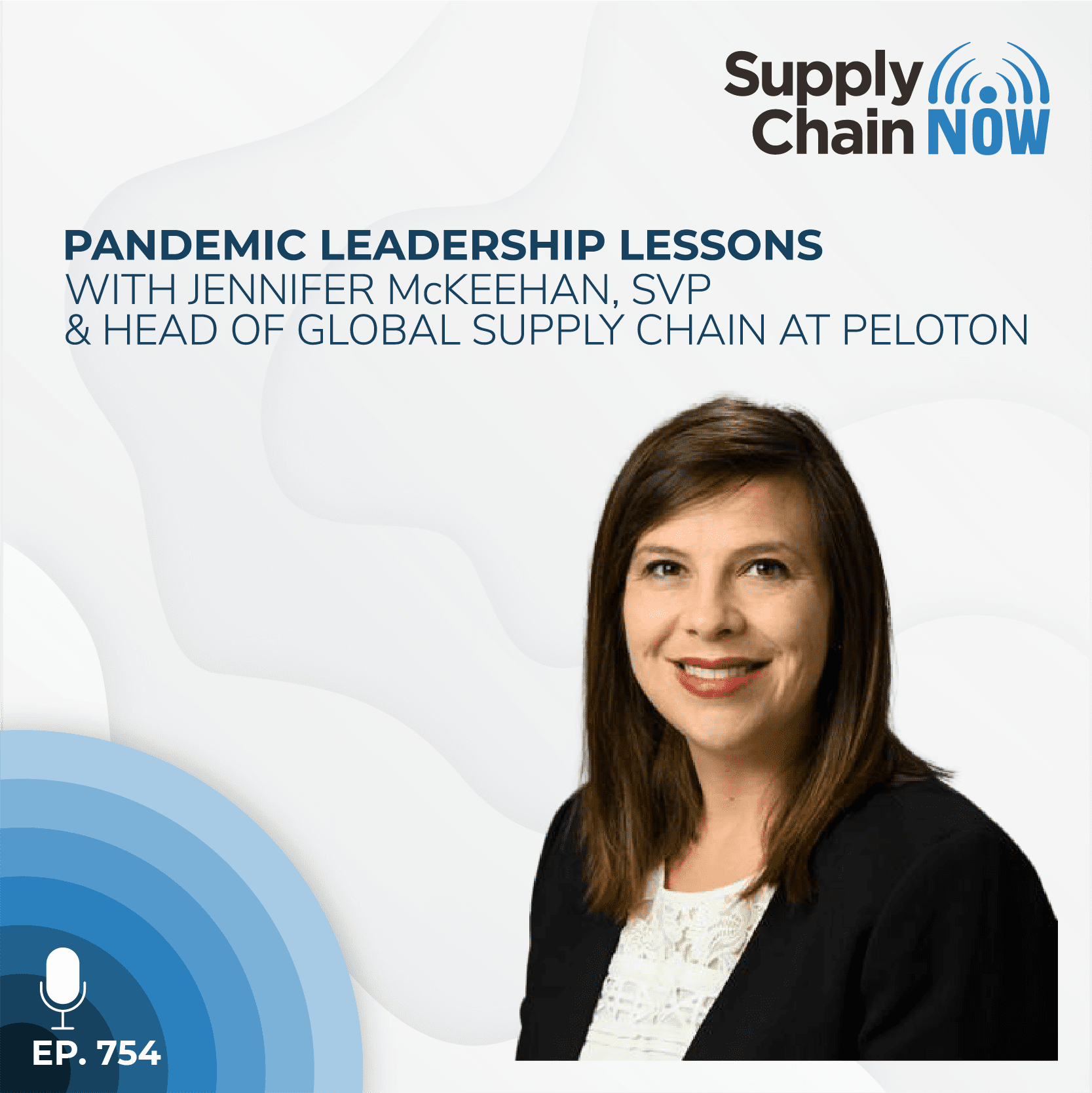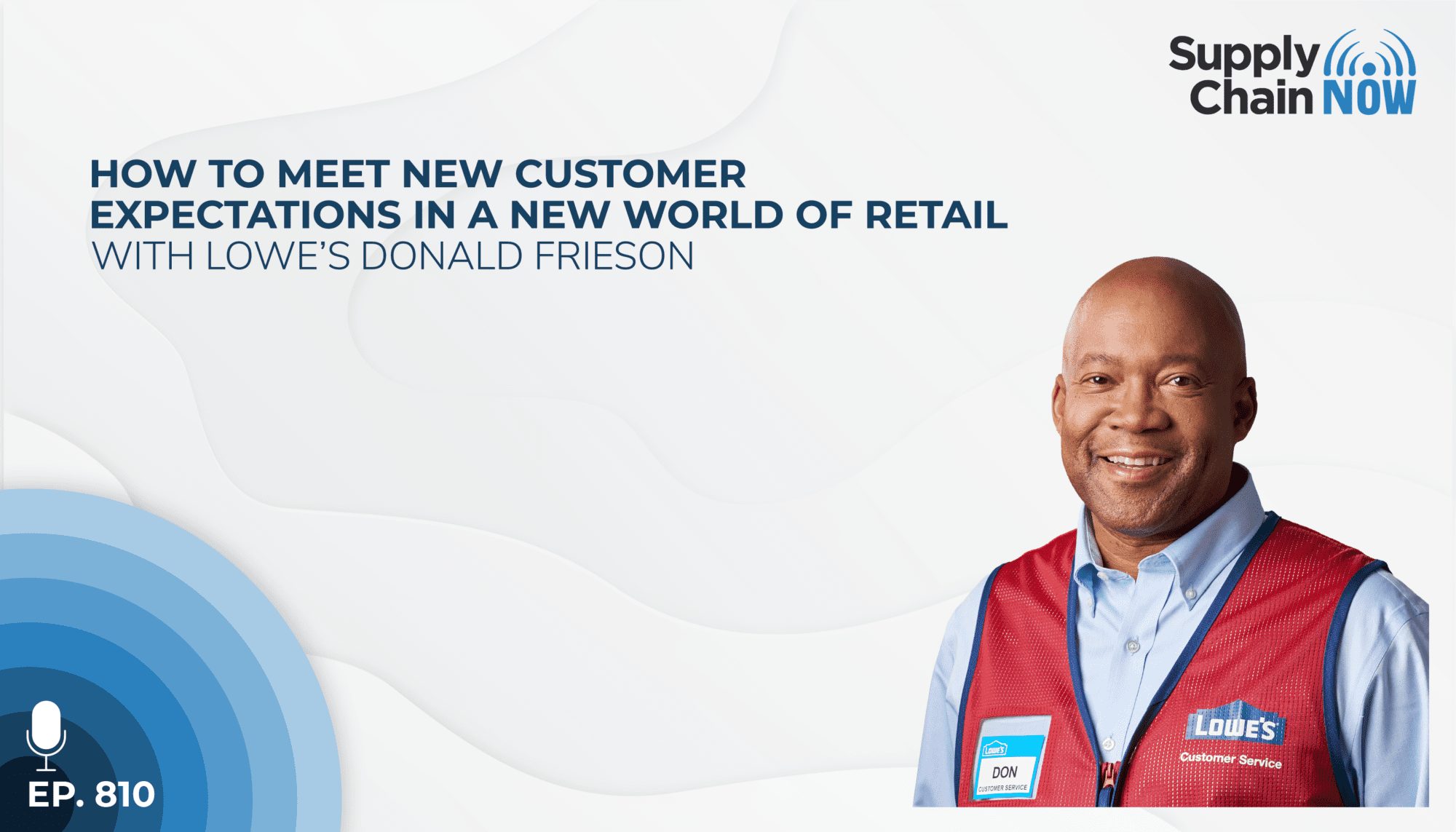
[We] seek out that [in-store] customer to understand about the project they're working on. So it's more than just, hello, how are you? It's really getting into a deep understanding of why they're there, because look, they're spending dollars on their home. And that is the largest investment any of us will make.
-Don Frieson, Lowe's
Episode Summary
Retail is local — but it’s also home to an increasingly global set of fulfillment and distribution requirements (and challenges). Meanwhile, customer expectations for seamless omnichannel experiences and two-day delivery keep the pressure set on “high.” But good news: in this episode, Executive Vice President of Supply Chain for Lowe’s, Donald Frieson, joins Scott and Greg to cut through the complexity and share the company’s inspiring trajectory through pandemic challenges and into a retail future focused squarely on the customer. Learn more about the company’s Hometown 100 mission, get great advice if you’re an aspiring supply chain professional – and learn more about the dedicated, resourceful and resilient teams making home improvement a reality through thick and thin across the country.
Episode Transcript
Intro/Outro (00:03):
Welcome to Supply Chain Now, the voice of global supply chain. Supply Chain Now focuses on the best in the business for our worldwide audience, the people, the technologies, the best practices, and today’s critical issues, the challenges, and opportunities. Stay tuned to hear from those making global business happen right here on Supply Chain Now.
Scott Luton (00:30):
Hey. Good morning, everybody. Scott Luton and Greg White here with you on Supply Chain Now. Welcome to today’s show. Gregory, how are we doing?
Greg White (00:38):
I’m doing great. How do you like our new frames here? Beautiful isn’t it?
Scott Luton (00:42):
I’m a big fan. I’m a big fan. Of course, I’m a big Greg White fan and that kind of spills over to wherever you’re broadcasting from. But we’ve got a big show lined up today. Big guest. Greg, our featured guest is with one of the world’s most admired companies where he is responsible for the company’s distribution centers, logistics, transportation, and delivery services. So, Greg, we’re talking about Lowe’s and it’s 2,200 plus stores, no small feat, right?
Greg White (01:11):
Yeah. No kidding. I mean, they’ve been growing and doing great things in supply chain. I have actually had some interactions with them many years ago, and they have been working on their supply chain excellence for a long, long time. And I can verify as a customer that they have done a great job.
Scott Luton (01:31):
That makes two of us. And looking forward to kind of diving into some of the leadership and POV behind all of that. So, on that note, I want to formally welcome in Mr. Don Frieson, Executive Vice-President of Supply Chain with Lowe’s.
Don Frieson (01:48):
Hey. Good morning, Scott. Good morning, Greg.
Greg White (01:51):
Hey, Don. How are you?
Scott Luton (01:51):
Good morning, Don. How are you doing?
Don Frieson (01:54):
I’m doing well this morning. It’s just great to be here with you guys.
Scott Luton (01:59):
We are too. You know, we’ve really enjoyed the pre-show conversation. As Greg has already kind of let the cat out of the bag, we’re already fans and customers of Lowe’s and I’ve had a lot of great experiences. So, we’re looking forward as fellow supply chain geeks to kind of dive into some of what goes on behind the scenes.
Don Frieson (02:18):
Well, we’re excited to just talk a little bit about what’s going on in the world of supply chain and, specifically, all the great things that our supply chain associates are doing to move the business forward.
Scott Luton (02:30):
Love it. And that’s what they do. People do certainly move our global supply chains forward, global retail organizations forward, and take care of the consumers. But before we get to that, before we get to all that heavy lifting, we talk about supply chain and Lowe’s and beyond, let’s get to know Don Frieson a little bit better. So, Don, tell us where did you grow up?
Don Frieson (02:51):
So, I grew up in Memphis, Tennessee, right on Mississippi Delta, right on the Mississippi River. Fun fact, I have an identical twin brother. I’m Don. He’s Ron. So, imagine growing up with an identical twin. So, there’s certain things I can’t talk about, but other than that, a lot of fun.
Greg White (03:14):
Leave the minds to wonder.
Don Frieson (03:16):
Right. Exactly. Exactly. But – go ahead.
Scott Luton (03:22):
So, Don and Ron Frieson, were folks always want to know what the Frieson Brothers were up to as you were growing up?
Don Frieson (03:31):
Always. Absolutely always. But it’s a good thing my brother’s a really good guy. And I can remember years ago, we actually lived in the same city for a while in Atlanta and he had been there for some time. And when I moved to Atlanta, he says, “I need you to do two things for me, Brother.” I said, “What’s that?” He says, “I need you to smile and I need you to say hello to everybody.” Because oftentimes people thought I was Ron, so it’s been fascinating.
Greg White (04:03):
So, you had to carry his good name forward.
Don Frieson (04:06):
Exactly. Exactly.
Scott Luton (04:08):
I love that. All right. One final question, where is Ron today? What part of the world does he live in?
Don Frieson (04:14):
Ron is in Atlanta, Georgia. He’s working with Children’s Healthcare of Atlanta. He’s their chief operating officer there. So, he’s doing a lot of good things, particularly during this period when healthcare is so premier in our country.
Scott Luton (04:32):
Okay. Wow. Man, the Frieson Brothers are getting stuff done. All right. One final note about growing up in Memphis, you know, we got to talk about food just a second. When you look back at your upbringing and you think about food that was an integral part of it, what’s a dish that comes to mind, Don?
Don Frieson (04:51):
Come on. Come on. Memphis? Memphis barbecue.
Greg White (04:54):
Barbecue.
Don Frieson (04:54):
You got to know it’s Memphis barbecue.
Scott Luton (04:58):
That’s what I thought. That’s what I thought. I was going to let you say it though. And the sauce in Memphis. Or is there no sauce, it’s all smoke?
Don Frieson (05:05):
Oh. No. No. There’s sauce. There’s sauce. And let me give all your viewers and listeners a tip, if you’re in Memphis, you have to have Cozy Corner BBQ. You talk about the best barbecue, go to Cozy Corner.
Greg White (05:19):
I have heard that.
Scott Luton (05:24):
Man, we’ve already tackled my checklist.
Greg White (05:28):
This is an unpaid endorsement by Don Frieson.
Scott Luton (05:30):
No kidding.
Don Frieson (05:31):
Unpaid. Unpaid.
Scott Luton (05:33):
Cozy Corner. So, folks, listen to that, it comes from folks that know. One of our favorite topics to talk about, Greg, barbecue. But let’s kind of switch over to the professional side of Don’s journey. So, Don, as you alluded to pre-show, we’re all big supply chain nerds. We love the craft, as Greg and and others have called it. We love the industry. We love the people that make it happen. All the innovation and technology that’s revolutionized in many ways. But why did supply chain stick out and appeal to you? And where’d you get your start?
Don Frieson (06:06):
Yeah. Gosh, it’s been a lifelong journey. I’m almost afraid to tell you how long I’ve been in this game, 30 some odd years, and emphasis on the some odd. I actually started in college. I started my career as a package car helper my sophomore year of college with United Parcel Service. And, gosh, what a great job for a college student. I got hired on for the holidays to jump off on one end of the street, wheel packages, deliver them, and jump on. And fortunate for me, I’d done a pretty good job during that period and I was called back in January. And I started to work in the hub on a variety of different roles, from car washer to preload.
Don Frieson (06:59):
And, you know, it was just something about that. Now, this was before deregulation, so, again, I’m showing my age here. And I had an opportunity to work with the over the road drivers by putting in their radios, hooking up their tractor to the trailer, and preparing for them to go out for the day. And just something that, boy, I looked at that and said, “Man, this is pretty neat.” And it just became a passion for me. Not very many years later upon graduation, I went to work for a very large truckload carrier, Schneider National Carriers, and the journey then and earnings began.
Scott Luton (07:44):
So, one quick follow up question –
Greg White (07:46):
Did you go to school for – yeah. Go ahead. You go, Scott.
Scott Luton (07:47):
No. I like that. I like yours better, Greg.
Don Frieson (07:49):
I was an operations management major. In that time, supply chain wasn’t necessarily a big major like it is today. But, clearly, that’s where my interest was.
Greg White (08:09):
And where was that that you went to school?
Don Frieson (08:13):
The University of Tennessee.
Greg White (08:17):
I wanted to make sure you got the opportunity to say that, Don.
Don Frieson (08:21):
Absolutely. Haslam School of Business.
Scott Luton (08:25):
Well, as we all know, that’s become one of the go-to universities for supply chain management and folks that want to break out into the industry. One other quick follow up question, you talked about your first role there kind of getting on with UPS during the holidays, has that memory of all that hard work during a special time of a year for so many and the people that enabled that to take place, has that stuck with you throughout your career?
Don Frieson (08:53):
It absolutely has, Scott. One of the things that resonates then and resonates now is the service piece of what we do in supply chain, you know, going to customer’s home, whether they were signing for packages or not, and understanding that they were waiting on that, and it was a timely factor with it. And then, of course, working with a company like UPS at the time where precision was everything. And so, it just became part of, boy, what this piece of business is all about, it’s about being efficient. It’s about ensuring that you’re doing the best you can at the lowest cost possible while providing the highest service levels. And that has been a cornerstone for me of growing in this supply chain world.
Scott Luton (09:46):
Wow. What a foundation. I’m about to turn it over to Greg here as we kind of dive more into Lowe’s and what you’re up to now. But before we get there, I think one of the really helpful piece of perspective and context is, you know, after you graduated University of Tennessee and what other supply chain roles that you moved into that really shaped your worldview and your leadership experience, tell us a little more there.
Don Frieson (10:11):
Look, I’ve been so fortunate in my career. A very long career with Schneider National Carriers and really cut my teeth in the trucking side of things. But then, I was recruited to Walmart stores, where I had an opportunity to lead the entire private truck fleet at Walmart. And then, moving into core distribution, where I had responsibility for a series of warehouses to include ambient, non-ambient. And then, actually, for a while moved into the store side of the business. And so, I really got to see supply chain from a different perspective. Even if you think about the back room of a retail establishment and all the supply chain principles that are within the back room and flow into the sales floor.
Don Frieson (11:01):
But probably one of the life changing and career changing opportunities came in an assignment that I was given in South Africa, where I spent two years in Sub-Saharan South Africa with the acquisition at the time Walmart has made as the chief integration officer. But having the opportunities to support the build out of a supply chain network within South Africa. And when you think about that, not nearly as advanced as what you see in the U.S., and so the difficulty, whether it was around the highway systems or connecting warehouses, just a really great opportunity to see something different and to understand that there’s more than one way in which to, as I say, skin the cat. So, what a wonderful experience that was for me.
Scott Luton (11:57):
Wow. Greg, there’s so much there to follow up on, right?
Greg White (12:01):
There is. We’ve talked a lot about Africa and the difficulties there. I mean, there’s so many borders, the infrastructure is so outdated. We talk a lot about infrastructure in the states, but we have roads, that’s a good thing. And there are just a lot of difficulties there. So, I’m sure that was very striking. Probably something you carry with you every day as you work in a relatively strong infrastructure environment.
Don Frieson (12:31):
Well, what it tells me is that, here, we can overcome anything. You know, when you think about a breakdown here, we think about it in terms of hours, not days. And if you were where you have poor infrastructure, you’re talking days and the delays could be massive.
Greg White (12:50):
Yeah. We’re just leaving it on the side of the road.
Don Frieson (12:51):
That’s exactly right. And hoping that it’s there when you get back. So, yeah, just a totally different environment. But, again, really educational.
Scott Luton (13:01):
One quick comment, Greg and Don, just to elaborate here. You know, Don, we do a series here at Supply Chain Now that focuses on supply chain leadership across Africa with Jenny Froome and our friends at SAPICS. And we had on several supply chain practitioners from Africa at the earliest parts of the vaccine distribution. And they were telling us that, literally, here, we think about strengthening bridges that cross all sorts of things here in the states. They were talking about how there are certain aspects of rivers and streams where there are no bridges and they got to find a way to, you know, build those bridges.
Greg White (13:35):
For them.
Scott Luton (13:36):
Right. That’s right, Greg. It’s eye opening. It really is.
Don Frieson (13:42):
It’s a different environment for sure.
Greg White (13:45):
That is cool. It’s rare to have that kind of an impact on your professional career. So, that’s really impressive. And I’m glad to see you got to take some really cool stuff away from that. So, now, in your current role, Don, supply chain is really broad. It sounds like the trucking aspect of it was an initial focus for you. But what is your role as executive VP of supply chain? I mean, is it more broad than trucking now? It sounds like you got into distribution as well.
Don Frieson (14:18):
Oh, absolutely. Absolutely. And you guys know from your experiences and a lot of your past guests, supply chain for different companies mean different things. And there are different functions that are within supply chain. Here at Lowe’s when we talk about supply chain, we talk not only about the distribution aspect. So, all of our distribution centers, whether they be regional distribution centers, flatbed distribution centers, are very important for us given the commodities that we carry in our store, our coastal holding facilities, because we are the fourth largest importer from a retail perspective in the U.S. So, those facilities are extremely important to us. We also have bulk distribution centers as well as fulfillment centers. And we’ll talk a little bit later about our omnichannel journey, it’s really important to us.
Don Frieson (15:12):
But also included in that for us are our last mile delivery services. So, if you think about deliveries to home – fun fact, we have already cress – our fiscal year ends January 31st – over 12 million deliveries to homes this year. Twelve million. And so, that’s a lot of delivery capacity that we use on a year-to-year basis. So, it’s really, really, really kind of cool to see that coming to fruition.
Don Frieson (15:43):
But we also have network planning and optimization, which is really important when we think about flow into our distribution centers from our inventory replenishment and planning teams. Within our supply chain, we have an operation support area, which is really the backbone that helps us understand our processes. We think in terms of people, process, and technology within our business. And we have a group that’s tailored to look at our business that way to make continuous improvements throughout our business each and every day. So, it’s very important.
Don Frieson (16:20):
We have an engineering arm within our business that really looks at the technology and how we move goods through. And so, our engineers, you know, you think about normal industrial engineers doing time and motion studies and things of that sort, but we’re also thinking about how do we keep our associates safe on a day-to-day basis, particularly within our distribution nodes. And, clearly, we have a cross dock network, which is facilitating a lot of our home deliveries now. And that cross dock network, quite frankly, is something that we’re continuing to grow out. We just started it, quite frankly, in earnest this past year. But by the end of 2022, half of our stores will be serviced through this network. And so, it’s a really big initiative for us. And so, that, in a nutshell, is who we are from a supply chain perspective.
Greg White (17:19):
That’s a big nutshell. I mean, I think that what that really does for me is it really enunciates just how complex supply chain is. I mean, think about all those things, some of which you have been doing for a long time, some of them are relatively new, but all of them expanding as you continue to grow the organization and as consumer demand, as you spoke to in retail, continues to evolve. So, it’s really interesting.
Greg White (17:51):
And it makes me ask this question, which I always think about in retail and that is, you all have made such a huge investment in supply chain and you continue to do so. What, so many years ago, triggered that investment that so many retailers are just starting to make now or in the last 18, 24 months because of crisis? What about your approach or your company’s culture philosophy had you guys getting so advanced with supply chain so much earlier than so many retailers?
Don Frieson (18:31):
Well, I don’t know that we always view it that we were so much earlier. What I will tell you, Greg, is that, omnichannel retail has really changed the way supply chain has to operate. Fulfillment is not the same as distribution. And when you start to think about how a customer wants to be served, it was really important that we take a step back and we take a look at – or took a look – rather – at how are we serving the ultimate customers. Our stores and our associates in our stores every day do a fantastic job of serving the customer.
Don Frieson (19:11):
And if you go back just four short years ago, everything that we delivered actually got delivered from a store. The store was the center of everything. And it’s just so much complexity, not only on the front end of serving the customer and ensuring that the store is in stock, but that back end work, whether it was around receiving, getting the deliveries out of the back door, the storage of goods, store level. And so, it was our goal to take some of that complexity out of our stores.
Don Frieson (19:47):
And so, it became very important as we think about it from an omnichannel perspective, if a customer orders, they don’t really care if it’s coming out of the back of the store or a warehouse or a cross dock. And what we have to do is look at it and really take a look at our cost and understand how can we best serve that customer while simultaneously taking that complexity out of the back of the store. And so, that’s a transformation journey that we’re on. It’s really about contribution margin, understand how do you do it – and I used this word earlier – most efficiently. For us, our associates and our customers. And so, that indeed is the journey that we’re on. And you guys know like I know, that journey is never done and it’s never over.
Scott Luton (20:39):
Never. No finish line.
Don Frieson (20:40):
No. None whatsoever. It’s just milestones that you hit and you go for the next milestone in that journey.
Scott Luton (20:50):
So, I’m going to follow up on that – go ahead. You got to tell us.
Greg White (20:51):
Okay. You follow up first.
Scott Luton (20:57):
No. Because I’m about to shift gears.
Greg White (20:58):
I got to tell you, Don, I’ve worked in the industry for a long time as a practitioner and as a service provider to technology. And I have seen so much advancement in hardware and automotive and other relatively low margin, high volume industries. I mean, I think it’s every day for you – and this is the term we use, Don – because you’ve been with Lowe’s for more than two decades – How about that? That way you don’t give yourself up – because you’ve been with Lowe’s so long, it’s so matter of fact, but I have to tell you it’s very exceptional the level of advancement that you all have brought.
Greg White (21:49):
I can even compare it to other hardware or home improvement chains and organizations, both chains and dealer networks and that sort of thing. And I think what you’re doing is very, very advanced. It may seem a really standard path for you, but it’s a model for other companies to look to. And, you know, not that you need to congratulate yourself, but I would like to congratulate you because you have done so much so early and prior to the crisis, and I think that’s really commendable. And I think it’s a model that other companies could look at and really benefit themselves, whether it’s omnichannel or whether it’s just general store distribution, or even bulk goods distribution, I think there’s a lot to be proud of there.
Don Frieson (22:43):
First of all, thanks for the compliment. But the real compliment goes to our people. Our people – we have a term we use here – it’s all in. And we work across every area of the business seamlessly. You know, this leadership team is just absolutely incredible in terms of how we work together. I give a special credit, whether it’s our operations team, our merchandise team, our technology teams, because we all think about the customer and understanding that customer journey.
Don Frieson (23:23):
But not necessarily second to that, I’ll say in addition to that, what’s the associate journey like and what are the things that our folks that are in the trenches day-to-day, whether they’re in our stores or our distribution centers, what are they faced with? And we often talk about, we’ve got to simplify, simplify, simplify. And so, if you think about it, what we try to do is make everything as simple as operating an iPhone. And we’re not there yet. We want it intuitive. And we think if we can get our operations to that level of simplicity, then things go really well. And that is the goal for us.
Scott Luton (24:06):
I love that. I love that focus on the voice of the employee and the employee experience. And, clearly, beyond the conversation we’re having here with Don, if you haven’t talked to those associates while they’re in the store, it comes out in those conversations.
Scott Luton (24:21):
I want to drill in a little bit into this omnichannel and what helps make that happen to meet the consumers where they want to be met. Because to your point, Don, most consumers don’t care about where it’s coming from and they care about price and delivery and quality, some combination of those three things. So, fulfillment, you mentioned that earlier, this is a little bit data figure but I think it’s still remarkable. In early March 2021, Lowe’s shared that fulfillment execution had improved 6X over March 2020. So, how does that happen at Lowe’s?
Don Frieson (25:03):
It happens by having a CEO that allows you to make investments in your business. If you go back 18 months ago, we had one fulfillment center. One. And we knew we had to accelerate that. Today, we have five fulfillment centers, and that has made the biggest difference in securing what I call a minimum of two day service across the U.S., which is really important. And you guys know like I know, fulfillment rate or time is really important to a customer. When they place an order, they want to know first thing, “When will I get it?” And then, fulfilling that promise. So, if you tell them it’s two days, it’ll take two days. But you better do it in two days. And, I mean, we often talk about next day, same day, and you obviously have to play in that arena because that’s very important for some of our customers. But just be reliable at what you say you’re going to do.
Don Frieson (26:10):
And that’s what our teams are really focused on when we think about parcel fulfillment or even LTL fulfillment because a lot of things that we carry are not parcel size of parcel eligible. They’re ordering larger goods. Just get it there and get it there on time. And so, that’s the focus of the team. We’ve also incorporated some of the larger moves. So, we’ve taken our core distribution network, like our regional distribution centers. We’ve enabled LTL capabilities to customer out of those facilities. And we have bulk distribution centers where we now have our much larger good. If you think about appliances, tub surrounds, grills, riding mowers, things that people don’t necessarily have the capability to take home, but they would like to have it delivered, we’re using those facilities like we never have in an effort to get it to the customer. So, it continues to be a journey. I don’t think we’re great at it, but I think we are improving at it.
Scott Luton (27:16):
So, Don, you might find some argument there and disagreement amongst here and other fans of Lowe’s out there. One quick observation and then I want to kind of go broader beyond Lowe’s along the lines of what we’re talking about. We’ve made this observation and it’s a very simple observation, but it boggles my mind. We placed orders these days largely on when do we get it versus – what, Greg? – ten years ago, maybe, where that was largely, for the most part, a big afterthought. It blows my mind just how far global supply chain and what it does to power and optimize that customer experience has come. Greg, your quick response. And I’m going to dive a little deeper with Don in that area.
Greg White (28:09):
Yeah. Well, I mean, I’ve always watched how long it gets here. Being a retailer, the reliability that Don spoke to is really, really important. I would rather have a longer but reliable lead time than a shorter one. So, as a consumer, I played this game where I wouldn’t pay for the quick delivery and realized that even though they promised five to seven days, they’d still get it there in three to five. Sorry, Don. I played that on you guys just like everybody else. But the truth is, it’s been a nascent want of consumers. We’ve always wanted it right now. That’s why we had stores. Those times when we lived in a remote place – like some of us do now – and you just can’t run out to a store, it’s 45 minutes away or whatever it is, that’s when things like delivery become important. But the desire to get it immediately is still there.
Greg White (29:11):
And I think retailers have recognized that more than driven that. And certain retailers have enabled that, which has caused a demand on the rest of retailers to be able to do so. But, yeah, I think the consumer wants what they want. They want it now. They want it at the price. They want it. And they want it in good condition and in fold, Don, in your point. And always have, but we’ve had to settle in the past. Now we don’t have to settle. And it’s great to see organizations stepping up to that.
Don Frieson (29:43):
Well, you know like I know, consumer sentiment is that every year the expectations get higher and higher relative to how they want their goods and whether they’re ordering from an iPhone, the laptop, any mobile device. It’s just that immediacy that is part of our society today. And if you aren’t in that game, then you are not being competitive. And I think the real key is that if you want to be competitive then you just got to jump in there and understand how do you execute against that.
Don Frieson (30:27):
I think the biggest thing for most companies is how do you do it in a profitable way? Because at the end of the day, you can lose a lot of money if you don’t really think through what node does this item need to be in, in an effort to be next day. Do I deliver next day out of my store. Because out of 2,200 units across the U.S. and Canada, am I closer to or within that zip code? Are there certain items that you offer next day, same day on, that makes sense for you? And the contribution margin works versus offering a next day and I have to try to ship it 500 plus miles? The math just doesn’t work. And so, it’s a constant looking at the algorithms and understanding your sourcing engines and having the right merchandise in the right place that’s going to fulfill the customer.
Don Frieson (31:23):
And when you think about technology, let’s face it, Greg, years ago, we didn’t talk about AI. We didn’t talk about machine learning.
Greg White (31:33):
AI was Actual Intelligence, Don. Not artificial.
Don Frieson (31:38):
Exactly. And these days, it’s pulling all that data together to understand what shifts with what, in most cases. And how do you create those baskets in terms of where you put your merchandise in order to ship it. So, all that data and pulling it together, which, again, is something that’s relatively new to everyone. And there are a lot of companies out there that can help you do that. But at the end of the day, that’s how you have to lean in, in an effort to meet the customer’s expectation.
Scott Luton (32:15):
Okay. So, you’ve essentially, to a large degree, spoke to the next question I’m going to ask you. But one quick comment, so I guess y’all cannot relate to me as a kid when I was placing an order for cassettes and comic books. And by the time they got here eight months later, it seemed, I’d forgotten I’ve even ordered them. Maybe I’m the only person in that boat.
Greg White (32:36):
The only thing that’s changed there, Scott, is that that happens within three days now. People forgotten that they ordered within three days instead of eight months.
Scott Luton (32:43):
The power of supply chain. Kidding aside, Don, I really appreciate what you shared just a moment ago because that leads to you’re already making the case, as we all know, about that critical role that supply chain plays in, not just optimizing customer experience – the CX movement that’s been taking place for years now. It just called maybe something different – but that’s what powers this modern retail environment. So, speak a little bit more to that, Don, if you would.
Don Frieson (33:15):
Yeah. So, for us, when we think about CSAT scores, Customer Satisfaction Scores, our likelihood to recommend or whatever measurements that companies use today, that really becomes the basis of how you start to set your service offering. Because it’s really, really, really important that when that customer has that great experience with you, they come back and they tell other people. Now, the other side of that is, when they don’t have a great customer experience, they also tell others. And so, that’s better than any advertising that you could have. And so, it is really important for us. And we talk about it on the delivery side of our business all the time, you got to treat every delivery like it’s the first delivery or treat it like it’s the last. It’s really important that we execute and execute flawlessly because it means so much to the customer.
Don Frieson (34:13):
And so, as we take a look, whether it’s inside of our stores, you know, we operate on what we call SMART Customer Service. That S starts for seek, we are looking for a customer in that store. So, don’t be so dependent on doing task because the customer is the reason why we’re there. And so, seek out that customer, understand more about the project that they’re working on, what exactly. So, it’s more than just, “Hello. How are you?” It’s really getting into a deep understanding of why they’re there. Because, look, they’re spending dollars on their home. And that is the largest investment that any of us will make. And it’s so near and dear to you. So, whether it’s a small project, like I’m hanging pictures and I need the right size picture hangers. Or I’m doing a bathroom remodel and I really want to know how to lay this tile if I’m trying to do it myself. Our teams have to lean in to ensure that we’re meeting that customer’s needs. And so, those are the things, when you start thinking about customer satisfaction and CX, it is so important that you become part of their project.
Scott Luton (35:28):
I love that, Don. And just a side note, my dear lovely wife, Amanda, would not let me touch any of those two projects you mentioned or much less anything else. Holes and walls, wrong measurements, that’s what I’ve known for around here. All right.
Scott Luton (35:42):
So, Greg, there’s so much. This is kind of like a MasterClass. Every once in a while we have a MasterClass in supply chain. Don has given us that here. Where are we going next, Gregory?
Greg White (35:54):
Well, I want to know since you’ve been in the industry and particularly at Lowe’s for more than two decades –
Don Frieson (36:04):
Well, let me clarify because I’ve been in the industry a long time. We had a Leadership Team Refresh, approximately, three-and-a-half years ago, and I actually came aboard as part of that Leadership Team Refresh. So, I was able to take years and years of experience and come into Lowe’s. And quite frankly, love what I saw when I got here, particularly around the folks in supply chain. I use three words, and this is this is how I describe our teams, dedicated, resourceful, and resilient. And that’s never been more true since the pandemic. And that’s the way our frontline associates approach this business each and every day, as well as our store support associates.
Don Frieson (36:57):
But what’s been great is that we’ve been able to look at where was the business and where did the business need to go. And as we’ve come up with what we call our roadmap to excellence going from good to great – and you guys know that story very well for a lot of other companies – that’s the journey that we’re on. And so, it’s been really, really fun to take our core team that was here and, to your point, Greg, had done this for so many years. And really the evolution of Lowe’s supply chain and where we are in the industry and take some leaders that we’ve brought in over the course of the last three years, bring all that knowledge together. And it has been a blast in terms of learning. A blast in terms of how we’re moving this business forward. And I’m just so excited to be a part of it.
Greg White (37:54):
You got to face the brutal facts, right? That’s one of the keys of Good To Great. So, I bet you’ve done a lot of facing of that in the last three years. But over your career, I mean, you’ve had so many opportunities at so many places to have kind of breakthrough moments, eureka moments, if you want to call them that. Give us an idea of something that just has really struck you in the last three years.
Don Frieson (38:23):
Sure. And, guys, I will tell you, one year in and then a pandemic hits. And I’m sure a lot of supply chain teams can tell you about dozens of eureka moments that have happened. I mean, if you think about we were very fortunate as a retailer to be named in a central retailer when the pandemic started. And so, while a lot of retailers, if you think about apparel and others that had to temporarily shut down, we kept going. And only through the grace of those frontline associates in our business, that in the early days really, really focused on how do we keep our sales safe, how do we keep our associates safe while serving those needs.
Don Frieson (39:11):
I mean, if you think about it, if you are dependent on medicine that refrigeration and your refrigerator doesn’t work, you got to go get a refrigerator. Nobody can live in a home with a toilet that’s broken. So, it’s all those essential kind of things that we brought to bear that we were able to keep our business going. Now, the interesting thing about that is that as the supply side started to wane and we saw a real, real focus on a lack of supply, particularly in those fast moving items, my supply chain felt like one big cross dock. Man, I’d get it in. It’d get in the store. And it’d flow out the other side. I mean, I don’t know, the teams had a lot of time to stock it. And so, you’re looking at your end stock levels, you’re not very pleased with it. But you understand that everything’s just moving through to where we are this year, where supply is a little bit better, and we’ve had to pivot a little bit.
Don Frieson (40:09):
And so, these have been moments where we continue to reinvent ourselves. We continue to think about how is it that we do things better. I mean, the big question I always get from my peers and the leadership team is, What did you learn in 2020? What did you learn in 2021 that you are taking to 2022? And so, it’s constantly going back, doing an autopsy of what the year was like, what are the things that we need to change in an effort to continue to, not only grow our business, but to increase our customer satisfaction.
Scott Luton (40:48):
Greg?
Greg White (40:49):
Yeah. I think there have, as you said, Don, been a ton of learnings around this pandemic. Most of the learning, for a lot of companies, was, we didn’t have a strong enough – if you want to call it – supply chain ethic. And I think that you all had, not only an ethic, but an initiative going on. And I’m curious as you think about this, so imagine this, not just joining a new company, but graduating from college with a supply chain degree, or going into college with a supply chain degree, or coming out and getting into the job world. And we have a ton of our community that are recent graduates, or recently in, or seeking to be in the supply chain trade. Give me an idea of maybe a key tenant or a key bit of knowledge that they should all have as they get into this industry.
Don Frieson (41:51):
Well, look, I’d say as they come into the industry – and by the way, they’ve chosen a great industry – this is actually a really good time to enter the industry. When you see that supply chain leads every news story every week, whether it’s the pile up at the ports or anything of that sort, it’s a problem solving industry right now. I will tell you that their mindset needs to be one around flexibility. Understanding that what worked yesterday just may not work today. And, ultimately, understanding that I’ve got to go solve this issue. And what are all the tools that I’ve learned in school? The practical experience that I may have. If I’m moving forward in supply chain with an advanced degree, what are those things and experiences that I can take and how can I apply them to the current situation?
Don Frieson (42:48):
I’m a big proponent of on the ground leadership. You know, previously, I was so big – and I say previously, previous to the pandemic – coaching by walking around. I loved to get out of my office. I loved to get out into the field and really understand what are the teams working on, what are the barriers that they have to being great. And because the pandemic has slowed some of that down, it’s now that I have to think about how do you engage in a different way. And so, as people enter the engagement levels are a little bit different. You have to be creative, whether it’s through medians like this. We use Microsoft Teams, so no plug for Microsoft, just the way of, obviously, understanding how we communicate to those in a remote environment and how do you stay connected. And that is the big challenge, I think, for not only supply chain, but all of workplaces now that are perhaps remote, semi-remote, or a combination of both.
Scott Luton (43:55):
Okay. Don, I wish we had three more hours with you because I think we could pick your brain further and solve some of industry’s biggest challenges. But I love the story. And you’re not calling it, but I hear real actual, in-person, there for the team leadership. And, gosh, if anything has gotten us through these last few years in supply chain and otherwise, it’s been a lot of that.
Scott Luton (44:21):
So, I want to shift gears as our time with you is starting to wind down, and I’m sure you’ve got a busy calendar here today. One of our favorite things here at Supply Chain Now is, you know, that give forward, as Greg has coined it. You know, that do good with action, with lots of action. Even if you can’t give a lot, hey, give a little, but just start giving, Greg, I’m still in your advice there. Lowe’s does a ton in the communities. Growing up in Aiken, South Carolina, I think we had one or two stores there. I’ve been around Lowe’s a long time. And here just recently, one of the recent examples, those terrible storms came through the U.S. in December, Lowe’s wrote a check for about a million dollars to help provide relief for tornado victims. That’s just one of the latest activities there. So, touch on this Hometown 100 initiative. This is really feel good, do good stuff. Tell us about this.
Don Frieson (45:19):
Yeah. So, it’s really just the natural evolution of what we’ve done since Lowe’s was founded. Last year, we celebrated our 100th Anniversary as a company. And in conjunction with our marketing team, the thought was, “You know what? We do projects in communities each and every day.” And our stores have a latitude, our distribution centers have a latitude to work with first responder organizations and just support the community. And this was a way to formalize that to recognize our 100 years in business. So, it’s 100 Hometowns initiatives. And we chose over a hundred cities – and it’s actually over a hundred opportunities out there – to go out in the community and actually share time on projects with these communities. Our associates gave up their time. And so, it wasn’t as though it was an extra paid thing. It’s just what they do.
Don Frieson (46:19):
And we donate in terms of resources and supplies. And, you know, a couple of them hit home with me. You know, I told you guys, I’m a Memphis boy. And we had an opportunity to go to Memphis to work with the Alzheimer’s and Dementia Center of Memphis. And I flew into Memphis and, man, put my gloves on and got busy with a kind of paint up, fix up project within that center. Because folks just do great work in these communities. And you recognize that as retail. You are local and you are part of the community. The folks that work in your stores are part of that community. And so, it’s so important.
Don Frieson (47:02):
I mean, it’s just in our DNA. And so, it’s been a really great thing for us. And there are so many opportunities for us to create opportunities, and that’s what our 100 Hometowns initiatives have done. And so, from our chairman and CEO personally participating in projects, to everyone through the leadership team, to our associates in our stores and our distribution centers, I can tell you, we all enjoyed that. And quite frankly, we’ll continue to do that in a somewhat informal manner because, again, it’s just who we are.
Scott Luton (47:39):
Don, I love that. Greg, I’m going to get your reaction to that before we make sure folks want to connect with Don and the Lowe’s team. Greg, what strikes you there?
Greg White (47:51):
I think the recognition that retail is local is critical because you are part of this. I was flashing through my mind, you know, having worked in stores in a retail chain just how local it can be. I used to serve coffee and egg burritos to people in the neighborhood around my store. And it’s not just good for the community, it’s good for business. And that’s kind of why I love these give forward initiatives is because people recognize the genuine nature of these initiatives. I mean, it is good for the business, doing well by doing good, it’s a classic term. But this is a great way to do it. And I particularly appreciate, from Don’s perspective, that it’s not even about getting back from the community, it’s what you owe to the community by being part of it. So, that’s an important perspective for a retail company to have.
Scott Luton (48:51):
Love that. I also love how Don concluded his answer there, “It’s who we are. It’s how we do business. It’s it’s in our DNA.” All right. So, Don, I really have enjoyed your time here today on Supply Chain Now. As busy as you are, I appreciate all the time and perspective and point of view you’ve given us. I think we can learn a lot from what you’ve shared here today and from, basically, how you do business. So, Don, if folks are curious whether it’s about the Hometown 100 or any of the other aspects of the Lowe’s business, how can folks learn more?
Don Frieson (49:28):
Well, obviously, lowes.com is a good place to go and understand under the PR tab. You can see all the great things that we’re doing and can be part of. You can actually connect with me, I’m on LinkedIn, so happy to connect in that area. And quite frankly, for those students that are out there that are thinking about careers, you got jobs.lowes.com. You can go out and see all the available opportunities. And I’d be remiss if I didn’t say, look under supply chain to understand what opportunities are there. Because we’re always looking for great people to join our business and to help us continue our transformation. And so, we’re really excited about that.
Don Frieson (50:17):
And, guys, I’d be really remiss in not saying thank you for what you guys do for the supply chain community. You know, it’s one thing as practitioners, and you guys have done a great job of highlighting all the great things that go on within the different supply chains. And, again, we know that that takes on a lot of different meanings for a lot of different people. And you guys do a really great job of drilling down into it. And so, thank you for being such a supporter of what we do.
Scott Luton (50:50):
Thank you, Don. And you started your interview off, it’s about the people, it’s about the team. Greg and I get a chance to be in front of the camera more often, but, man, we got a homerun team that makes it happen. So, Don, gosh, if that’s not some good news that will brighten anyone’s day and you get better, right? You get better. Just like you pointed out, there’s no finish line, right? Big thanks to Don Frieson, Executive Vice-President of Supply Chain with Lowe’s. Don, I hope you have a homerun 2022, and we’ll have to have you back on really soon.
Don Frieson (51:22):
So, a couple things. So, if you want to just get in touch with me, I have a LinkedIn profile out there. So, guys, just look me up and hit me up on LinkedIn. I’d be happy to respond. If you’re looking for an opportunity, particularly in supply chain, go to jobs.lowes.com. And there’s a supply chain tab there that you can click and our other pieces of the business. So, clearly, we’re always looking for great talent in our transformation journey. And so, it’s just been a real blast spending this time with you guys. And thank you.
Scott Luton (51:58):
You bet. Big thanks.
Greg White (52:01):
Thank you, Don.
Scott Luton (52:01):
Big thanks to this MasterClass in supply chain, retail, and leadership, and a lot more. Big thanks to Don Frieson, Executive Vice-President for Supply Chain with Lowe’s. Thank you, Don.
Don Frieson (52:12):
Thank you.
Scott Luton (52:17):
All right. So, Greg, man, who wouldn’t want to work for Don? I mean, that’s the kind of individual that will have you ready to run through walls behind us, right?
Greg White (52:28):
Well, clearly, in the last three years, he and the team have had a great impact on the organization. As I said, that’s an organization that’s been ahead of the curve for a lot of years. Anyway, I know they probably don’t feel like it. And as we talked about, they’ve probably had to face the brutal fact, which is one of the principles of Good To Great, in case everybody hasn’t read the book. And if you haven’t, read it. But they have always been a really, really strong and committed organization and, as he said, they continue to grow. They’re never done. So, I think that’s inspirational to me. You know, I had some flashback moments in talking to Don and going, “Gosh. I miss doing this or I miss doing that.” And it’s good. I mean, it’s good. Don’t you think? Yeah. Hell, yeah. I’d love to work for that guy.
Scott Luton (53:19):
I love it. I love Don’s POV here today. And, again, I got to go back to, “It’s who we are. It’s in our DNA. This is how we do business.” That is powerful. When you got the right culture, man, that’s just a forced multiplier. So, big thanks to Don and the whole team over at Lowe’s that helped us make today’s interview happen.
Scott Luton (53:38):
Okay. Greg, wonderful conversation. We got a lot more teed up for 2022. So, folks, if you check out Supply Chain Now, buckle up and get ready, as Greg would say, because we got a lot more good stuff just like this conversation with Don coming at you. But, hey, if you didn’t get 18 pages notes, like I’ve got here from our conversation, including our barbecue recommendation in Memphis, Tennessee, Cozy Corner, you got to check that out. If you take anything away, you got to take Don’s spirit of getting stuff done and getting stuff done better, GSD. Do good, give forward, be the change that’s needed. And on that note, we’ll see you back next time right here at Supply Chain Now. Thanks everybody.
Intro/Outro (54:27):
Thanks for being a part of our Supply Chain Now community. Check out all of our programming at supplychainnow.com, and make sure you subscribe to Supply Chain Now anywhere you listen to podcasts. And follow us on Facebook, LinkedIn, Twitter, and Instagram. See you next time on Supply Chain Now.
Featured Guests
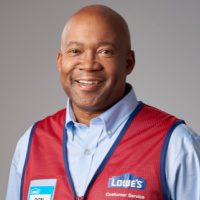
Don Frieson, As executive vice president of supply chain, Don is responsible for the company’s distribution centers, logistics, transportation and delivery services. He joined Lowe’s in 2018. Don has more than 30 years of operations and supply chain experience, including 19 years at Walmart Inc. He most recently served as chief operating officer at Sam’s Club, a division of Walmart, where he was responsible for all club operations, including supply chain, for more than 650 locations in the U.S. and Puerto Rico. Don also served as senior vice president of supply chain at Walmart, where he led more than 30 distribution centers that supplied merchandise to nearly 1,600 stores, Supercenters and neighborhood markets in the eastern U.S. Don earned a bachelor’s degree in operations management from the University of Tennessee and is a graduate of the Global 20/20 Executive Education Program at Dartmouth College’s Tuck School of Business. He is a member of the Executive Leadership Council and serves on the board of Casey’s General Stores. Connect with Don on LinkedIn.
